Shows
 Jess Klein's Big TableErin McKeown's Fax of Life X Jess Klein's Big TableDo you need to laugh? I did, and that is one reason why I am so glad that my guest this week is my dear longtime friend, Erin McKeown. This is a special crossover episode of Jess Klein's Big Table and Erin McKeown's Fax of Life. Like when, in the 90's, a star from one sitcom would appear on the other, and the storylines would get blurred, and everyone would get really excited. Erin and I go waaaaaay back, to the late 90's whe we met on the Northeast songwriter scene. Then we became two parts of the f...2024-12-201h 03
Jess Klein's Big TableErin McKeown's Fax of Life X Jess Klein's Big TableDo you need to laugh? I did, and that is one reason why I am so glad that my guest this week is my dear longtime friend, Erin McKeown. This is a special crossover episode of Jess Klein's Big Table and Erin McKeown's Fax of Life. Like when, in the 90's, a star from one sitcom would appear on the other, and the storylines would get blurred, and everyone would get really excited. Erin and I go waaaaaay back, to the late 90's whe we met on the Northeast songwriter scene. Then we became two parts of the f...2024-12-201h 03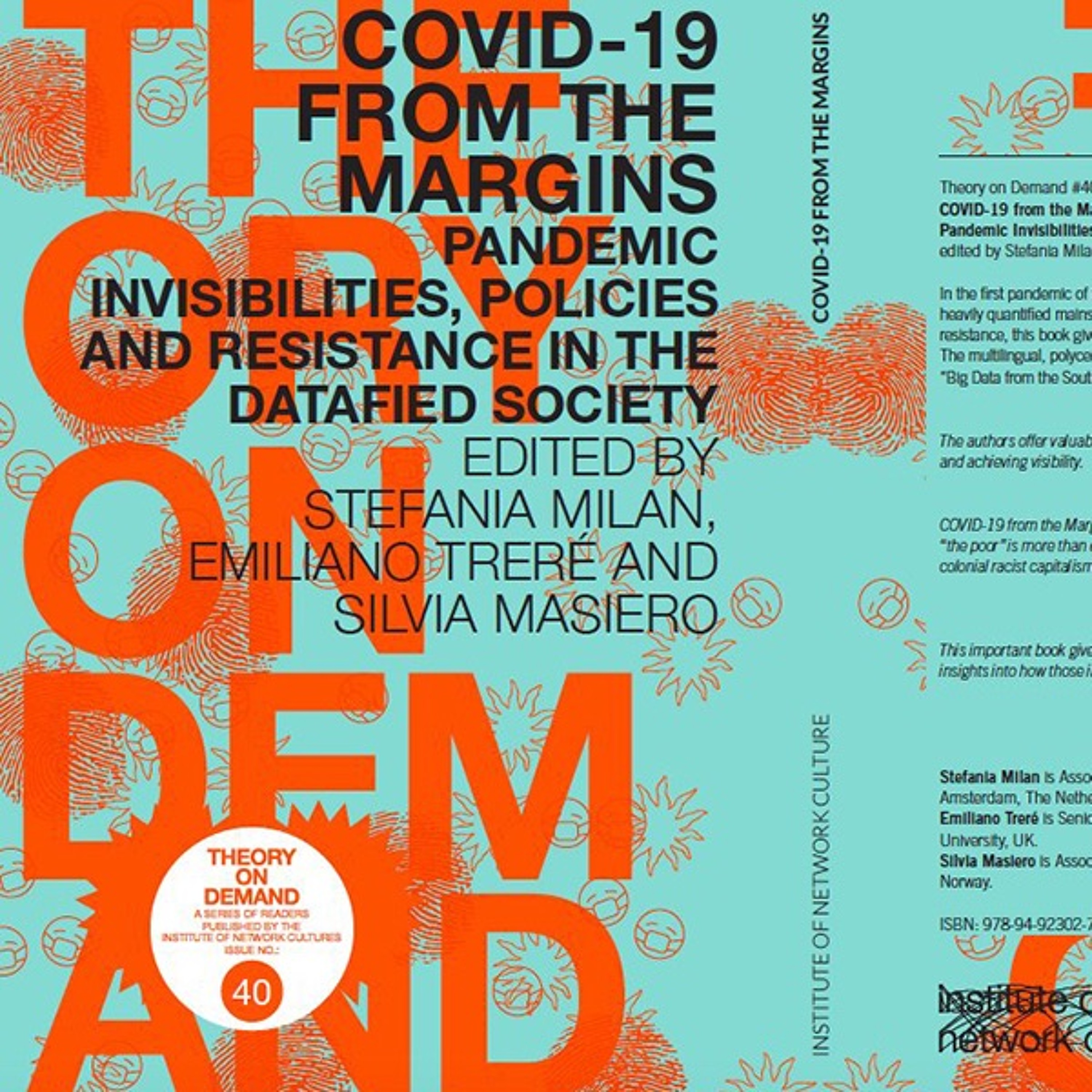 Berkman Klein Center for Internet & SocietyCOVID-19 from the Margins: Pandemic Invisibilities, Policies and Resistance in the Datafied SocietyIn the first pandemic of the datafied society, the disempowered were denied a voice in the heavily quantified mainstream narrative. Diego Cerna Aragón, Shyam Krishna, Silvia Masiero, Stefania Milan, Irene Poetranto, and Emiliano Treré invited participants to explore the pandemic from the perspective of communities and individuals at the margins in the Global South and beyond. It introduces the editorial project of the same title.
Learn more: https://cyber.harvard.edu/events/covid-19-margins2021-04-0558 min
Berkman Klein Center for Internet & SocietyCOVID-19 from the Margins: Pandemic Invisibilities, Policies and Resistance in the Datafied SocietyIn the first pandemic of the datafied society, the disempowered were denied a voice in the heavily quantified mainstream narrative. Diego Cerna Aragón, Shyam Krishna, Silvia Masiero, Stefania Milan, Irene Poetranto, and Emiliano Treré invited participants to explore the pandemic from the perspective of communities and individuals at the margins in the Global South and beyond. It introduces the editorial project of the same title.
Learn more: https://cyber.harvard.edu/events/covid-19-margins2021-04-0558 min Berkman Klein Center for Internet & SocietyReopening Schools: A Seminar for State & Local LeadersSince the federal stimulus bill has been signed, one of our nation’s major goals is to safely and rapidly reopen schools using funds allocated to State Departments of Education. This session focuses on some of the more complicated response measures necessary to make schools COVID-safe environments as they reopen: improving indoor ventilation and air quality and rolling out screening testing for staff and students. Implementation experts discuss how to tackle these complex issues in this session, co-hosted by the Berkman Klein Center for Internet & Society at Harvard University, Harvard Medical School’s Program in Global Public Policy and Social Chan...2021-03-241h 02
Berkman Klein Center for Internet & SocietyReopening Schools: A Seminar for State & Local LeadersSince the federal stimulus bill has been signed, one of our nation’s major goals is to safely and rapidly reopen schools using funds allocated to State Departments of Education. This session focuses on some of the more complicated response measures necessary to make schools COVID-safe environments as they reopen: improving indoor ventilation and air quality and rolling out screening testing for staff and students. Implementation experts discuss how to tackle these complex issues in this session, co-hosted by the Berkman Klein Center for Internet & Society at Harvard University, Harvard Medical School’s Program in Global Public Policy and Social Chan...2021-03-241h 02 Berkman Klein Center for Internet & SocietyHindsight is 2020: Learning From our Past to Build a Better FutureWe are still in the early days of the Internet, but there is a growing sense that it's creating more problems than it’s solving. This wasn’t always the case. There was a time when we shared an overriding optimism in the Internet's capacity to make the world a better place.
Creator platforms and social media platforms saw us migrate our social lives to the Internet. While allowing us to share and interact with people we never could have before, it also fragmented our experiences and relationships. There's an endless list of unintended consequences.
Today's platforms were inspired by the...2021-03-221h 03
Berkman Klein Center for Internet & SocietyHindsight is 2020: Learning From our Past to Build a Better FutureWe are still in the early days of the Internet, but there is a growing sense that it's creating more problems than it’s solving. This wasn’t always the case. There was a time when we shared an overriding optimism in the Internet's capacity to make the world a better place.
Creator platforms and social media platforms saw us migrate our social lives to the Internet. While allowing us to share and interact with people we never could have before, it also fragmented our experiences and relationships. There's an endless list of unintended consequences.
Today's platforms were inspired by the...2021-03-221h 03 Berkman Klein Center for Internet & SocietyDigital Witnesses: The Power of LookingHannane Ferdjani, Nana Mgbechikwere Nwachukwu, and Dr. Allissa Richardson explore how young Black people around the world are utilizing tech tools to track and circumvent oppressive policies by repressive governments. The conversation includes how Black people of Nigeria, Uganda, and the United States are leveraging social media platforms such as YouTube, Twitter, Facebook, and Clubhouse for artistic expressions on political and social issues in their countries. The panel also considers how young digital activists highlight the importance and place of the digital civic space to rights and freedoms offline. Finally, the discussion will address some of the limitations of digital...2021-03-081h 10
Berkman Klein Center for Internet & SocietyDigital Witnesses: The Power of LookingHannane Ferdjani, Nana Mgbechikwere Nwachukwu, and Dr. Allissa Richardson explore how young Black people around the world are utilizing tech tools to track and circumvent oppressive policies by repressive governments. The conversation includes how Black people of Nigeria, Uganda, and the United States are leveraging social media platforms such as YouTube, Twitter, Facebook, and Clubhouse for artistic expressions on political and social issues in their countries. The panel also considers how young digital activists highlight the importance and place of the digital civic space to rights and freedoms offline. Finally, the discussion will address some of the limitations of digital...2021-03-081h 10 Berkman Klein Center for Internet & SocietyOrganizing, Budgeting, and Implementing Wraparound Services for People in Quarantine and IsolationPeople who have been exposed to SARS-CoV-2, the virus that causes COVID-19 disease, or have become infected with it, need to quarantine or isolate from others so that they don’t spread the disease to others. However, staying away from others for weeks at a time is difficult for many people. This seminar addresses how US state and local public health leaders can better organize wraparound services so people can successfully complete periods of isolation or quarantine. Specifically, it will cover the types of services typically needed, how to organize support programs, how to budget for them, and the costs of...2021-02-261h 15
Berkman Klein Center for Internet & SocietyOrganizing, Budgeting, and Implementing Wraparound Services for People in Quarantine and IsolationPeople who have been exposed to SARS-CoV-2, the virus that causes COVID-19 disease, or have become infected with it, need to quarantine or isolate from others so that they don’t spread the disease to others. However, staying away from others for weeks at a time is difficult for many people. This seminar addresses how US state and local public health leaders can better organize wraparound services so people can successfully complete periods of isolation or quarantine. Specifically, it will cover the types of services typically needed, how to organize support programs, how to budget for them, and the costs of...2021-02-261h 15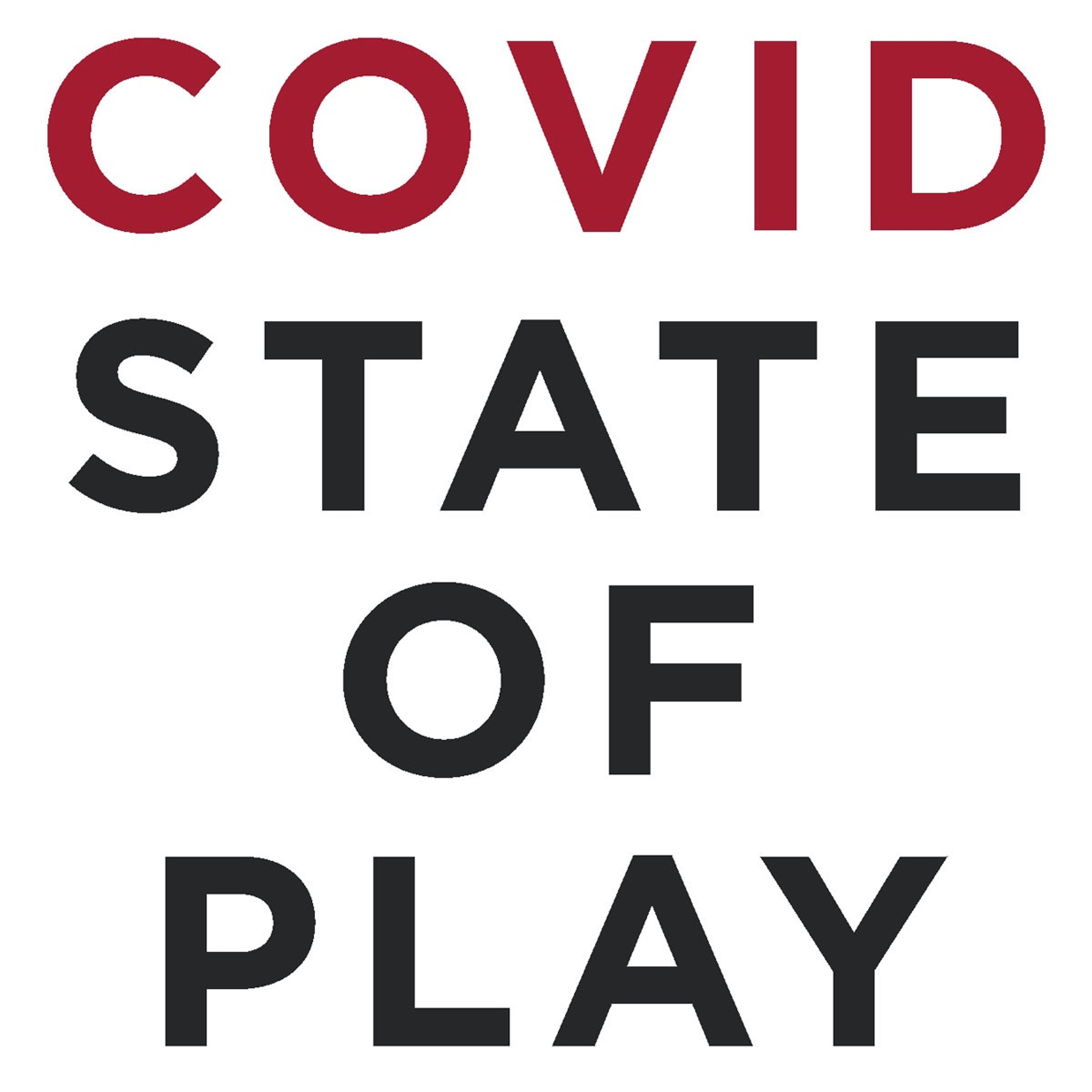 Berkman Klein Center for Internet & SocietyCovid State of Play: Vaccines and VariantsDr. Margaret Bourdeaux, Professor Jonathan Zittrain, and Dr. Vanessa Kerry discuss vaccine roll-out and the impact of new COVID strains from both a domestic and global perspective.2021-02-1959 min
Berkman Klein Center for Internet & SocietyCovid State of Play: Vaccines and VariantsDr. Margaret Bourdeaux, Professor Jonathan Zittrain, and Dr. Vanessa Kerry discuss vaccine roll-out and the impact of new COVID strains from both a domestic and global perspective.2021-02-1959 min Berkman Klein Center for Internet & SocietyMarginalized Women, Technology, COVID-19, and Intimate Partner ViolenceIncreasingly, marginalized women are opting against calling the police in response to intimate partner violence (IPV). Many report going to faith communities and online platforms to seek help — especially since COVID-19 policies were implemented. This event brings together practitioners and experts in law, psychology, technology, religion, communication, and ethics to discuss the concerns specific to intimate partner violence. Is there potential for a public sphere online that can assist victims in surviving their unique suffering?2021-02-121h 00
Berkman Klein Center for Internet & SocietyMarginalized Women, Technology, COVID-19, and Intimate Partner ViolenceIncreasingly, marginalized women are opting against calling the police in response to intimate partner violence (IPV). Many report going to faith communities and online platforms to seek help — especially since COVID-19 policies were implemented. This event brings together practitioners and experts in law, psychology, technology, religion, communication, and ethics to discuss the concerns specific to intimate partner violence. Is there potential for a public sphere online that can assist victims in surviving their unique suffering?2021-02-121h 00 Berkman Klein Center for Internet & SocietyWhite Surveillance and Black Digital PublicsDr. Apryl A. Williams and Dr. Allissa V. Richardson address the long-standing history of White vigilante-style surveillance of Black people in public spaces, exploring the role of White women in extending the power of the state to surveil and regulate the movement of Black people in public – tying in Karen actors with historical examples such as Emmitt Till and others. They discuss how memes and other digital artifacts contribute to collective action that responds to this surveillance.
Learn more about this event: https://cyber.harvard.edu/events/white-surveillance-and-black-digital-publics2021-02-0358 min
Berkman Klein Center for Internet & SocietyWhite Surveillance and Black Digital PublicsDr. Apryl A. Williams and Dr. Allissa V. Richardson address the long-standing history of White vigilante-style surveillance of Black people in public spaces, exploring the role of White women in extending the power of the state to surveil and regulate the movement of Black people in public – tying in Karen actors with historical examples such as Emmitt Till and others. They discuss how memes and other digital artifacts contribute to collective action that responds to this surveillance.
Learn more about this event: https://cyber.harvard.edu/events/white-surveillance-and-black-digital-publics2021-02-0358 min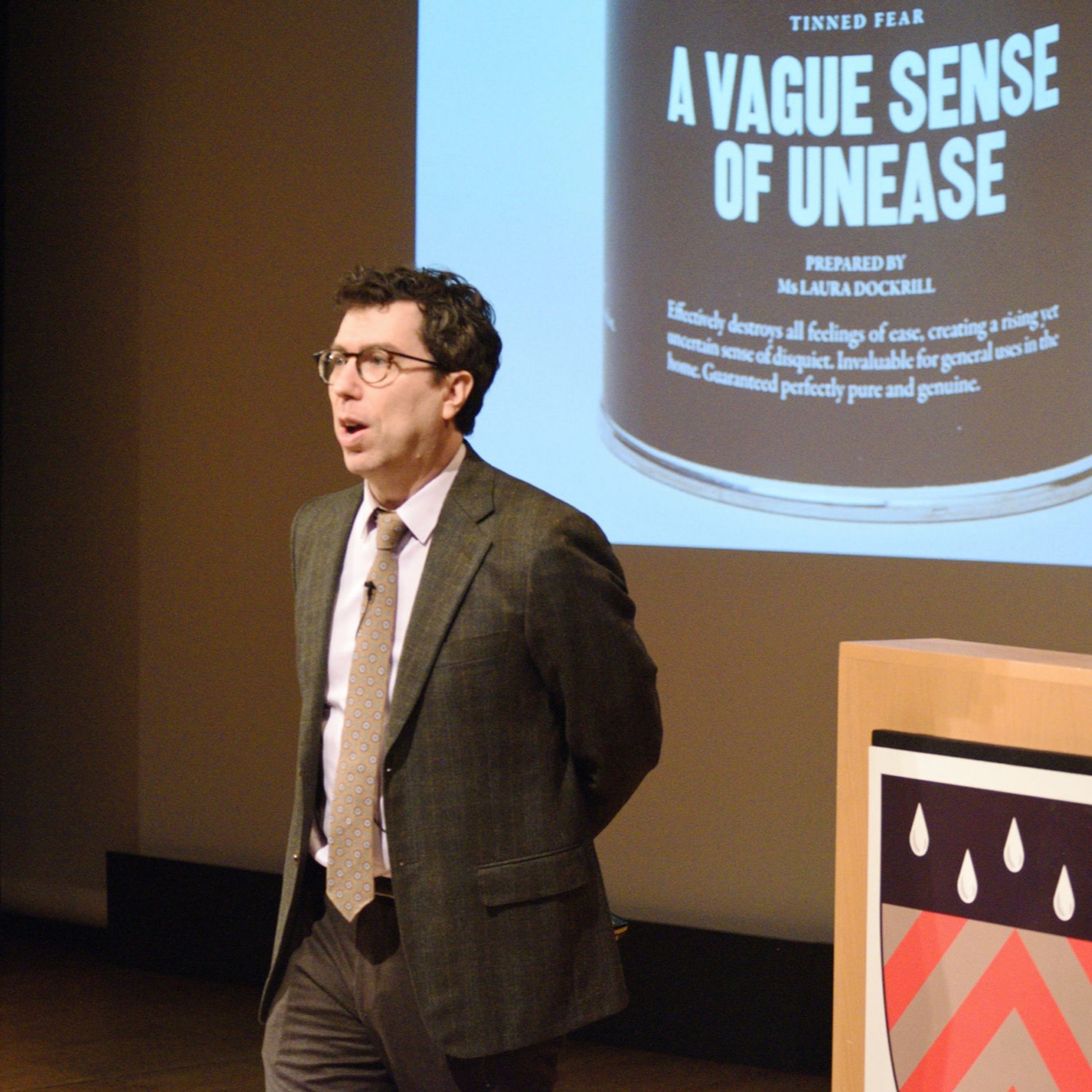 Berkman Klein Center for Internet & SocietyTanner Lecture 2020 – Between Suffocation and Abdication: Three Eras of Governing Digital PlatformsJonathan Zittrain delivers part one of the 2020 Clare Hall Tanner Lectures on Human Values – Between Suffocation and Abdication: Three Eras of Governing Digital Platforms, exploring the tension between free speech and public health online, and the three eras of Internet governance.2021-01-281h 00
Berkman Klein Center for Internet & SocietyTanner Lecture 2020 – Between Suffocation and Abdication: Three Eras of Governing Digital PlatformsJonathan Zittrain delivers part one of the 2020 Clare Hall Tanner Lectures on Human Values – Between Suffocation and Abdication: Three Eras of Governing Digital Platforms, exploring the tension between free speech and public health online, and the three eras of Internet governance.2021-01-281h 00 Berkman Klein Center for Internet & SocietyCovid State of Play: 2021 Outlook and Vaccine DisinformationDr. Margaret Bourdeaux and Professor Jonathan Zittrain, co-chairs of the Berkman Klein Center’s Digital Pandemic Response Working Group, reflect on 2020 and look ahead to 2021. Bourdeaux and Zittrain are joined by Renée DiResta, technical research manager at Stanford Internet Observatory, to discuss vaccine disinformation that has been proliferating online.2021-01-151h 12
Berkman Klein Center for Internet & SocietyCovid State of Play: 2021 Outlook and Vaccine DisinformationDr. Margaret Bourdeaux and Professor Jonathan Zittrain, co-chairs of the Berkman Klein Center’s Digital Pandemic Response Working Group, reflect on 2020 and look ahead to 2021. Bourdeaux and Zittrain are joined by Renée DiResta, technical research manager at Stanford Internet Observatory, to discuss vaccine disinformation that has been proliferating online.2021-01-151h 12 Berkman Klein Center for Internet & SocietyA More Representative First Amendment?Professors Khaled Beydoun and Justin Hansford join IfRFA Director Kendra Albert for a discussion of the way in which First Amendment work could better engage with critical race theory. This event highlights Professor Beydoun’s work on surveillance of Muslims, Justin Hansford’s work on the freedom of assembly as a racial project, as well as discussing how the Initiative for a Representative First Amendment creates space for these conversations (and more!)2021-01-121h 00
Berkman Klein Center for Internet & SocietyA More Representative First Amendment?Professors Khaled Beydoun and Justin Hansford join IfRFA Director Kendra Albert for a discussion of the way in which First Amendment work could better engage with critical race theory. This event highlights Professor Beydoun’s work on surveillance of Muslims, Justin Hansford’s work on the freedom of assembly as a racial project, as well as discussing how the Initiative for a Representative First Amendment creates space for these conversations (and more!)2021-01-121h 00 Berkman Klein Center for Internet & SocietyCovid State of Play: Building a Public Sector Health Intelligence CapabilityTracking the spread of COVID-19 has proved critical to efforts to contain the virus, but to do so, public health officials need to collect and utilize large amounts of data. Tarah Wheeler, Cyber Project Fellow at the Belfer Center for Science and International Affairs at Harvard University‘s Kennedy School of Government, joins Dr. Margaret Bourdeaux and Professor Jonathan Zittrain, co-chairs of the Berkman Klein Center’s Digital Pandemic Response Working Group, to investigate how the United States Public Health System can do this differently and responsibly.2020-12-181h 02
Berkman Klein Center for Internet & SocietyCovid State of Play: Building a Public Sector Health Intelligence CapabilityTracking the spread of COVID-19 has proved critical to efforts to contain the virus, but to do so, public health officials need to collect and utilize large amounts of data. Tarah Wheeler, Cyber Project Fellow at the Belfer Center for Science and International Affairs at Harvard University‘s Kennedy School of Government, joins Dr. Margaret Bourdeaux and Professor Jonathan Zittrain, co-chairs of the Berkman Klein Center’s Digital Pandemic Response Working Group, to investigate how the United States Public Health System can do this differently and responsibly.2020-12-181h 02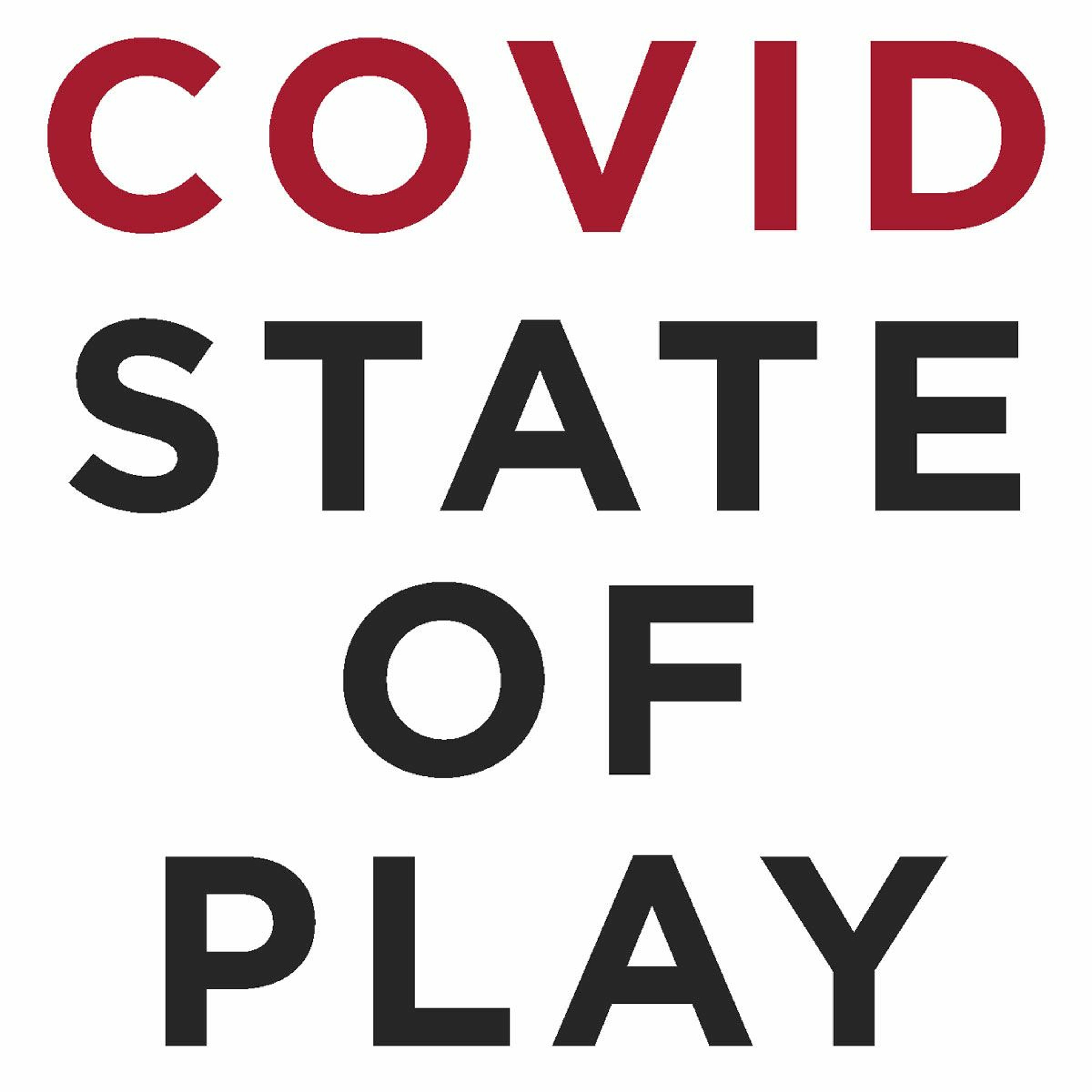 Berkman Klein Center for Internet & SocietyCovid State of Play: Covid, Racism, and Environmental JusticeJacqueline Patterson, Director of the NAACP Environmental and Climate Justice Program, and Dr. Michelle Morse, Founding Co-Director of EqualHealth, Hospitalist at Brigham and Women's Hospital, and social medicine course director at Harvard Medical School, join Dr. Margaret Bourdeaux and Professor Jonathan Zittrain, co-chairs of the Berkman Klein Center’s Digital Pandemic Response Working Group, to discuss how environmental injustice and racism have contributed to the disproportionate impact of the pandemic.2020-12-071h 01
Berkman Klein Center for Internet & SocietyCovid State of Play: Covid, Racism, and Environmental JusticeJacqueline Patterson, Director of the NAACP Environmental and Climate Justice Program, and Dr. Michelle Morse, Founding Co-Director of EqualHealth, Hospitalist at Brigham and Women's Hospital, and social medicine course director at Harvard Medical School, join Dr. Margaret Bourdeaux and Professor Jonathan Zittrain, co-chairs of the Berkman Klein Center’s Digital Pandemic Response Working Group, to discuss how environmental injustice and racism have contributed to the disproportionate impact of the pandemic.2020-12-071h 01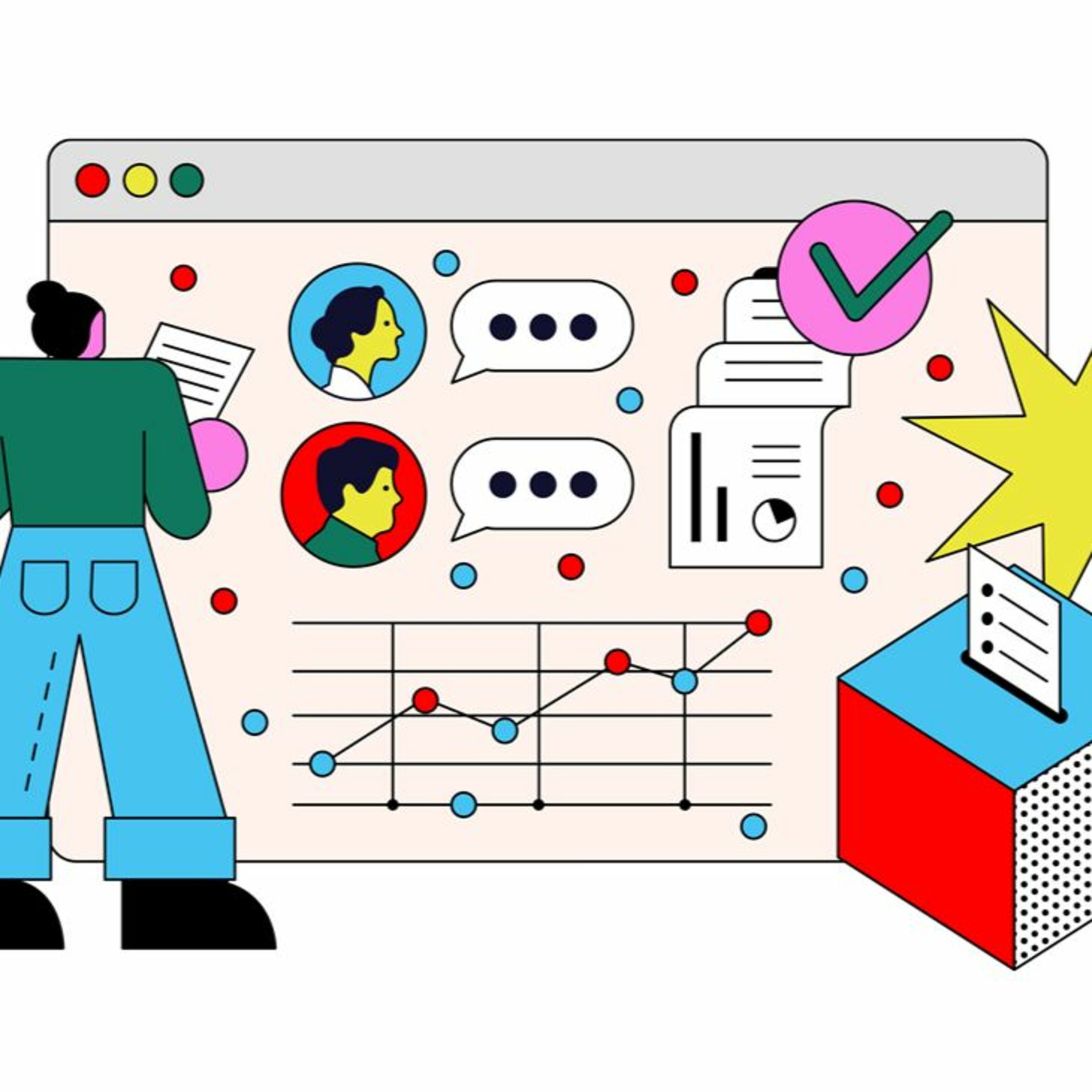 Berkman Klein Center for Internet & SocietyThe True Costs of Misinformation: Producing Moral and Technical Order in a Time of PandemoniumIt all feels like a precursor to a bad joke: What do foreign agents, white supremacists, conspiracists, snake oil salesmen, political operatives, white academics, and a disgruntled bunch of zoomers have in common? The groups have collided in a centrifuge of chaos online, where the tactics they use to hide their identities and manipulate audiences are more prevalent than ever. Social media companies are trying to patch the holes in a failing sociotechnical systems, where the problems their products have created are now shouldered by journalists, universities, and health professionals, just to name a few. What can be done to...2020-12-041h 03
Berkman Klein Center for Internet & SocietyThe True Costs of Misinformation: Producing Moral and Technical Order in a Time of PandemoniumIt all feels like a precursor to a bad joke: What do foreign agents, white supremacists, conspiracists, snake oil salesmen, political operatives, white academics, and a disgruntled bunch of zoomers have in common? The groups have collided in a centrifuge of chaos online, where the tactics they use to hide their identities and manipulate audiences are more prevalent than ever. Social media companies are trying to patch the holes in a failing sociotechnical systems, where the problems their products have created are now shouldered by journalists, universities, and health professionals, just to name a few. What can be done to...2020-12-041h 03 Berkman Klein Center for Internet & SocietyRed and Blue Realities: Political Discourse and the 2020 ElectionYochai Benkler and Rob Faris present their recent research that assesses how asymmetrically polarized media in the United States shape political discourse and explains how the structure of media ecosystems sustains two starkly different versions of reality in American politics.
This talk draws upon research into the propagation of disinformation about mail-in voter fraud and an analysis of political discourse in the first five months of 2020 from the Democratic primaries and impeachment to the emergence of the pandemic. It is moderated by Jasmine McNealy.2020-11-2359 min
Berkman Klein Center for Internet & SocietyRed and Blue Realities: Political Discourse and the 2020 ElectionYochai Benkler and Rob Faris present their recent research that assesses how asymmetrically polarized media in the United States shape political discourse and explains how the structure of media ecosystems sustains two starkly different versions of reality in American politics.
This talk draws upon research into the propagation of disinformation about mail-in voter fraud and an analysis of political discourse in the first five months of 2020 from the Democratic primaries and impeachment to the emergence of the pandemic. It is moderated by Jasmine McNealy.2020-11-2359 min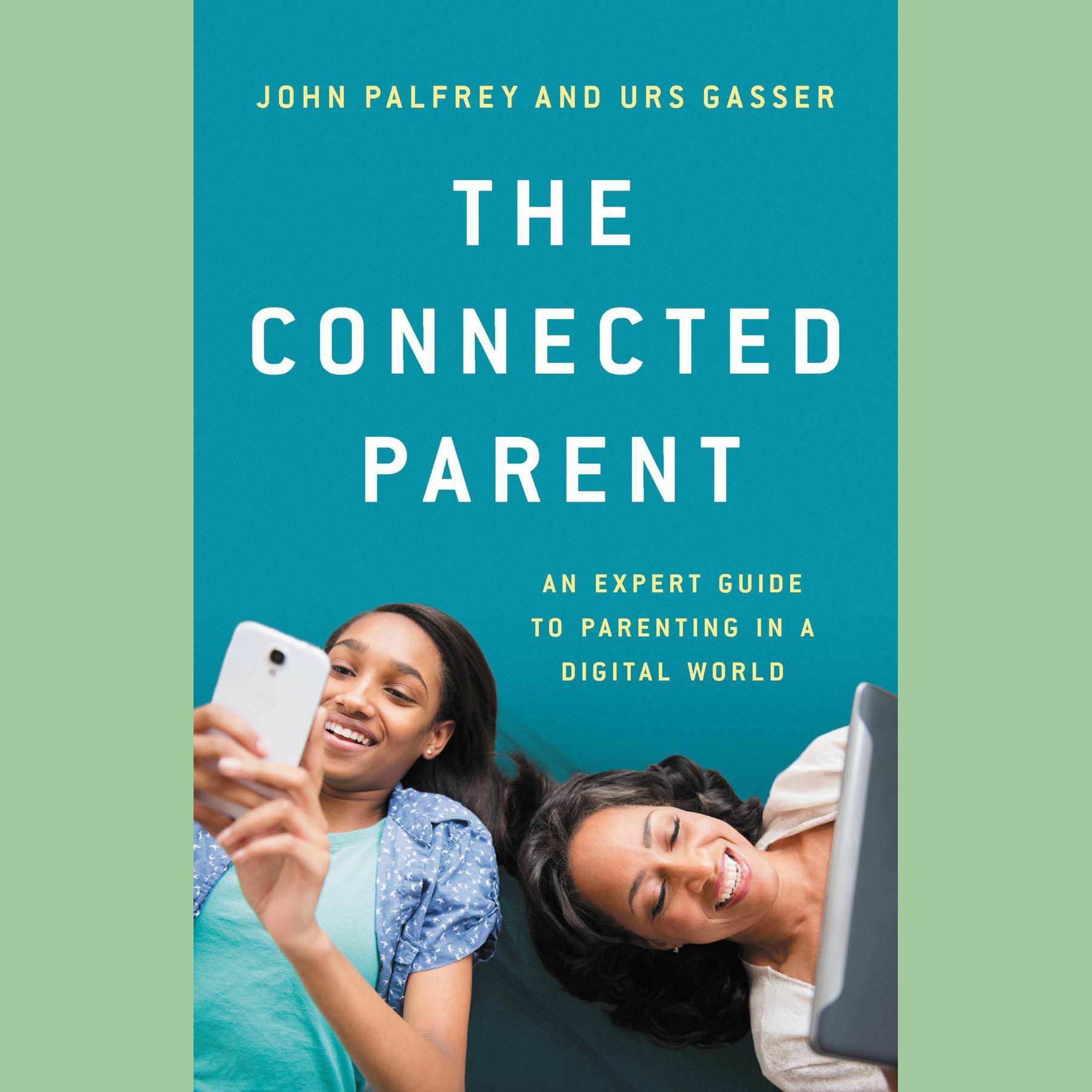 Berkman Klein Center for Internet & SocietyThe Connected Parent: An Expert Guide to Parenting in a Digital WorldThis book talk discussion included:
Introduction: Jonathan Zittrain is the George Bemis Professor of International Law at Harvard Law School. He is also a professor at the Harvard Kennedy School of Government, a professor of computer science at the Harvard School of Engineering and Applied Sciences, director of the Harvard Law School Library, and co-founder and director of Harvard’s Berkman Klein Center for Internet & Society.
John Palfrey is president of the John D. and Catherine T. MacArthur Foundation and a former faculty director of the Berkman Klein Center for Internet & Society at Harvard University.
Dr. Urs Gasser is the Execut...2020-11-1359 min
Berkman Klein Center for Internet & SocietyThe Connected Parent: An Expert Guide to Parenting in a Digital WorldThis book talk discussion included:
Introduction: Jonathan Zittrain is the George Bemis Professor of International Law at Harvard Law School. He is also a professor at the Harvard Kennedy School of Government, a professor of computer science at the Harvard School of Engineering and Applied Sciences, director of the Harvard Law School Library, and co-founder and director of Harvard’s Berkman Klein Center for Internet & Society.
John Palfrey is president of the John D. and Catherine T. MacArthur Foundation and a former faculty director of the Berkman Klein Center for Internet & Society at Harvard University.
Dr. Urs Gasser is the Execut...2020-11-1359 min Berkman Klein Center for Internet & SocietyRetrospective Contact Tracing: How States Can Investigate Covid-19 ClustersThe Berkman Klein Center for Internet & Society at Harvard University, Harvard Medical School’s Program in Global Public Policy and Social Change, the National Governors Association, and Partners In Health’s U.S. Public Health Accompaniment Unit hold a session exploring how US state and local public health leaders can implement retrospective contact tracing to identify Covid-19 clusters and mitigate their spread.
Currently, almost every US state relies on prospective contact tracing: when an infected person is identified, contact tracers try to identify and notify the infected person’s contacts since being infected. However, there’s an additional, effective method that sta...2020-11-131h 04
Berkman Klein Center for Internet & SocietyRetrospective Contact Tracing: How States Can Investigate Covid-19 ClustersThe Berkman Klein Center for Internet & Society at Harvard University, Harvard Medical School’s Program in Global Public Policy and Social Change, the National Governors Association, and Partners In Health’s U.S. Public Health Accompaniment Unit hold a session exploring how US state and local public health leaders can implement retrospective contact tracing to identify Covid-19 clusters and mitigate their spread.
Currently, almost every US state relies on prospective contact tracing: when an infected person is identified, contact tracers try to identify and notify the infected person’s contacts since being infected. However, there’s an additional, effective method that sta...2020-11-131h 04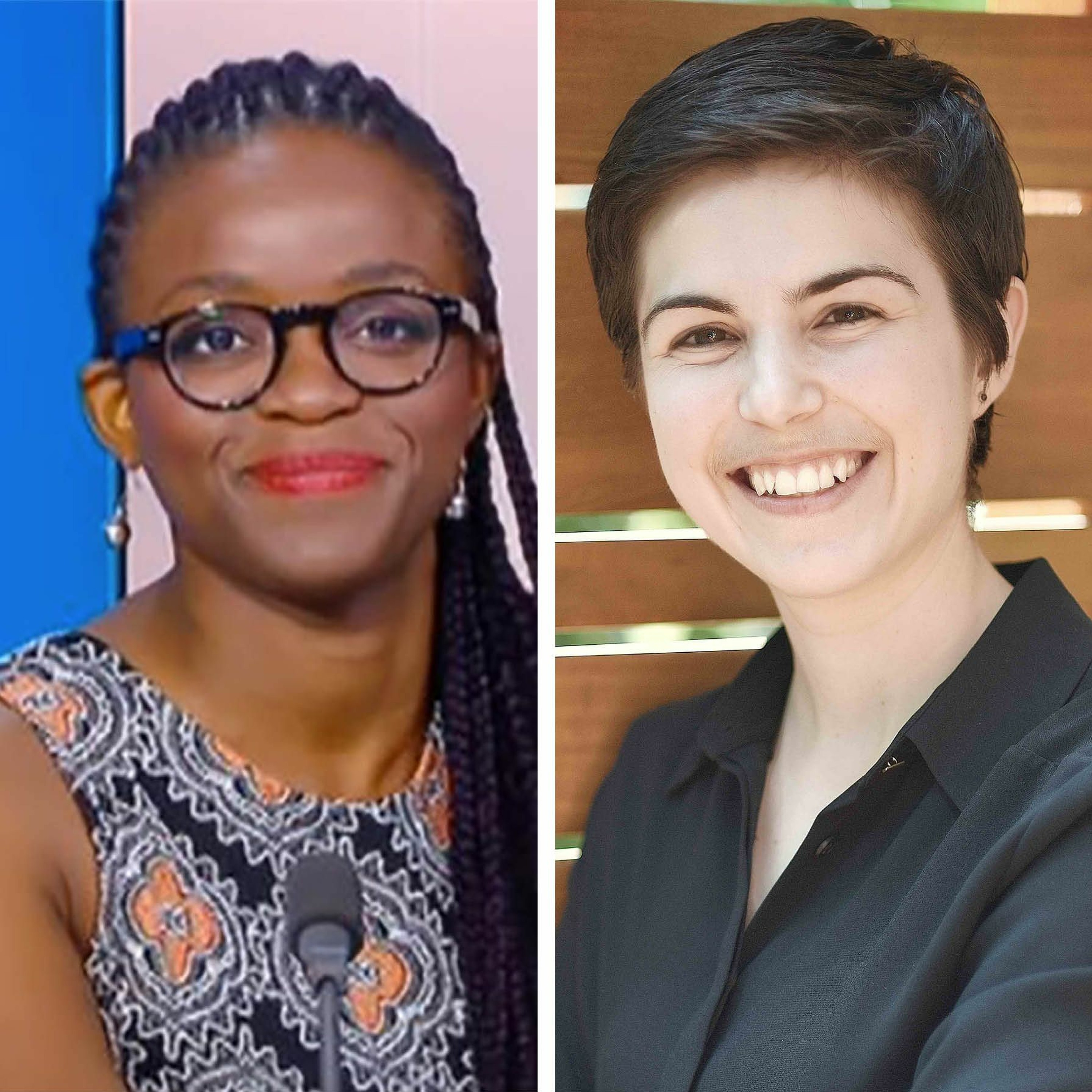 Berkman Klein Center for Internet & SocietyElection Chaos: Platform Preparations for the US Electionevelyn douek and Julie Owono discuss how platforms are preparing for—and anticipating—a variety of issues related to disinformation in the lead up to, and immediate aftermath of, the 2020 US election on November 3. douek focuses on what platforms have and haven't learned from 2016. Owono explores how this election, and others in the world, will challenge freedom of expression on global social media platforms. This event was moderated by Oumou Ly, Staff Fellow on the Assembly: Disinformation project.
Together, they highlight the intricate challenges that platforms are facing and provide insight into what to look for and anticipate in the days...2020-11-0356 min
Berkman Klein Center for Internet & SocietyElection Chaos: Platform Preparations for the US Electionevelyn douek and Julie Owono discuss how platforms are preparing for—and anticipating—a variety of issues related to disinformation in the lead up to, and immediate aftermath of, the 2020 US election on November 3. douek focuses on what platforms have and haven't learned from 2016. Owono explores how this election, and others in the world, will challenge freedom of expression on global social media platforms. This event was moderated by Oumou Ly, Staff Fellow on the Assembly: Disinformation project.
Together, they highlight the intricate challenges that platforms are facing and provide insight into what to look for and anticipate in the days...2020-11-0356 min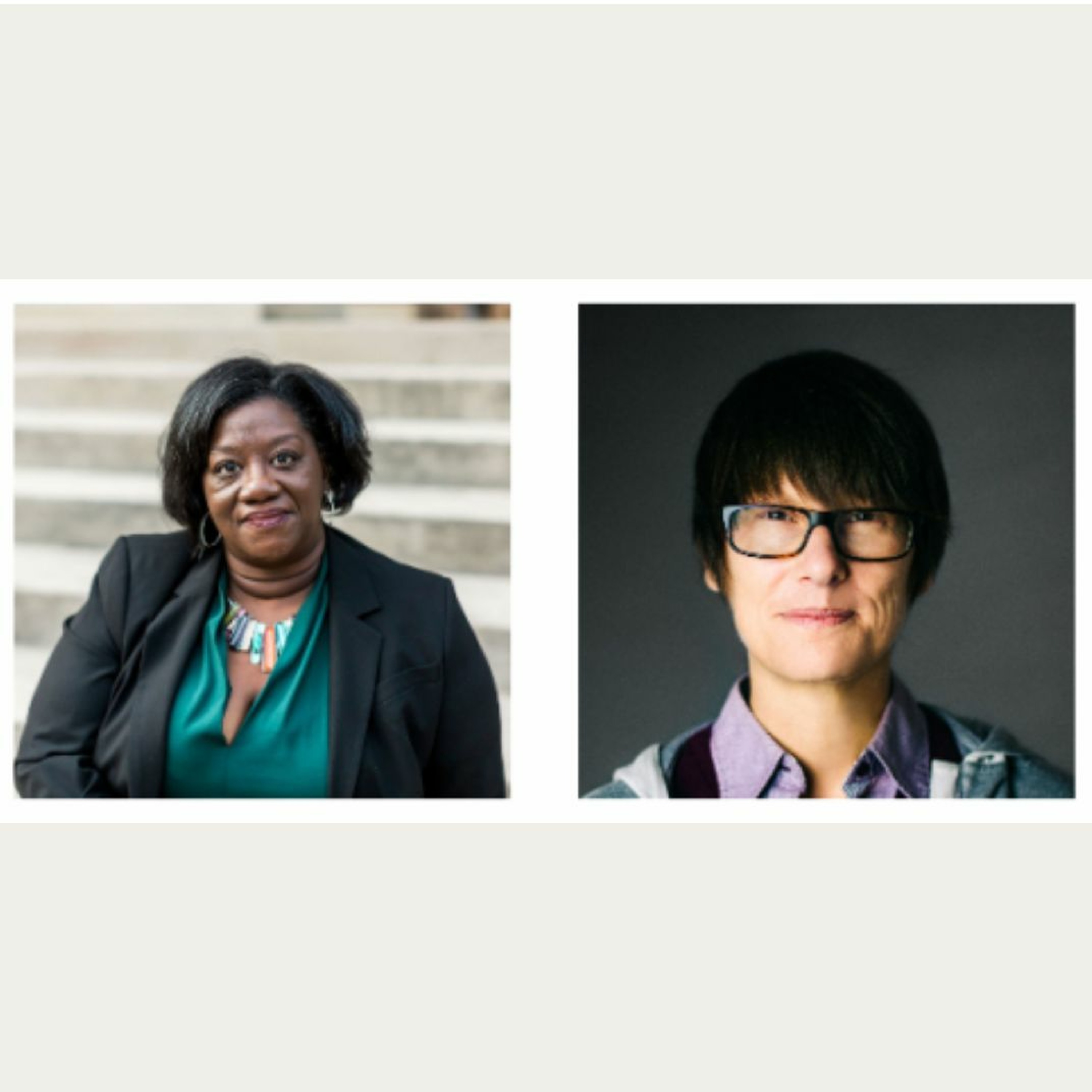 Berkman Klein Center for Internet & SocietyTwo Geniuses Walk into a Zoom: A Conversation with Tressie McMillan Cottom & Mary L. GrayThe MacArthur Foundation recently announced its 2020 MacArthur Fellows, which include two BKC Faculty Associates, Tressie McMillan Cottom and Mary Gray.
Watch Cottom and Gray discuss their previous and forthcoming projects as well as explore the intersections of their equally impressive research. The event was moderated by Joan Donovan.
Tressie McMillan Cottom is an associate professor in the School of Information and Library Science and senior research fellow with the Center for Information, Technology and Public Life at the University of North Carolina-Chapel Hill and author, most recently, of Thick: And Other Essays.
Mary L. Gray is Senior Principal Researcher at...2020-10-231h 04
Berkman Klein Center for Internet & SocietyTwo Geniuses Walk into a Zoom: A Conversation with Tressie McMillan Cottom & Mary L. GrayThe MacArthur Foundation recently announced its 2020 MacArthur Fellows, which include two BKC Faculty Associates, Tressie McMillan Cottom and Mary Gray.
Watch Cottom and Gray discuss their previous and forthcoming projects as well as explore the intersections of their equally impressive research. The event was moderated by Joan Donovan.
Tressie McMillan Cottom is an associate professor in the School of Information and Library Science and senior research fellow with the Center for Information, Technology and Public Life at the University of North Carolina-Chapel Hill and author, most recently, of Thick: And Other Essays.
Mary L. Gray is Senior Principal Researcher at...2020-10-231h 04 Berkman Klein Center for Internet & SocietyCovid State of Play: Authoritarian Politics & COVID-19How Should U.S. public health officials lead in this political moment? Rivka Weinberg, Professor of Philosophy at Scripps College and Jennifer Prah Ruger, Professor of Medical Ethics and Health Policy at the Perelman School of Medicine at the University of Pennsylvania, join Dr. Margaret Bourdeaux and Professor Jonathan Zittrain, co-chairs of the Berkman Klein Center’s Digital Pandemic Response Working Group, to discuss the Covid State of Play.2020-10-131h 03
Berkman Klein Center for Internet & SocietyCovid State of Play: Authoritarian Politics & COVID-19How Should U.S. public health officials lead in this political moment? Rivka Weinberg, Professor of Philosophy at Scripps College and Jennifer Prah Ruger, Professor of Medical Ethics and Health Policy at the Perelman School of Medicine at the University of Pennsylvania, join Dr. Margaret Bourdeaux and Professor Jonathan Zittrain, co-chairs of the Berkman Klein Center’s Digital Pandemic Response Working Group, to discuss the Covid State of Play.2020-10-131h 03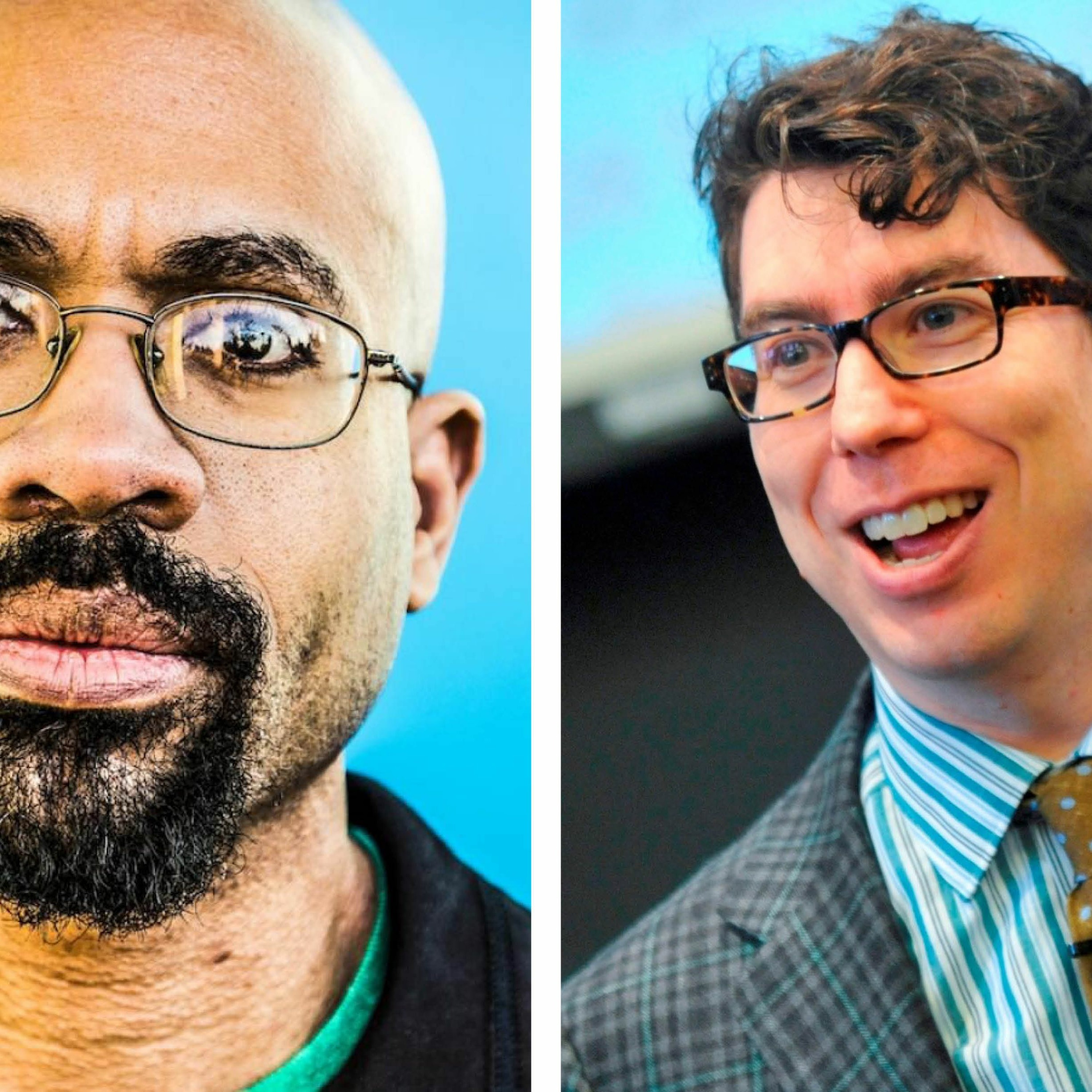 Berkman Klein Center for Internet & SocietyCybersecurity: How Far Up the Creek Are We?Board Members James Mickens and Jonathan Zittrain explore cybersecurity beyond its traditional boundaries of protecting data or code from bad actors. Increasingly, the pervasive integration of computing systems into modern societal processes (e.g. news, election results) creates new tensions such as the exponential growth of disinformation. After all, disinformation stems from issues about how users are authenticated and what abilities they are granted on a given network.
These challenges move the concerns of access control into more nuanced considerations about the kind of content that users within computer systems may be able to submit. This session considers how redefining...2020-10-071h 00
Berkman Klein Center for Internet & SocietyCybersecurity: How Far Up the Creek Are We?Board Members James Mickens and Jonathan Zittrain explore cybersecurity beyond its traditional boundaries of protecting data or code from bad actors. Increasingly, the pervasive integration of computing systems into modern societal processes (e.g. news, election results) creates new tensions such as the exponential growth of disinformation. After all, disinformation stems from issues about how users are authenticated and what abilities they are granted on a given network.
These challenges move the concerns of access control into more nuanced considerations about the kind of content that users within computer systems may be able to submit. This session considers how redefining...2020-10-071h 00 Berkman Klein Center for Internet & SocietyCovid State of Play: School Reopenings, Ventilation and Transmission, and Possible SolutionsWhat’s the Covid State of Play? Joseph Allen, professor and head of the Healthy Buildings program at the Harvard T.H. Chan School of Public Health, joins Dr. Margaret Bourdeaux and Professor Jonathan Zittrain, co-chairs of the Berkman Klein Center’s Digital Pandemic Response Working Group, to discuss the issues of ventilation and airborne transmission of the virus, the unique challenges and risks posed by school reopenings, and possible solutions.2020-08-241h 22
Berkman Klein Center for Internet & SocietyCovid State of Play: School Reopenings, Ventilation and Transmission, and Possible SolutionsWhat’s the Covid State of Play? Joseph Allen, professor and head of the Healthy Buildings program at the Harvard T.H. Chan School of Public Health, joins Dr. Margaret Bourdeaux and Professor Jonathan Zittrain, co-chairs of the Berkman Klein Center’s Digital Pandemic Response Working Group, to discuss the issues of ventilation and airborne transmission of the virus, the unique challenges and risks posed by school reopenings, and possible solutions.2020-08-241h 22 Berkman Klein Center for Internet & SocietyCovid State of Play: Jonathan Zittrain, Margaret Bourdeaux, Beth Cameron, and KJ SeungWhat’s the Covid State of Play? Join Dr. Margaret Bourdeaux and Professor Jonathan Zittrain, co-chairs of the Berkman Klein Center’s Digital Pandemic Response Working Group, as they try to untangle the challenges in the fight against COVID-19 in a chat with former NSC pandemic policy staffer Beth Cameron and Chief of Strategy and Policy for Partners in Health's MA COVID-19 Response KJ Seung.
Zittrain, Bourdeaux, and Cameron recently published a call to U.S. governors for a coordinated response to the pandemic, sounding the alarm on testing paralysis: https://www.nytimes.com/2020/07/16/op...2020-07-3056 min
Berkman Klein Center for Internet & SocietyCovid State of Play: Jonathan Zittrain, Margaret Bourdeaux, Beth Cameron, and KJ SeungWhat’s the Covid State of Play? Join Dr. Margaret Bourdeaux and Professor Jonathan Zittrain, co-chairs of the Berkman Klein Center’s Digital Pandemic Response Working Group, as they try to untangle the challenges in the fight against COVID-19 in a chat with former NSC pandemic policy staffer Beth Cameron and Chief of Strategy and Policy for Partners in Health's MA COVID-19 Response KJ Seung.
Zittrain, Bourdeaux, and Cameron recently published a call to U.S. governors for a coordinated response to the pandemic, sounding the alarm on testing paralysis: https://www.nytimes.com/2020/07/16/op...2020-07-3056 min Berkman Klein Center for Internet & SocietyThe Pandemic As a Portal: Tracking and Enabling New PossibilitiesThe pandemic is a portal, the novelist Arundhati Roy wrote in an essay for the Financial Times. “We can choose to walk through it, dragging the carcasses of our prejudice and hatred, our avarice, our data banks and dead ideas, our dead rivers and smoky skies behind us. Or we can walk through lightly, with little luggage, ready to imagine another world. And ready to fight for it.”
In many ways, the coronavirus pandemic has resurfaced and amplified the worst in the world: intensification of surveillance, racism, nationalism, anti-scientism, bigotry.
But something strange has happened as well. Changes, ideas and solu...2020-06-241h 10
Berkman Klein Center for Internet & SocietyThe Pandemic As a Portal: Tracking and Enabling New PossibilitiesThe pandemic is a portal, the novelist Arundhati Roy wrote in an essay for the Financial Times. “We can choose to walk through it, dragging the carcasses of our prejudice and hatred, our avarice, our data banks and dead ideas, our dead rivers and smoky skies behind us. Or we can walk through lightly, with little luggage, ready to imagine another world. And ready to fight for it.”
In many ways, the coronavirus pandemic has resurfaced and amplified the worst in the world: intensification of surveillance, racism, nationalism, anti-scientism, bigotry.
But something strange has happened as well. Changes, ideas and solu...2020-06-241h 10 Berkman Klein Center for Internet & SocietyCOVID-19 and Inequality in the Global SouthLow-income countries have several systemic disadvantages that cumulatively inhibit their capacity to cope with the spread of COVID-19. These systemic disadvantages, a result of long-term poverty and resource-constrained healthcare systems, are further worsened by other socio-economic outcomes of lockdowns and the spread of infection. BKC hosted a seminar on the economic and healthcare fallouts of COVID-19 in low-income countries, with a specific focus on groups such as women, refugees, and informal laborers, alongside options for international collaboration.
BKC’s Padmashree Gehl Sampath sets the stage and moderates the discussions, joined by BKC’s Yvonne Macpherson, who shares her work on COVI...2020-06-021h 07
Berkman Klein Center for Internet & SocietyCOVID-19 and Inequality in the Global SouthLow-income countries have several systemic disadvantages that cumulatively inhibit their capacity to cope with the spread of COVID-19. These systemic disadvantages, a result of long-term poverty and resource-constrained healthcare systems, are further worsened by other socio-economic outcomes of lockdowns and the spread of infection. BKC hosted a seminar on the economic and healthcare fallouts of COVID-19 in low-income countries, with a specific focus on groups such as women, refugees, and informal laborers, alongside options for international collaboration.
BKC’s Padmashree Gehl Sampath sets the stage and moderates the discussions, joined by BKC’s Yvonne Macpherson, who shares her work on COVI...2020-06-021h 07 Berkman Klein Center for Internet & SocietyBuilding Better Voting SystemsEver since Florida 2000, it seems the US cannot hold an election without horror stories about equipment failing, votes lost, and disenfranchised voters says Ben Adida, co-founder and Executive Director of VotingWorks. "Why does a country as powerful and resourceful as the United States have so much trouble running an election?" is a central question to this virtual event. In "Building Better Voting Systems,"
Adida discusses why running an election in the US is particularly challenging. He focuses on voting equipment; it's conventional wisdom that voting machines are universally terrible, and Adida argues that we need to understand how we got...2020-05-2156 min
Berkman Klein Center for Internet & SocietyBuilding Better Voting SystemsEver since Florida 2000, it seems the US cannot hold an election without horror stories about equipment failing, votes lost, and disenfranchised voters says Ben Adida, co-founder and Executive Director of VotingWorks. "Why does a country as powerful and resourceful as the United States have so much trouble running an election?" is a central question to this virtual event. In "Building Better Voting Systems,"
Adida discusses why running an election in the US is particularly challenging. He focuses on voting equipment; it's conventional wisdom that voting machines are universally terrible, and Adida argues that we need to understand how we got...2020-05-2156 min Berkman Klein Center for Internet & SocietyBorderless COVID-19, Restricted VaccinesAs the novel coronavirus (COVID-19) sweeps the world in devastating fashion, scientists are scrambling to develop effective vaccines and treatments. But how should those medicines be priced globally?
Following Donald Trump’s “America First” policy with respect to vaccine and drug pricing would be tragic, argue Quentin Palfrey and John Stubbs. Instead, Palfrey and Stubbs propose a pharmaceutical pricing policy modeled on progressive taxation to distribute costs equitably worldwide. This discussion was moderated by Ashveena Gajeelee.2020-05-121h 05
Berkman Klein Center for Internet & SocietyBorderless COVID-19, Restricted VaccinesAs the novel coronavirus (COVID-19) sweeps the world in devastating fashion, scientists are scrambling to develop effective vaccines and treatments. But how should those medicines be priced globally?
Following Donald Trump’s “America First” policy with respect to vaccine and drug pricing would be tragic, argue Quentin Palfrey and John Stubbs. Instead, Palfrey and Stubbs propose a pharmaceutical pricing policy modeled on progressive taxation to distribute costs equitably worldwide. This discussion was moderated by Ashveena Gajeelee.2020-05-121h 05 Berkman Klein Center for Internet & SocietyChallenges in Digital Technology Then and NowGovernments and publics are increasingly asking that tech companies work to address the challenges and adapt to the changes technology has unleashed, from digital security to the impact of the COVID-19 pandemic. At the core of these new expectations is the sense that world-changing technologies must be governed in accordance with a broad ethic of responsibility – to individual users and to society at large.
In this conversation, Jonathan Zittrain was joined by Microsoft President Brad Smith to discuss how big tech might rise to these new challenges and opportunities.2020-05-0857 min
Berkman Klein Center for Internet & SocietyChallenges in Digital Technology Then and NowGovernments and publics are increasingly asking that tech companies work to address the challenges and adapt to the changes technology has unleashed, from digital security to the impact of the COVID-19 pandemic. At the core of these new expectations is the sense that world-changing technologies must be governed in accordance with a broad ethic of responsibility – to individual users and to society at large.
In this conversation, Jonathan Zittrain was joined by Microsoft President Brad Smith to discuss how big tech might rise to these new challenges and opportunities.2020-05-0857 min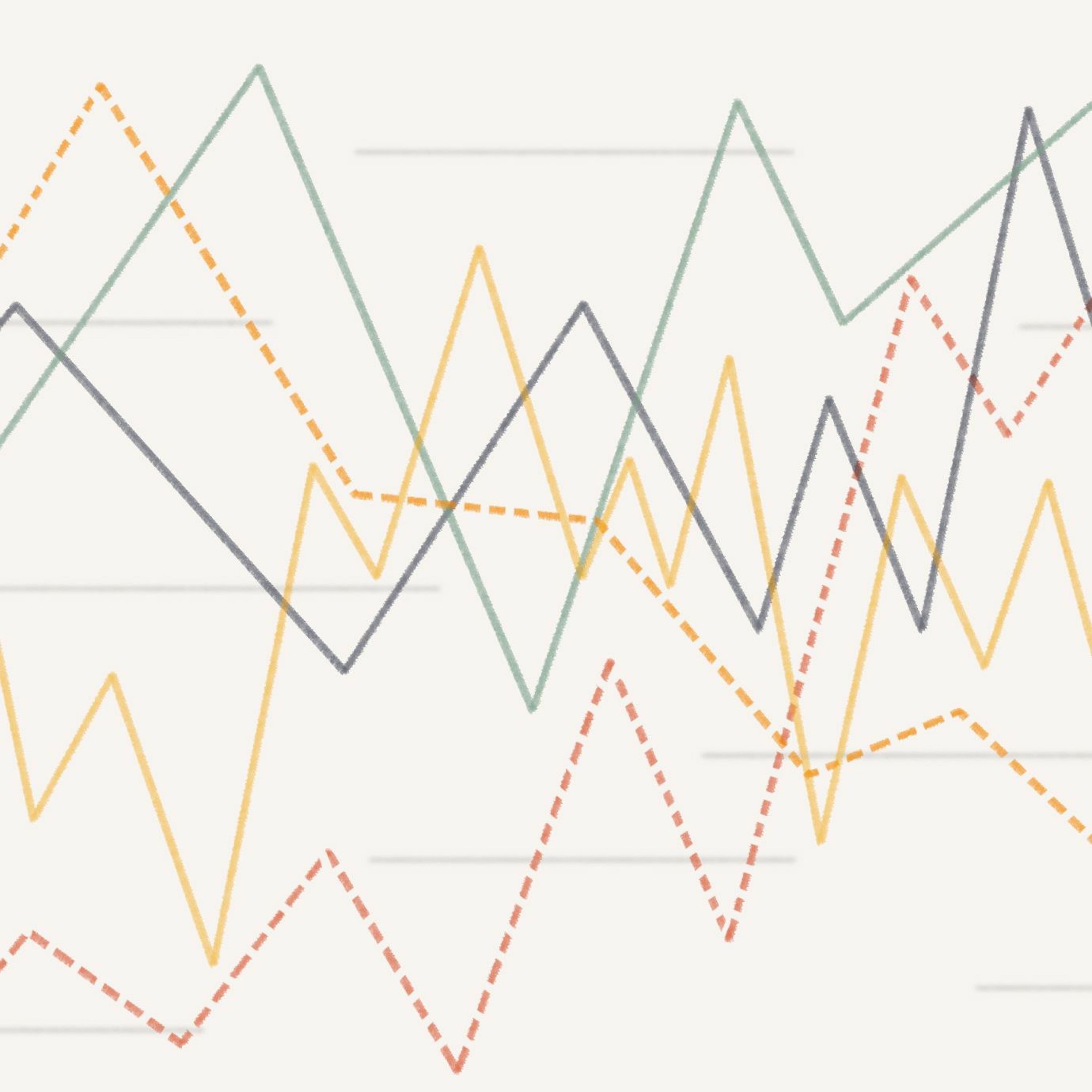 Berkman Klein Center for Internet & SocietyData Overload: Data, Journalism, & COVID-19As people turn to news outlets for information, journalists -- and data journalists in particular -- are under pressure to make sense of droves of complicated information.
Data Overload discusses the challenges journalists face obtaining, analyzing, and explaining data about the current pandemic.
Todd Wallack, a Berkman Klein-Nieman Fellow and data journalist at the Boston Globe, is joined by Caroline Chen, who covers health care for ProPublica, and Armand Emamdjomeh, an assignment editor, graphics at the Washington Post.
This event was co-sponsored by the Nieman Foundation.2020-04-2854 min
Berkman Klein Center for Internet & SocietyData Overload: Data, Journalism, & COVID-19As people turn to news outlets for information, journalists -- and data journalists in particular -- are under pressure to make sense of droves of complicated information.
Data Overload discusses the challenges journalists face obtaining, analyzing, and explaining data about the current pandemic.
Todd Wallack, a Berkman Klein-Nieman Fellow and data journalist at the Boston Globe, is joined by Caroline Chen, who covers health care for ProPublica, and Armand Emamdjomeh, an assignment editor, graphics at the Washington Post.
This event was co-sponsored by the Nieman Foundation.2020-04-2854 min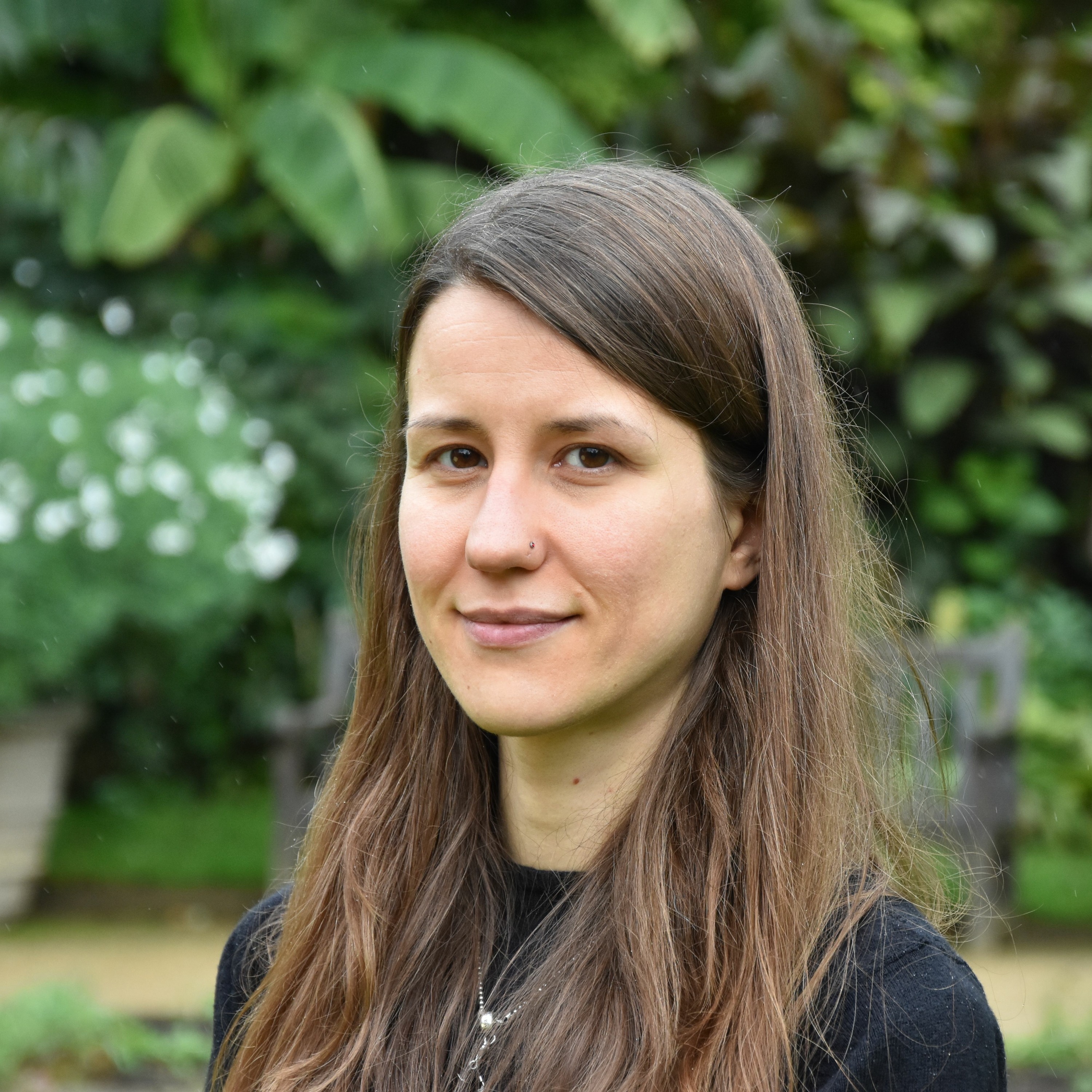 Berkman Klein Center for Internet & SocietyWhy Fairness Cannot Be AutomatedFairness and discrimination in algorithmic systems are globally recognized as topics of critical importance. To date, the majority of work in this area starts from an American regulatory perspective defined by the notions of ‘disparate treatment’ and ‘disparate impact.’ But European legal notions of discrimination are not equivalent.
In this talk, Sandra Wachter, Visiting Professor at Harvard Law School and Associate Professor and Senior Research Fellow in Law and Ethics of AI, Big Data, robotics and Internet Regulation at the Oxford Internet Institute (OII) at the University of Oxford, examines EU law and jurisprudence of the European Court of Justice concerni...2020-04-201h 13
Berkman Klein Center for Internet & SocietyWhy Fairness Cannot Be AutomatedFairness and discrimination in algorithmic systems are globally recognized as topics of critical importance. To date, the majority of work in this area starts from an American regulatory perspective defined by the notions of ‘disparate treatment’ and ‘disparate impact.’ But European legal notions of discrimination are not equivalent.
In this talk, Sandra Wachter, Visiting Professor at Harvard Law School and Associate Professor and Senior Research Fellow in Law and Ethics of AI, Big Data, robotics and Internet Regulation at the Oxford Internet Institute (OII) at the University of Oxford, examines EU law and jurisprudence of the European Court of Justice concerni...2020-04-201h 13 Berkman Klein Center for Internet & SocietyBot or Human? Unreliable Automatic Bot DetectionThe identification of bots is an important and complicated task. The bot classifier Botometer was successfully introduced as a way to estimate the number of bots in a given list of accounts and has been frequently used in academic publications.
Given its relevance for academic research, and our understanding of the presence of automated accounts in any given Twitter discourse, Adrian Rauchfleisch and Jonas Kaiser studied Botometer's diagnostic ability over time. To do so, Rauchfleisch and Kaiser collected the Botometer scores for five datasets in two languages (English/German) over three months. For this virtual event, Rauchfleisch and Kaiser discussed...2020-04-131h 06
Berkman Klein Center for Internet & SocietyBot or Human? Unreliable Automatic Bot DetectionThe identification of bots is an important and complicated task. The bot classifier Botometer was successfully introduced as a way to estimate the number of bots in a given list of accounts and has been frequently used in academic publications.
Given its relevance for academic research, and our understanding of the presence of automated accounts in any given Twitter discourse, Adrian Rauchfleisch and Jonas Kaiser studied Botometer's diagnostic ability over time. To do so, Rauchfleisch and Kaiser collected the Botometer scores for five datasets in two languages (English/German) over three months. For this virtual event, Rauchfleisch and Kaiser discussed...2020-04-131h 06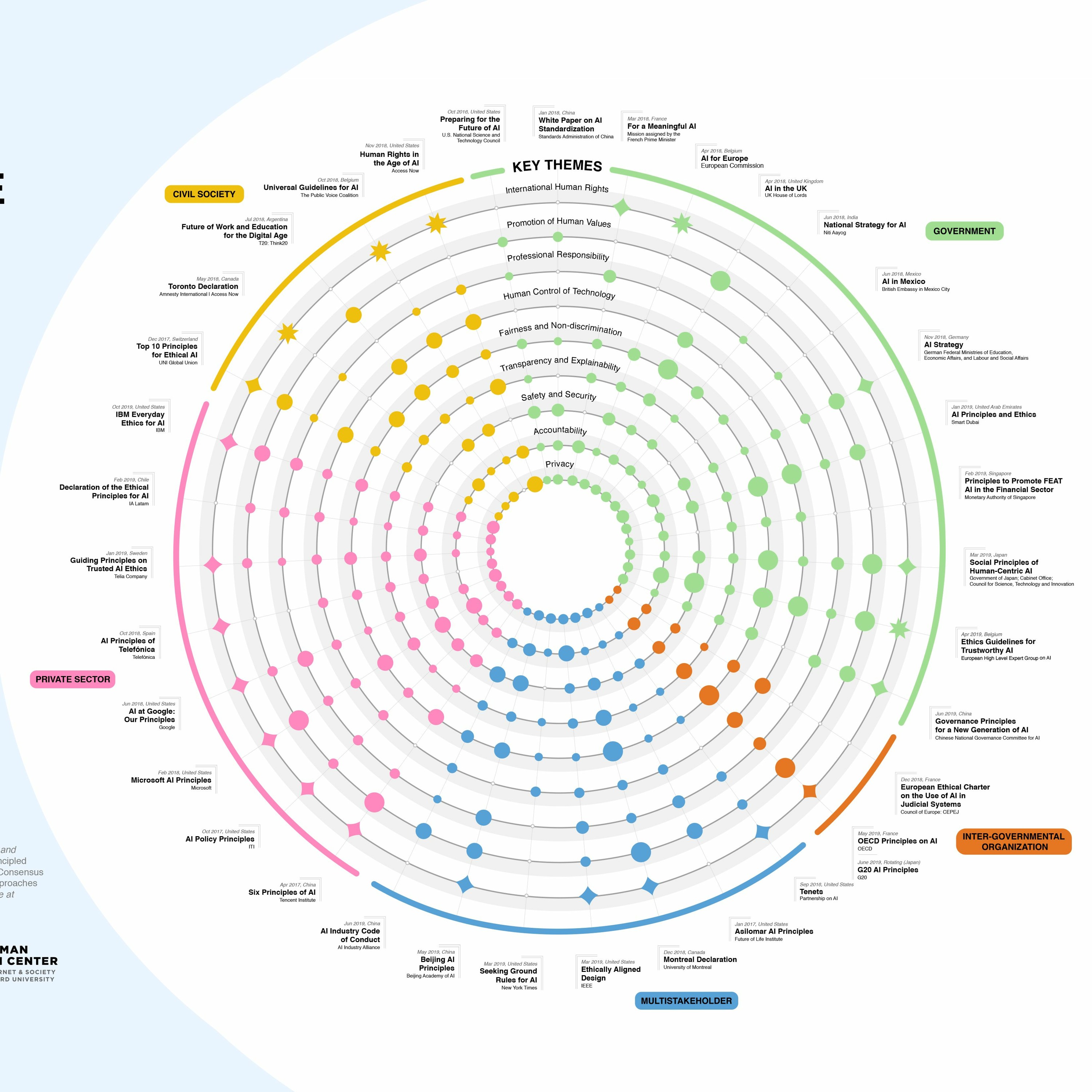 Berkman Klein Center for Internet & SocietyIn Principle and in PracticeThis virtual talk features Jessica Fjeld, assistant director of the Cyberlaw Clinic and lead author on the “Principled AI” report, in conversation with Ryan Budish, an assistant research director at Berkman Klein and a member of OECD’s AI Governance Expert Group, which proposed high-level AI principles. Fjeld and Budish discuss AI principles both generally (the high-level landscape in which they exist) and in practice (the creation and implementation process for principles.)2020-04-0659 min
Berkman Klein Center for Internet & SocietyIn Principle and in PracticeThis virtual talk features Jessica Fjeld, assistant director of the Cyberlaw Clinic and lead author on the “Principled AI” report, in conversation with Ryan Budish, an assistant research director at Berkman Klein and a member of OECD’s AI Governance Expert Group, which proposed high-level AI principles. Fjeld and Budish discuss AI principles both generally (the high-level landscape in which they exist) and in practice (the creation and implementation process for principles.)2020-04-0659 min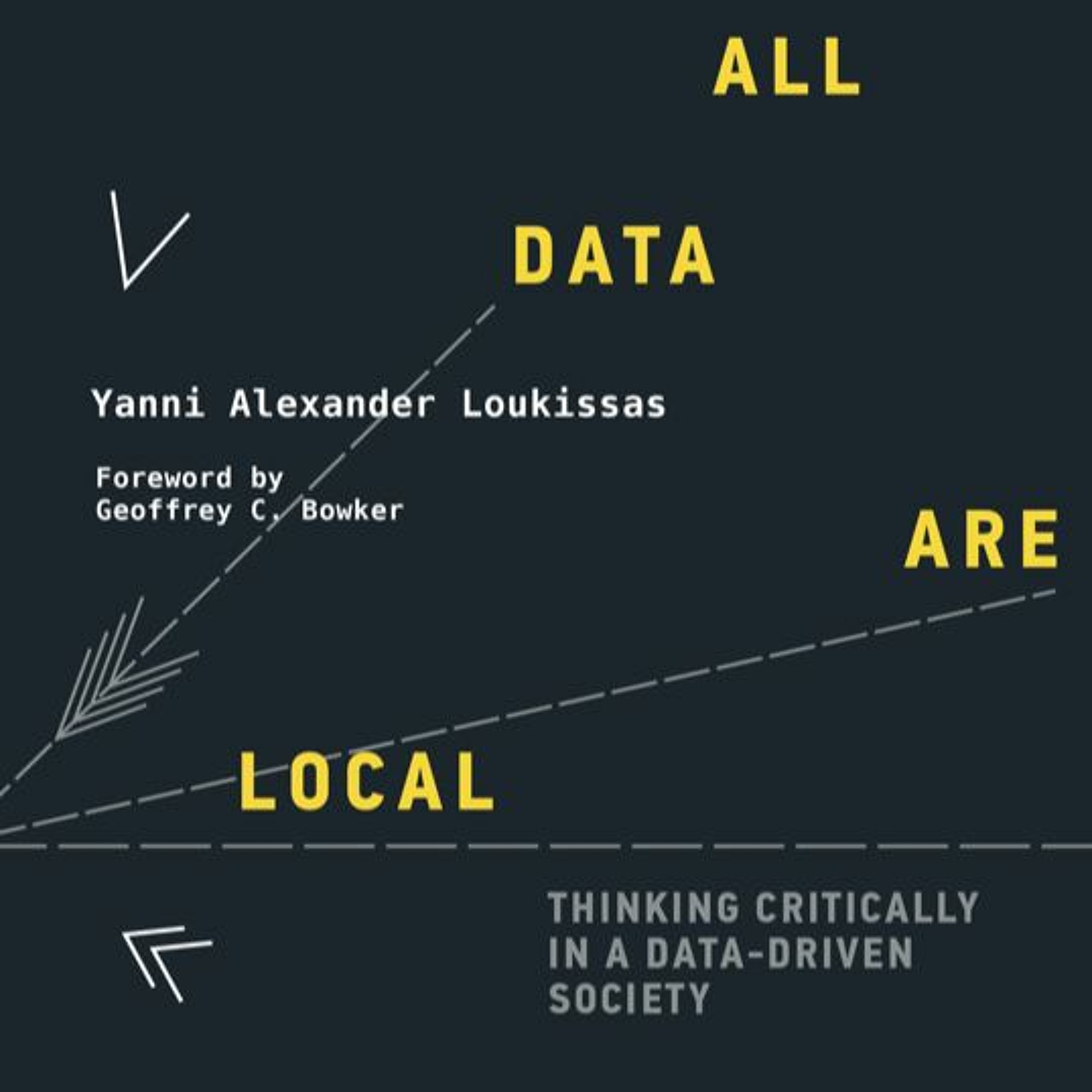 Berkman Klein Center for Internet & SocietyAll Data Are Local: Thinking Critically in a Data-Driven Society“In our data-driven society, it is too easy to assume the transparency of data. Instead, we should approach data sets with an awareness that they are created by humans and their dutiful machines, at a time, in a place, with the instruments at hand, for audiences that are conditioned to receive them,” says Yanni Alexander Loukissas, Assistant Professor of Digital Media in the School of Literature, Media, and Communication at Georgia Tech.
All data are local. The term data set implies something discrete, complete, and portable, but it is none of those things. Examining a series of sources important for unde...2020-03-231h 06
Berkman Klein Center for Internet & SocietyAll Data Are Local: Thinking Critically in a Data-Driven Society“In our data-driven society, it is too easy to assume the transparency of data. Instead, we should approach data sets with an awareness that they are created by humans and their dutiful machines, at a time, in a place, with the instruments at hand, for audiences that are conditioned to receive them,” says Yanni Alexander Loukissas, Assistant Professor of Digital Media in the School of Literature, Media, and Communication at Georgia Tech.
All data are local. The term data set implies something discrete, complete, and portable, but it is none of those things. Examining a series of sources important for unde...2020-03-231h 06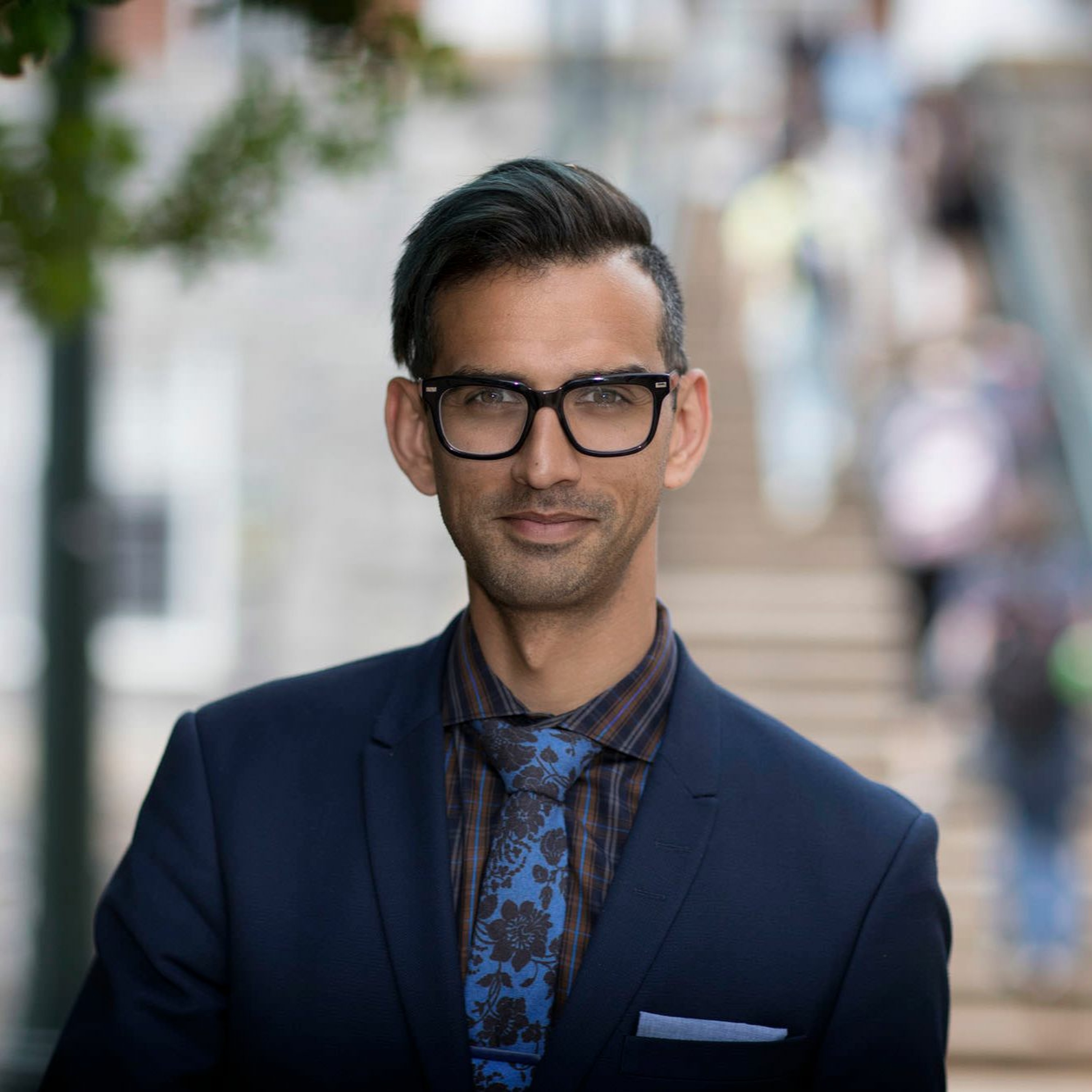 Berkman Klein Center for Internet & Society"Everything is better with better broadband" featuring Christopher AliRural broadband is currently having a moment in American political discourse. No less than 5 presidential candidates have released plans to connect the country’s rural places, and the FCC has recently announced a $20billion funding program for fixed broadband and a $9billion program for 5G deployment in rural America. Despite these initiatives and interests, however, rural America remains woefully disconnected from a digital world that the urban and wealthy take for granted. Worse yet, the digital divide is growing, not shrinking despite billions of dollars of yearly investment and dozens of legislative proposals.
This talk explains the policies that help an...2020-03-1052 min
Berkman Klein Center for Internet & Society"Everything is better with better broadband" featuring Christopher AliRural broadband is currently having a moment in American political discourse. No less than 5 presidential candidates have released plans to connect the country’s rural places, and the FCC has recently announced a $20billion funding program for fixed broadband and a $9billion program for 5G deployment in rural America. Despite these initiatives and interests, however, rural America remains woefully disconnected from a digital world that the urban and wealthy take for granted. Worse yet, the digital divide is growing, not shrinking despite billions of dollars of yearly investment and dozens of legislative proposals.
This talk explains the policies that help an...2020-03-1052 min Berkman Klein Center for Internet & SocietyAdvancing Racial Literacy in TechDr. Howard Stevenson of the University of Pennsylvania kicked off the Berkman Klein Spring 2020 Luncheon Series with a talk and discussion on Advancing Racial Literacy in Tech. Racial literacy provides a framework for considering how to combat the proliferation of racially-biased technology. Dr. Stevenson was joined in conversation by Jessie Daniels and Mutale Nkonde.
Dr. Howard Stevenson is the Constance Clayton Professor of Urban Education, Professor of Africana Studies, in the Human Development & Quantitative Methods Division of the Graduate School of Education at the University of Pennsylvania. He is the Executive Director of the Racial Empowerment Collaborative at Penn, designed...2020-02-141h 00
Berkman Klein Center for Internet & SocietyAdvancing Racial Literacy in TechDr. Howard Stevenson of the University of Pennsylvania kicked off the Berkman Klein Spring 2020 Luncheon Series with a talk and discussion on Advancing Racial Literacy in Tech. Racial literacy provides a framework for considering how to combat the proliferation of racially-biased technology. Dr. Stevenson was joined in conversation by Jessie Daniels and Mutale Nkonde.
Dr. Howard Stevenson is the Constance Clayton Professor of Urban Education, Professor of Africana Studies, in the Human Development & Quantitative Methods Division of the Graduate School of Education at the University of Pennsylvania. He is the Executive Director of the Racial Empowerment Collaborative at Penn, designed...2020-02-141h 00 Berkman Klein Center for Internet & SocietyBetween Truth and Power: Featuring Julie CohenOur current legal system is to a great extent the product of an earlier period of social and economic transformation. From the late 19th century through the mid-20th century, the U.S. legal system underwent profound, tectonic shifts. Today, struggles over ownership of information-age resources and accountability for information-age harms are producing new systemic changes. In Between Truth and Power, Julie E. Cohen explores the relationships between legal institutions and political and economic transformation. Systematically examining struggles over the conditions of information flow and the design of information architectures and business models, she argues that as law is enlisted...2019-12-131h 01
Berkman Klein Center for Internet & SocietyBetween Truth and Power: Featuring Julie CohenOur current legal system is to a great extent the product of an earlier period of social and economic transformation. From the late 19th century through the mid-20th century, the U.S. legal system underwent profound, tectonic shifts. Today, struggles over ownership of information-age resources and accountability for information-age harms are producing new systemic changes. In Between Truth and Power, Julie E. Cohen explores the relationships between legal institutions and political and economic transformation. Systematically examining struggles over the conditions of information flow and the design of information architectures and business models, she argues that as law is enlisted...2019-12-131h 01 Berkman Klein Center for Internet & SocietySharenthood: How Parents, Teachers, and Other Trusted Adults Harm Youth Privacy & OpportunityA new book by BKC Faculty Associate and Youth & Media team member Leah Plunkett joins works by Margaret Atwood and Stephen King on Wired's list of "must-read" books for fall 2019. Leah's book from MIT Press, Sharenthood: Why We Should Think Before We Talk About Our Kids Online, "illuminates children's digital footprints: the digital baby monitors, the daycare livestreams, the nurse's office health records, the bus and cafeteria passes recording their travel and consumption patterns―all part of an indelible dossier for anyone who knows how to look for it. Plunkett thinks the offspring surveillance ought to stop and has suggestions for how...2019-12-041h 00
Berkman Klein Center for Internet & SocietySharenthood: How Parents, Teachers, and Other Trusted Adults Harm Youth Privacy & OpportunityA new book by BKC Faculty Associate and Youth & Media team member Leah Plunkett joins works by Margaret Atwood and Stephen King on Wired's list of "must-read" books for fall 2019. Leah's book from MIT Press, Sharenthood: Why We Should Think Before We Talk About Our Kids Online, "illuminates children's digital footprints: the digital baby monitors, the daycare livestreams, the nurse's office health records, the bus and cafeteria passes recording their travel and consumption patterns―all part of an indelible dossier for anyone who knows how to look for it. Plunkett thinks the offspring surveillance ought to stop and has suggestions for how...2019-12-041h 00 Berkman Klein Center for Internet & SocietyNapster@20: Reflections on the Internet’s Most Controversial Music File Sharing ServiceThis panel discussion will address the topic of “Napster @ 20,” looking back from our vantage point in 2019 and examining the direct and indirect legacy of Napster over the past two decades. The panelists are Christopher Bavitz, Nancy Baym, David Herlihy, and Jennifer Jenkins. For more information about this event, visit https://cyber.harvard.edu/events/napster20-reflections-internets-most-controversial-music-file-sharing-service2019-11-2559 min
Berkman Klein Center for Internet & SocietyNapster@20: Reflections on the Internet’s Most Controversial Music File Sharing ServiceThis panel discussion will address the topic of “Napster @ 20,” looking back from our vantage point in 2019 and examining the direct and indirect legacy of Napster over the past two decades. The panelists are Christopher Bavitz, Nancy Baym, David Herlihy, and Jennifer Jenkins. For more information about this event, visit https://cyber.harvard.edu/events/napster20-reflections-internets-most-controversial-music-file-sharing-service2019-11-2559 min Berkman Klein Center for Internet & SocietyEthics of the Digital TransformationThe Berkman Klein Center for Internet & Society at Harvard University was delighted to welcome the President of Germany, Dr. Frank-Walter Steinmeier, to campus for a special event on November 1 to discuss the Ethics of the Digital Transformation. Parts of this recording are in German. For more information, visithttps://cyber.harvard.edu/events/ethics-digital-transformation2019-11-151h 28
Berkman Klein Center for Internet & SocietyEthics of the Digital TransformationThe Berkman Klein Center for Internet & Society at Harvard University was delighted to welcome the President of Germany, Dr. Frank-Walter Steinmeier, to campus for a special event on November 1 to discuss the Ethics of the Digital Transformation. Parts of this recording are in German. For more information, visithttps://cyber.harvard.edu/events/ethics-digital-transformation2019-11-151h 28 Berkman Klein Center for Internet & SocietyNorth of Havana: A Lawyer's Truth featuring Martin GarbusIn this talk, Martin Garbus shares his truth: from representing criminal murder defendants, to representing detained migrants, to the internet’s effect on justice. When a lawyer must choose between giving a truth that will lead to injustice or lying to pursue justice, what are his obligations? For more information, visithttps://cyber.harvard.edu/events/north-havana-lawyers-truth2019-11-061h 03
Berkman Klein Center for Internet & SocietyNorth of Havana: A Lawyer's Truth featuring Martin GarbusIn this talk, Martin Garbus shares his truth: from representing criminal murder defendants, to representing detained migrants, to the internet’s effect on justice. When a lawyer must choose between giving a truth that will lead to injustice or lying to pursue justice, what are his obligations? For more information, visithttps://cyber.harvard.edu/events/north-havana-lawyers-truth2019-11-061h 03 Berkman Klein Center for Internet & SocietyProtecting Elections from Online Manipulation and Cyber ThreatsIsrael went through two full election campaigns in 2019, featuring the cutting edge of network propaganda technologies. Justice Hanan Melcer of Israel's Supreme Court chaired Israel's Central Elections Committee during both elections and speaks about his experiences managing the two election cycles and ruling on campaign practices as they unfolded in real-time. For more information about this event, including a transcript, visit:https://cyber.harvard.edu/events/protecting-elections-online-manipulation-and-cyber-threats-experience-israels-2019-elections2019-11-041h 25
Berkman Klein Center for Internet & SocietyProtecting Elections from Online Manipulation and Cyber ThreatsIsrael went through two full election campaigns in 2019, featuring the cutting edge of network propaganda technologies. Justice Hanan Melcer of Israel's Supreme Court chaired Israel's Central Elections Committee during both elections and speaks about his experiences managing the two election cycles and ruling on campaign practices as they unfolded in real-time. For more information about this event, including a transcript, visit:https://cyber.harvard.edu/events/protecting-elections-online-manipulation-and-cyber-threats-experience-israels-2019-elections2019-11-041h 25 Berkman Klein Center for Internet & SocietyContesting Algorithms featuring Niva Elkin-KorenNiva Elkin-Koren addresses issues in AI-based content moderation by introducing an adversarial procedure, the strategy of “Contesting Algorithms,” and discussing its promises and limitations. For more information about this event, visit: https://cyber.harvard.edu/events/contesting-algorithms2019-11-041h 09
Berkman Klein Center for Internet & SocietyContesting Algorithms featuring Niva Elkin-KorenNiva Elkin-Koren addresses issues in AI-based content moderation by introducing an adversarial procedure, the strategy of “Contesting Algorithms,” and discussing its promises and limitations. For more information about this event, visit: https://cyber.harvard.edu/events/contesting-algorithms2019-11-041h 09 Berkman Klein Center for Internet & Societyhttps://cyber.harvard.edu/events/conversion-twitterThis talk features Megan Phelps-Roper and Brittan Heller in discussion about Phelps-Roper's new book Unfollow: A Memoir of Loving and Leaving the Westboro Baptist Church.2019-10-281h 10
Berkman Klein Center for Internet & Societyhttps://cyber.harvard.edu/events/conversion-twitterThis talk features Megan Phelps-Roper and Brittan Heller in discussion about Phelps-Roper's new book Unfollow: A Memoir of Loving and Leaving the Westboro Baptist Church.2019-10-281h 10 Berkman Klein Center for Internet & SocietyA New Jim Code? Featuring Ruha Benjamin and Jasmine McNealyFrom everyday apps to complex algorithms, technology has the potential to hide, speed, and even deepen discrimination, while appearing neutral and even benevolent when compared to racist practices of a previous era. In this talk, Ruha Benjamin presents the concept of the “New Jim Code" to explore a range of discriminatory designs that encode inequity: by explicitly amplifying racial hierarchies, by ignoring but thereby replicating social divisions, or by aiming to fix racial bias but ultimately doing quite the opposite. Ruha will also consider how race itself is a kind of tool designed to stratify and sanctify social injustice and di...2019-10-031h 02
Berkman Klein Center for Internet & SocietyA New Jim Code? Featuring Ruha Benjamin and Jasmine McNealyFrom everyday apps to complex algorithms, technology has the potential to hide, speed, and even deepen discrimination, while appearing neutral and even benevolent when compared to racist practices of a previous era. In this talk, Ruha Benjamin presents the concept of the “New Jim Code" to explore a range of discriminatory designs that encode inequity: by explicitly amplifying racial hierarchies, by ignoring but thereby replicating social divisions, or by aiming to fix racial bias but ultimately doing quite the opposite. Ruha will also consider how race itself is a kind of tool designed to stratify and sanctify social injustice and di...2019-10-031h 02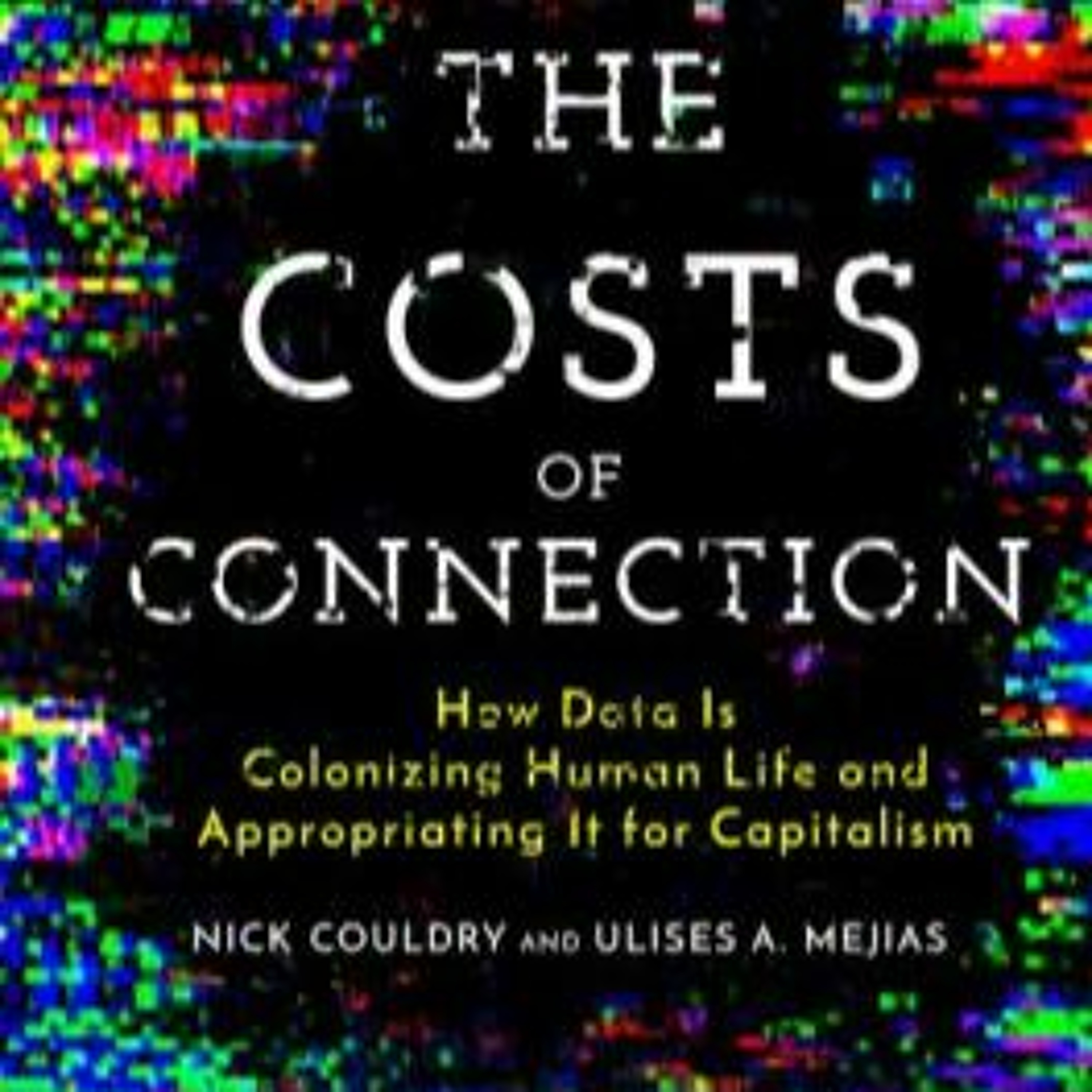 Berkman Klein Center for Internet & SocietyColonized by Data: The Costs of Connection with Nick Couldry and Ulises MejiasThis talk introduces the speakers’ new book, The Costs of Connection: How Data Colonizes Human Life and Appropriates it for Capitalism (Stanford University Press, August 2019). For more information (and a transcript) visit https://cyber.harvard.edu/events/colonized-data-costs-connection-nick-couldry-and-ulises-mejias2019-09-271h 11
Berkman Klein Center for Internet & SocietyColonized by Data: The Costs of Connection with Nick Couldry and Ulises MejiasThis talk introduces the speakers’ new book, The Costs of Connection: How Data Colonizes Human Life and Appropriates it for Capitalism (Stanford University Press, August 2019). For more information (and a transcript) visit https://cyber.harvard.edu/events/colonized-data-costs-connection-nick-couldry-and-ulises-mejias2019-09-271h 11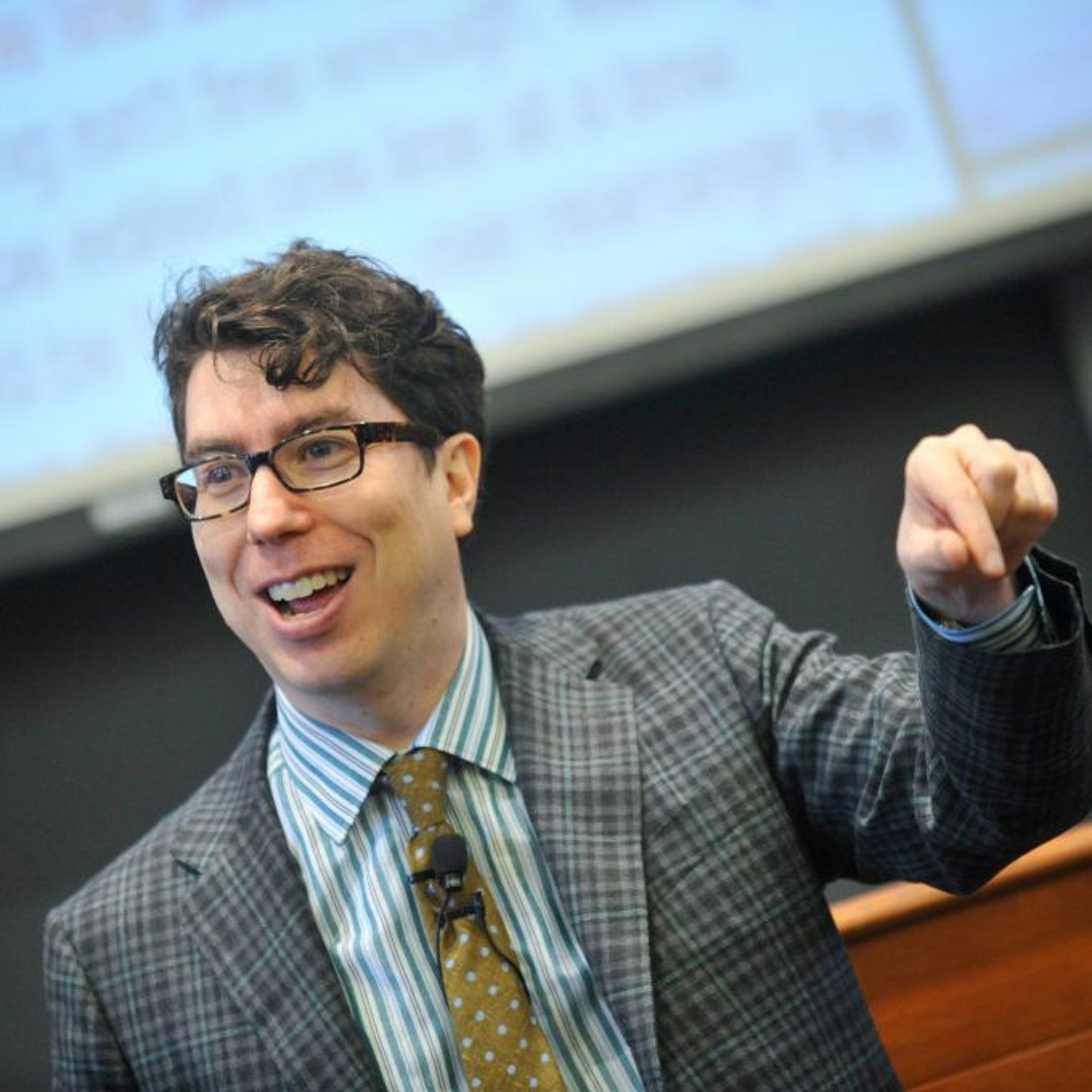 Berkman Klein Center for Internet & SocietyCan Tech be Governed? With Jonathan Zittrain and Kendra AlbertThe twenty-odd year mainstream digital revolution has transformed in the public eye from one of promise to threat. This pessimism is reflected in assessments of the latest pervasive technology: AI generally, and machine learning specifically. How different is this technology from what preceded it, and do we need new ways to govern it? If so, how would they come about? For more information about this event, visit https://cyber.harvard.edu/events/can-tech-be-governed2019-09-1654 min
Berkman Klein Center for Internet & SocietyCan Tech be Governed? With Jonathan Zittrain and Kendra AlbertThe twenty-odd year mainstream digital revolution has transformed in the public eye from one of promise to threat. This pessimism is reflected in assessments of the latest pervasive technology: AI generally, and machine learning specifically. How different is this technology from what preceded it, and do we need new ways to govern it? If so, how would they come about? For more information about this event, visit https://cyber.harvard.edu/events/can-tech-be-governed2019-09-1654 min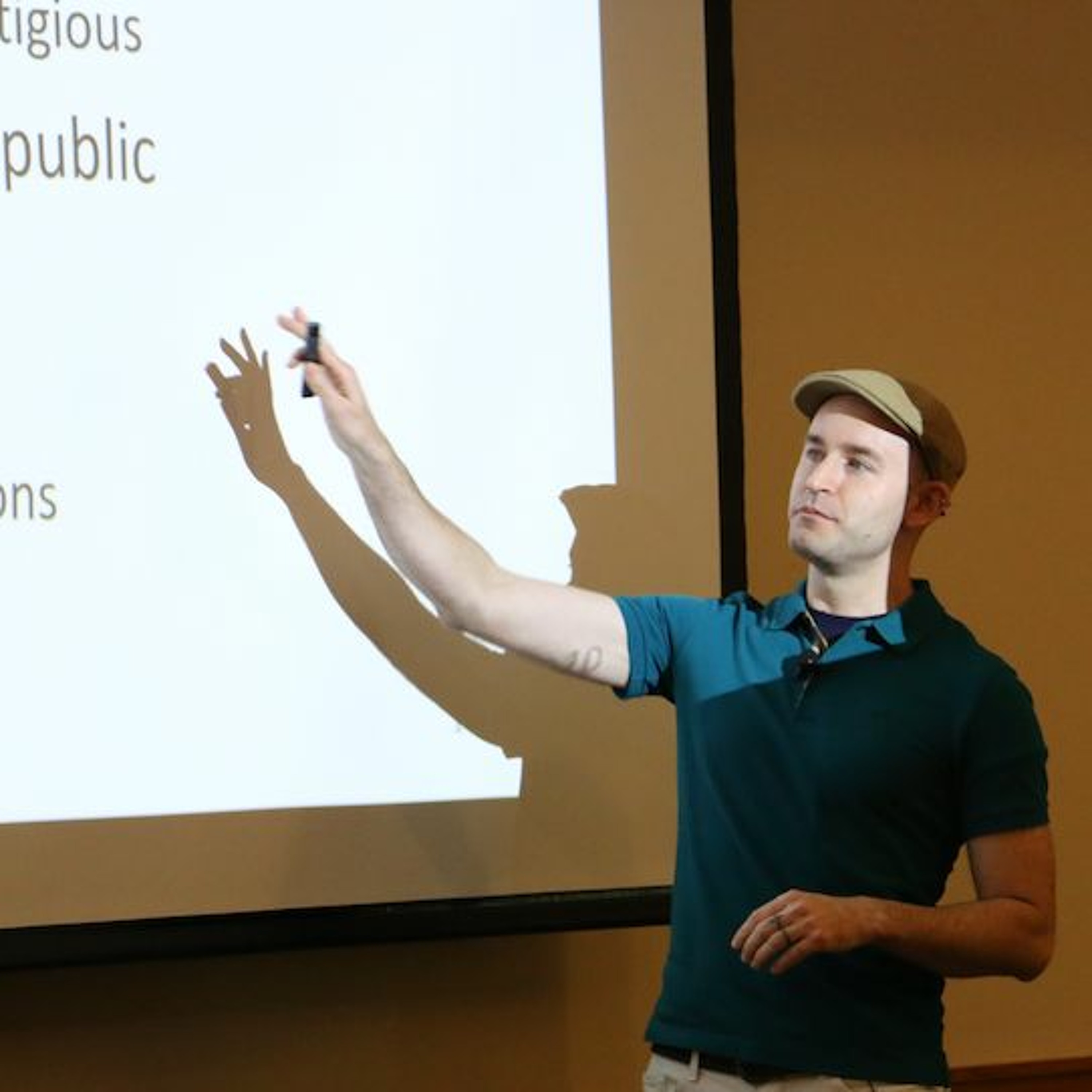 Berkman Klein Center for Internet & SocietyAuditing for Bias in Resume Search Engines with Christo WilsonThere is growing awareness and concern about the role of automation in hiring, and the potential for these tools to reinforce historic inequalities in the labor market. In this work, Wilson performs an algorithm audit of the resume search engines offered by several of the largest online hiring platforms, to understand the relationship between a candidate's gender and their rank in search results. He and his team audit these platform with respect to individual and group fairness, as well as indirect and direct discrimination.
For more info about this event, visit https://cyber.harvard.edu/events/2019-05-21/auditing-bias-resume-search-engines2019-06-031h 09
Berkman Klein Center for Internet & SocietyAuditing for Bias in Resume Search Engines with Christo WilsonThere is growing awareness and concern about the role of automation in hiring, and the potential for these tools to reinforce historic inequalities in the labor market. In this work, Wilson performs an algorithm audit of the resume search engines offered by several of the largest online hiring platforms, to understand the relationship between a candidate's gender and their rank in search results. He and his team audit these platform with respect to individual and group fairness, as well as indirect and direct discrimination.
For more info about this event, visit https://cyber.harvard.edu/events/2019-05-21/auditing-bias-resume-search-engines2019-06-031h 09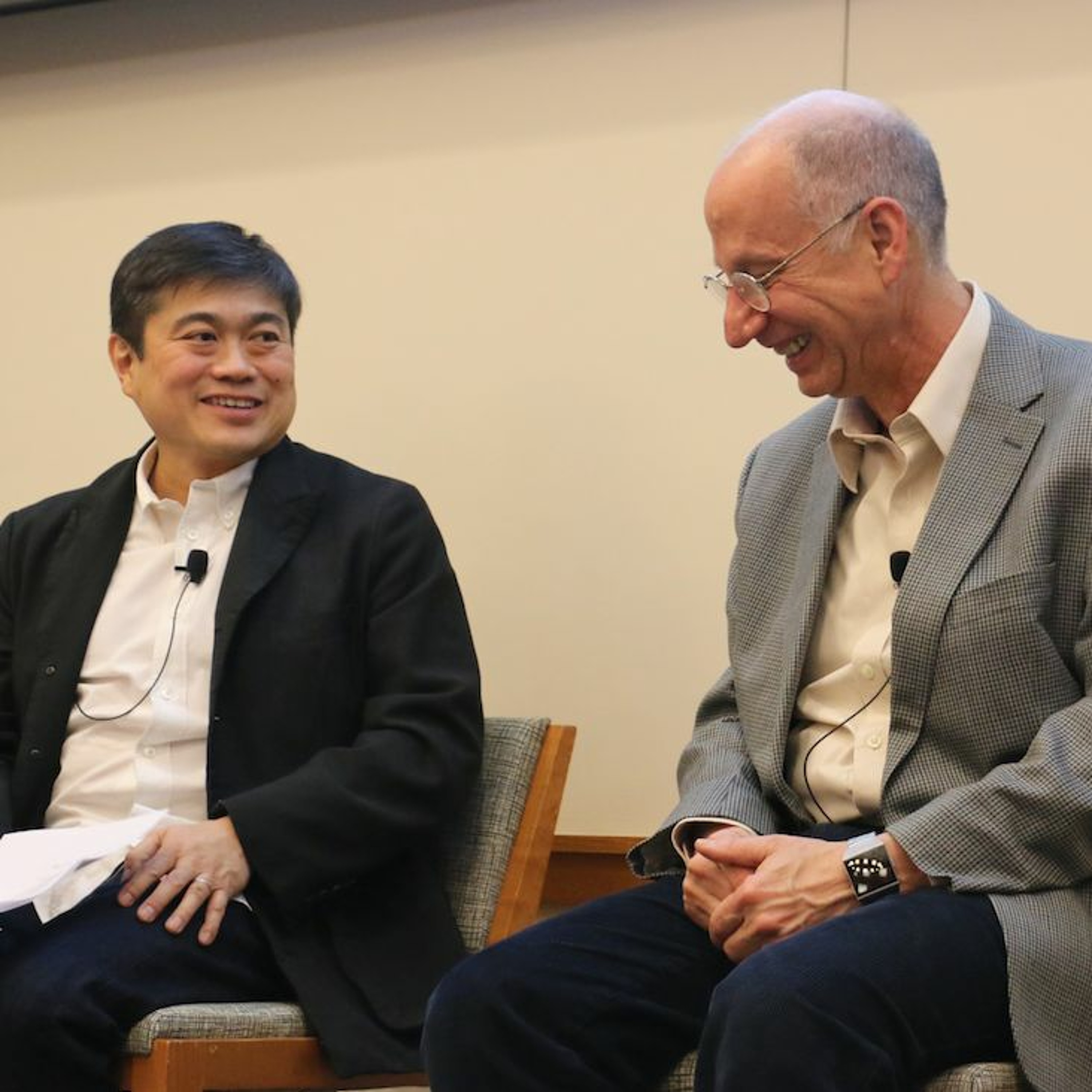 Berkman Klein Center for Internet & SocietyEveryday Chaos - A Book Talk with author David Weinberger and Joi ItoThe Internet and AI are not only changing the future, they're changing our ideas about how the future arises from the present. In his new book, Everyday Chaos, David Weinberger points to accepted ways we work on the Internet that in undo our old assumptions about how the future works.
For more info about this event visit: https://cyber.harvard.edu/events/2019-05-14/everyday-chaos2019-05-201h 23
Berkman Klein Center for Internet & SocietyEveryday Chaos - A Book Talk with author David Weinberger and Joi ItoThe Internet and AI are not only changing the future, they're changing our ideas about how the future arises from the present. In his new book, Everyday Chaos, David Weinberger points to accepted ways we work on the Internet that in undo our old assumptions about how the future works.
For more info about this event visit: https://cyber.harvard.edu/events/2019-05-14/everyday-chaos2019-05-201h 23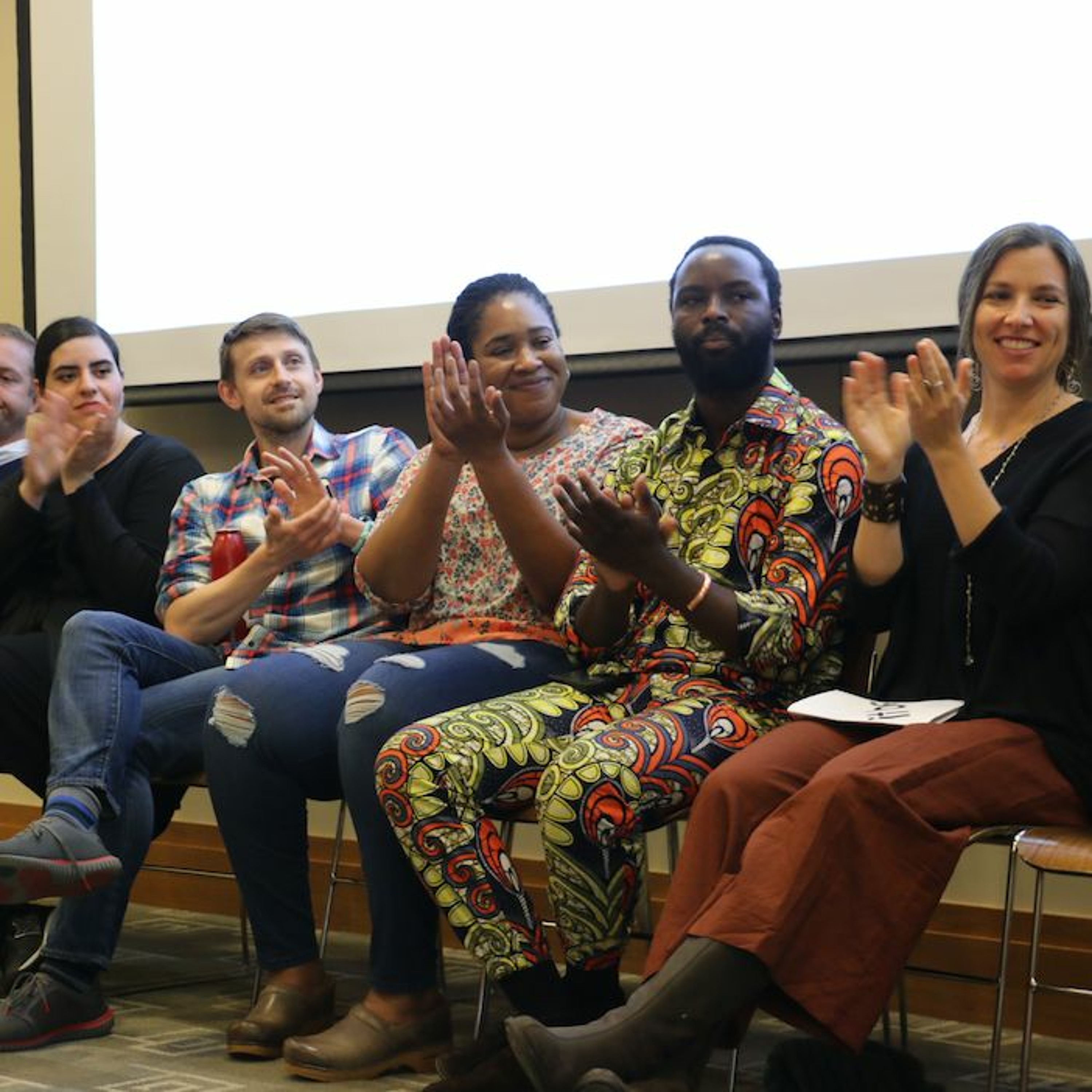 Berkman Klein Center for Internet & SocietyIGNITE talks - Featuring Members of the BKC CommunityBerkman Klein community members Elettra Bietti, John Collins, Andrew Gruen, Daniel Jones, Mariel Garcia Montes, Jasmine McNealy, Sabelo Mhlambi, Sarah Newman, Kathy Pham, and Salome Viljoen share their research, passions, and musings in five minute Ignite Talks.
Topics include the data economy in the European Union, maternal health around the world, youth and privacy online in Latin American, Ubuntu as an ethical framework for AI, collecting secrets, and more.
For more info about this event visit: https://cyber.harvard.edu/events/2019-05-07/ignite-talks-bkc2019-05-101h 12
Berkman Klein Center for Internet & SocietyIGNITE talks - Featuring Members of the BKC CommunityBerkman Klein community members Elettra Bietti, John Collins, Andrew Gruen, Daniel Jones, Mariel Garcia Montes, Jasmine McNealy, Sabelo Mhlambi, Sarah Newman, Kathy Pham, and Salome Viljoen share their research, passions, and musings in five minute Ignite Talks.
Topics include the data economy in the European Union, maternal health around the world, youth and privacy online in Latin American, Ubuntu as an ethical framework for AI, collecting secrets, and more.
For more info about this event visit: https://cyber.harvard.edu/events/2019-05-07/ignite-talks-bkc2019-05-101h 12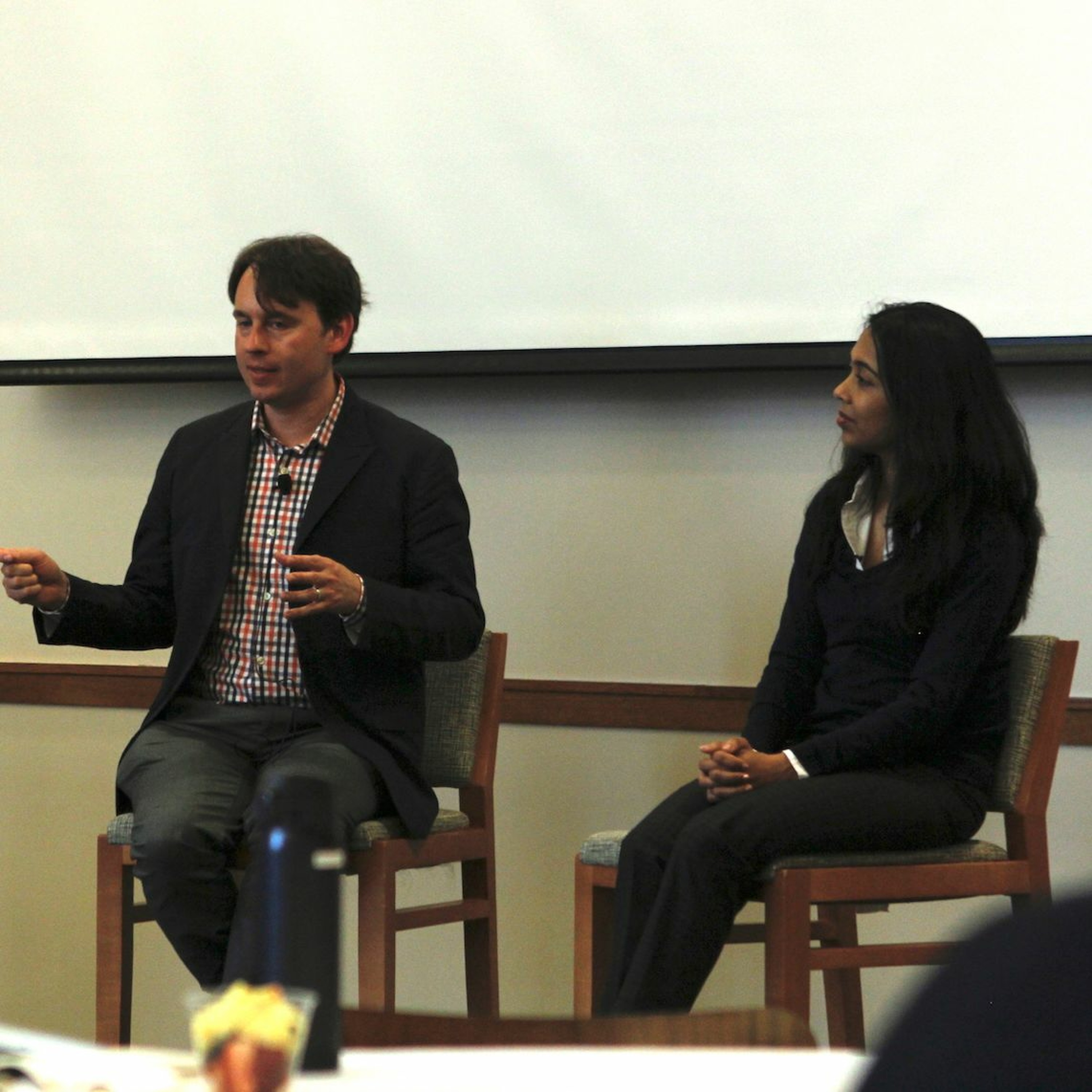 Berkman Klein Center for Internet & SocietyHow to Work with Tech Companies on Human RightsHow can advocates, activists, and academics work with technology companies to advance human rights? In this talk, David Sullivan, director at the Global Network Initiative, and BKC Fellow Chinmayi Arun draw upon a contentious exchange with Steve Jobs about the Democratic Republic of Congo to offer insights into how companies and civil society can work together on tough issues at the intersection of technology and human rights online.
For more info about this event visit:https://cyber.harvard.edu/events/2019-04-23/how-work-tech-companies-human-rights2019-04-2555 min
Berkman Klein Center for Internet & SocietyHow to Work with Tech Companies on Human RightsHow can advocates, activists, and academics work with technology companies to advance human rights? In this talk, David Sullivan, director at the Global Network Initiative, and BKC Fellow Chinmayi Arun draw upon a contentious exchange with Steve Jobs about the Democratic Republic of Congo to offer insights into how companies and civil society can work together on tough issues at the intersection of technology and human rights online.
For more info about this event visit:https://cyber.harvard.edu/events/2019-04-23/how-work-tech-companies-human-rights2019-04-2555 min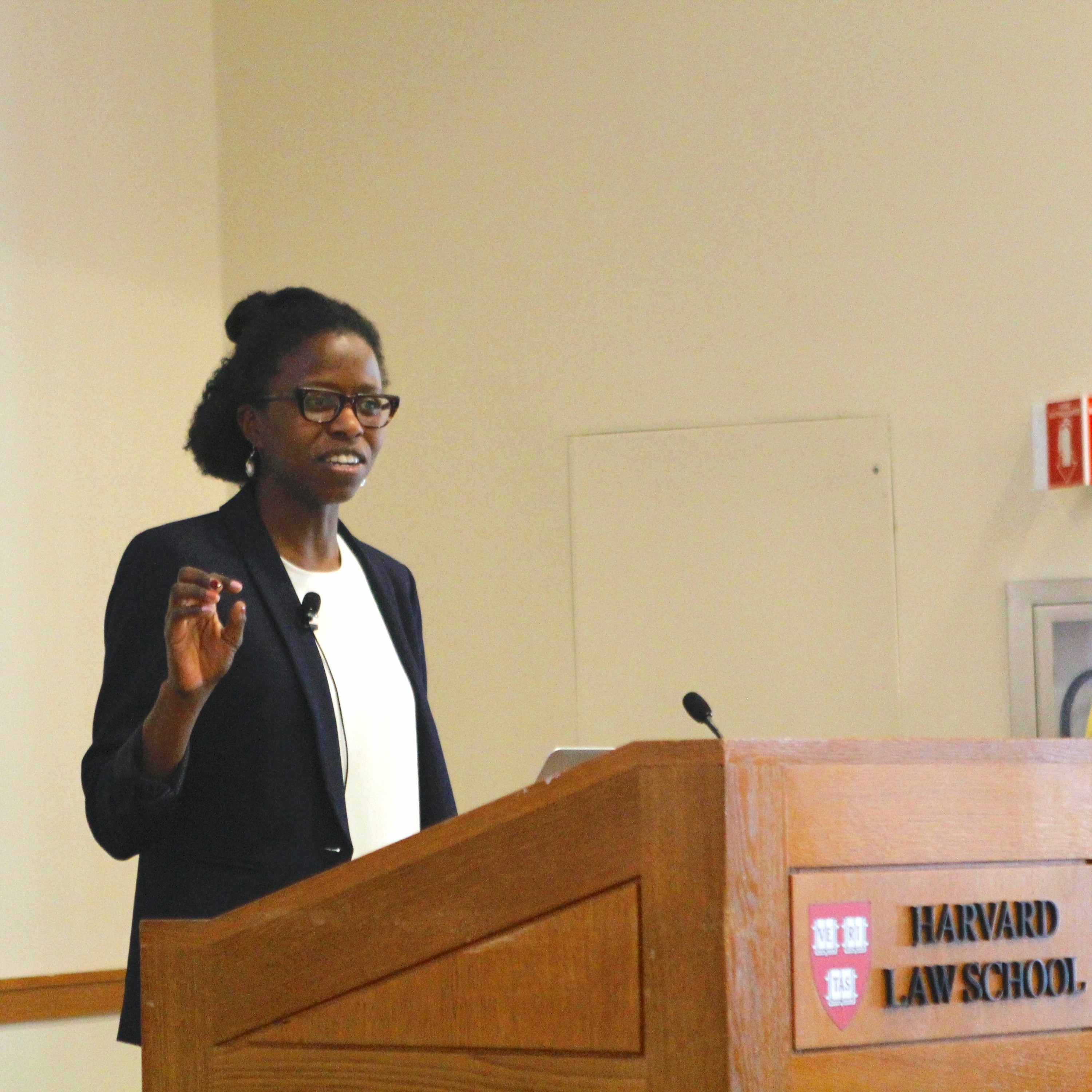 Berkman Klein Center for Internet & SocietyDirty Data, Bad Predictions - How Civil Rights Violations Impact Police Data, Systems & SocietyAI Now Director of Policy Research Rashida Richardson discusses recent research on the data provenance of police data commonly used in predictive policing system. The research reviews Department of Justice consent decrees and other federal court monitored settlements related to police practices to examine the link between unlawful and biased police practices and the data used to train and/or implement these systems.
For more info about this event visit: https://cyber.harvard.edu/events/2019-04-16/dirty-data-bad-predictions2019-04-1958 min
Berkman Klein Center for Internet & SocietyDirty Data, Bad Predictions - How Civil Rights Violations Impact Police Data, Systems & SocietyAI Now Director of Policy Research Rashida Richardson discusses recent research on the data provenance of police data commonly used in predictive policing system. The research reviews Department of Justice consent decrees and other federal court monitored settlements related to police practices to examine the link between unlawful and biased police practices and the data used to train and/or implement these systems.
For more info about this event visit: https://cyber.harvard.edu/events/2019-04-16/dirty-data-bad-predictions2019-04-1958 min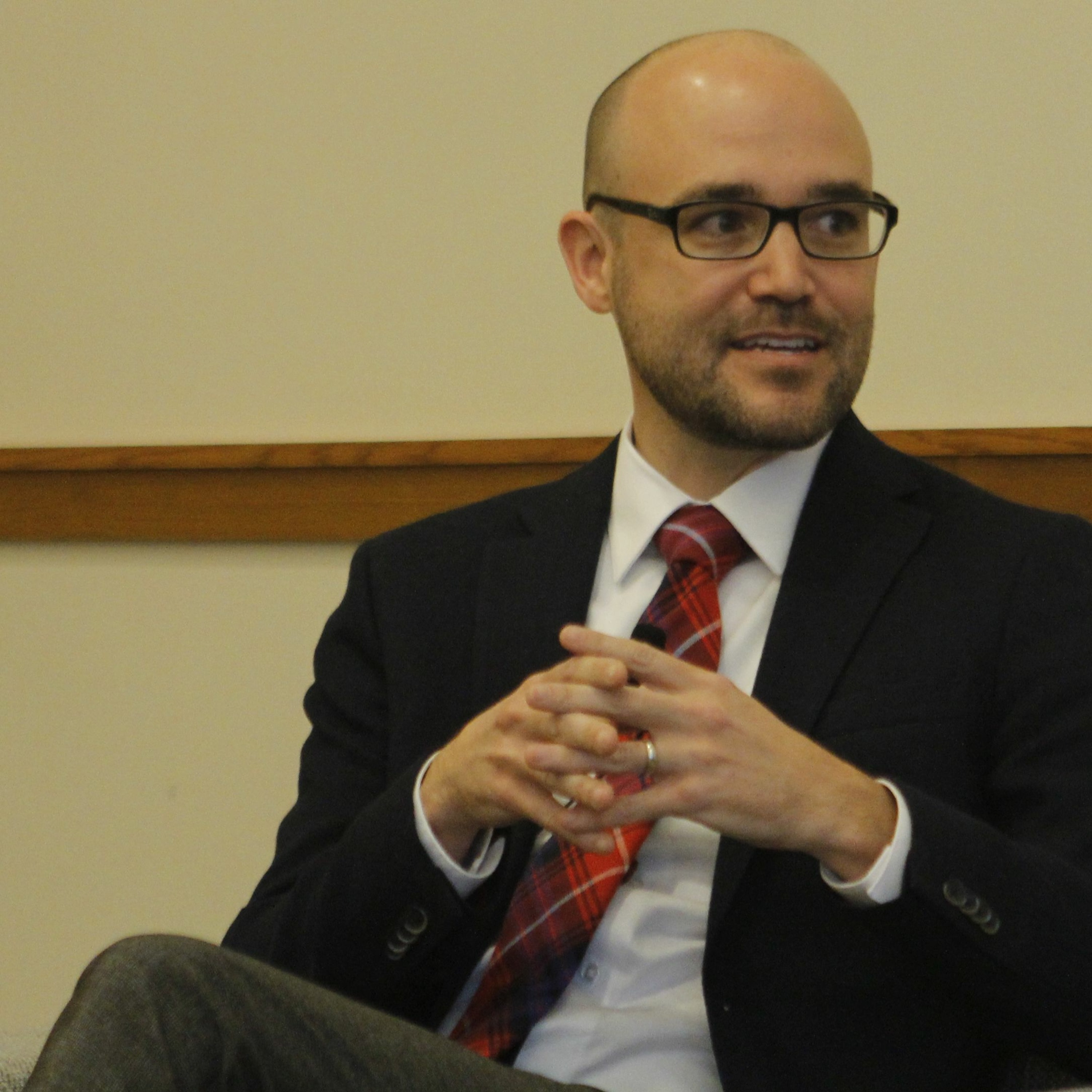 Berkman Klein Center for Internet & SocietyBKC Meet the Author Series: Urs Gasser in conversation with Jason FarmanBKC Executive Director Urs Gasser speaks with Jason Farman, author of the book "Delayed Response: The Art of Waiting from the Ancient to the Instant World," about how our communication media shape not only how we understand human intimacy and connection, but also how we learn and build knowledge about our world and the universe.
For more info about this event visit: https://cyber.harvard.edu/events/2019-04-08/bkc-meet-author-series-urs-gasser-conversation-jason-farman2019-04-1257 min
Berkman Klein Center for Internet & SocietyBKC Meet the Author Series: Urs Gasser in conversation with Jason FarmanBKC Executive Director Urs Gasser speaks with Jason Farman, author of the book "Delayed Response: The Art of Waiting from the Ancient to the Instant World," about how our communication media shape not only how we understand human intimacy and connection, but also how we learn and build knowledge about our world and the universe.
For more info about this event visit: https://cyber.harvard.edu/events/2019-04-08/bkc-meet-author-series-urs-gasser-conversation-jason-farman2019-04-1257 min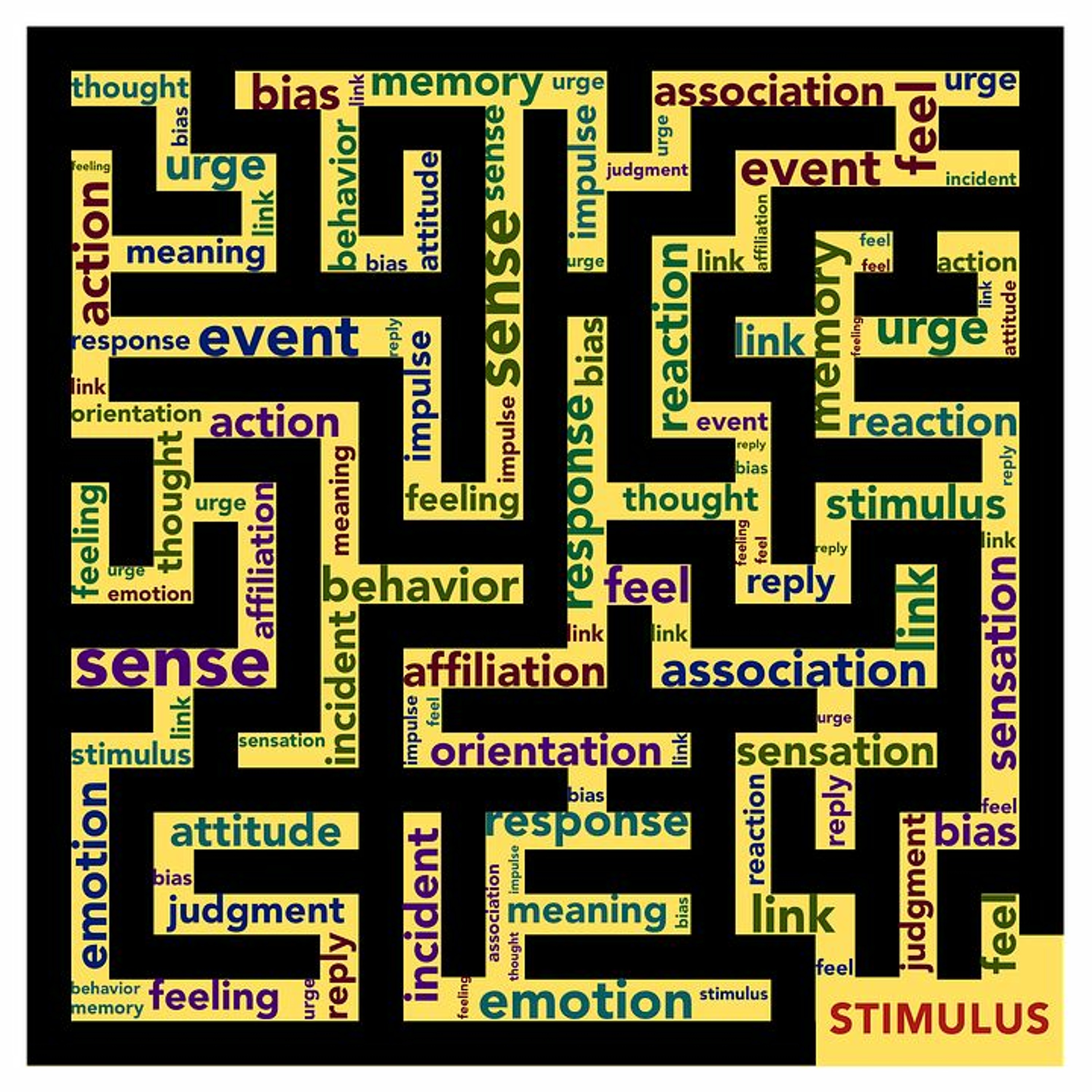 Berkman Klein Center for Internet & SocietyMachines Learning to Find Injustice -Featuring Ryan Copus, HLS Climenko Fellow and Lecturer on LawPredictive algorithms can often outperform humans in making legal decisions. But when used to automate or guide decisions, predictions can embed biases, conflict with a "right to explanation," and be manipulated by litigants. HLS Climenko Fellow and Lecturer on Law Ryan Copus suggests we should instead use predictive algorithms to identify unjust decisions and subject them to secondary review.
For more info about this event visit:https://cyber.harvard.edu/events/2019-04-02/machines-learning-find-injustice2019-04-0447 min
Berkman Klein Center for Internet & SocietyMachines Learning to Find Injustice -Featuring Ryan Copus, HLS Climenko Fellow and Lecturer on LawPredictive algorithms can often outperform humans in making legal decisions. But when used to automate or guide decisions, predictions can embed biases, conflict with a "right to explanation," and be manipulated by litigants. HLS Climenko Fellow and Lecturer on Law Ryan Copus suggests we should instead use predictive algorithms to identify unjust decisions and subject them to secondary review.
For more info about this event visit:https://cyber.harvard.edu/events/2019-04-02/machines-learning-find-injustice2019-04-0447 min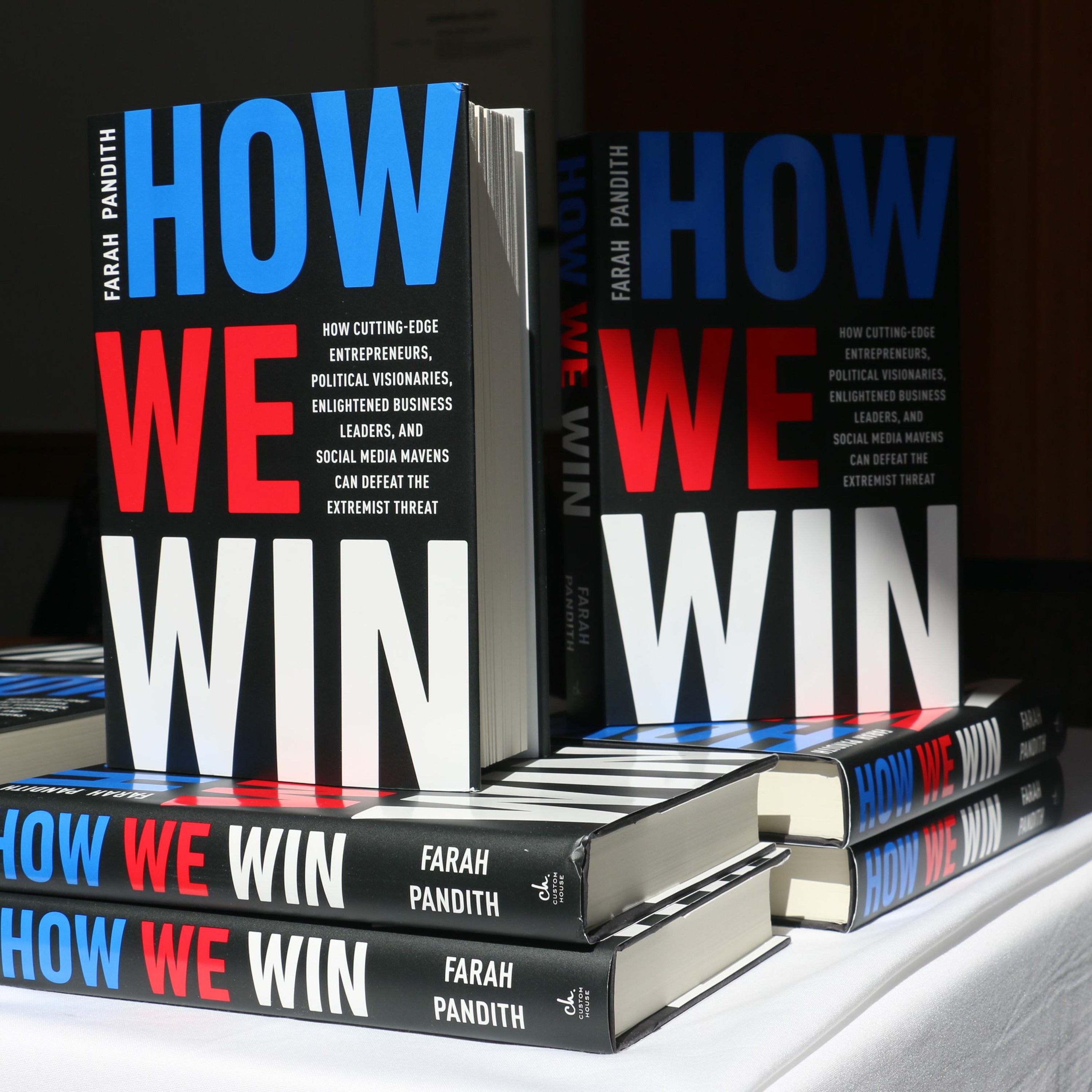 Berkman Klein Center for Internet & SocietyBKC Meet the Author Series: Urs Gasser in conversation with Farah PandithIn her new book, How We Win, Farah Pandith, a world-leading expert and pioneer in countering violent extremism, lays out a comprehensive strategy for how we can defeat the growing extremist threat, once and for all. From technology companies and entrepreneurs to businesses in the private sector, she says, this is an all-encompassing global issue that we must address together.
For more info about this event visit: https://cyber.harvard.edu/events/2019-03-25/bkc-meet-author-series-urs-gasser-conversation-farah-pandith2019-04-041h 03
Berkman Klein Center for Internet & SocietyBKC Meet the Author Series: Urs Gasser in conversation with Farah PandithIn her new book, How We Win, Farah Pandith, a world-leading expert and pioneer in countering violent extremism, lays out a comprehensive strategy for how we can defeat the growing extremist threat, once and for all. From technology companies and entrepreneurs to businesses in the private sector, she says, this is an all-encompassing global issue that we must address together.
For more info about this event visit: https://cyber.harvard.edu/events/2019-03-25/bkc-meet-author-series-urs-gasser-conversation-farah-pandith2019-04-041h 03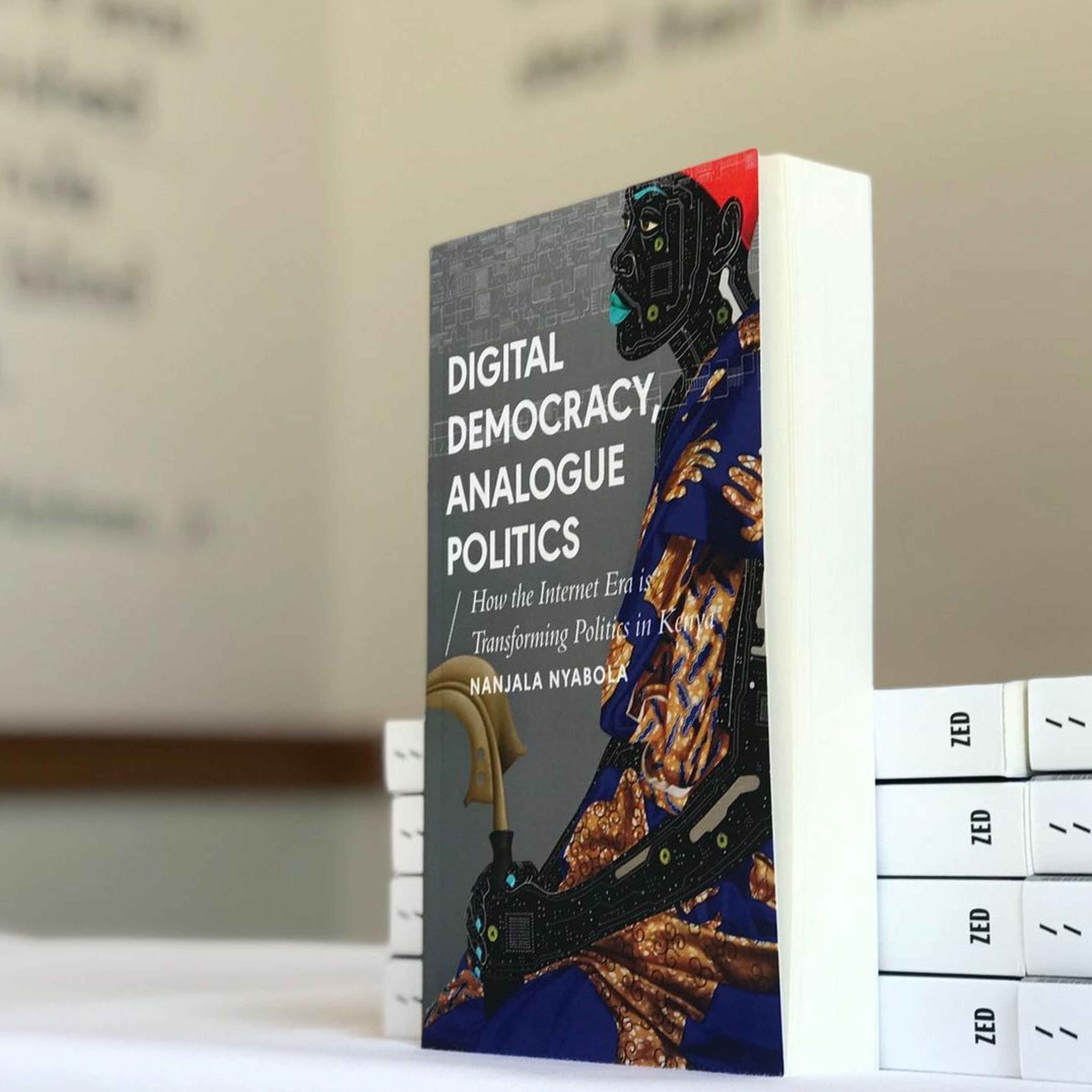 Berkman Klein Center for Internet & SocietyDigital Democracy, Analogue Politics - How the Internet Era is Transforming KenyaAuthor Nanjala Nyabola speaks with BKC Fellow james Wahutu about Nanjala's book, Digital Democracy, Analogue Politics: How the Internet Era is Transforming Kenya. The book explores of efforts to contain online activism, new methods of feminist mobilization, and how “fake news,” Cambridge Analytica, and allegations of hacking contributed to tensions around the 2017 elections.
For more about this event visit:https://cyber.harvard.edu/events/2019-03-12/digital-democracy-analogue-politics2019-03-2057 min
Berkman Klein Center for Internet & SocietyDigital Democracy, Analogue Politics - How the Internet Era is Transforming KenyaAuthor Nanjala Nyabola speaks with BKC Fellow james Wahutu about Nanjala's book, Digital Democracy, Analogue Politics: How the Internet Era is Transforming Kenya. The book explores of efforts to contain online activism, new methods of feminist mobilization, and how “fake news,” Cambridge Analytica, and allegations of hacking contributed to tensions around the 2017 elections.
For more about this event visit:https://cyber.harvard.edu/events/2019-03-12/digital-democracy-analogue-politics2019-03-2057 min Berkman Klein Center for Internet & SocietyWaking Up to the Internet Platform Disaster - Featuring Roger Mcnamee and Lawrence LessigRoger McNamee is the author of Zucked: Waking Up to the Facebook Catastrophe. He is joined by Lawrence Lessig, the Roy L. Furman Professor of Law and Leadership at Harvard Law School.
Facebook, Google and other internet platforms employ a business model – surveillance capitalism – that is undermining public health, democracy, privacy, and innovation in unprecedented ways. They use persuasive technology to manipulate attention for profit and they use surveillance to build data sets with the goal of influencing user behavior.
The negative externalities of internet platforms are analogous to those of medicine in the early 20th century and chemicals in the...2019-03-1256 min
Berkman Klein Center for Internet & SocietyWaking Up to the Internet Platform Disaster - Featuring Roger Mcnamee and Lawrence LessigRoger McNamee is the author of Zucked: Waking Up to the Facebook Catastrophe. He is joined by Lawrence Lessig, the Roy L. Furman Professor of Law and Leadership at Harvard Law School.
Facebook, Google and other internet platforms employ a business model – surveillance capitalism – that is undermining public health, democracy, privacy, and innovation in unprecedented ways. They use persuasive technology to manipulate attention for profit and they use surveillance to build data sets with the goal of influencing user behavior.
The negative externalities of internet platforms are analogous to those of medicine in the early 20th century and chemicals in the...2019-03-1256 min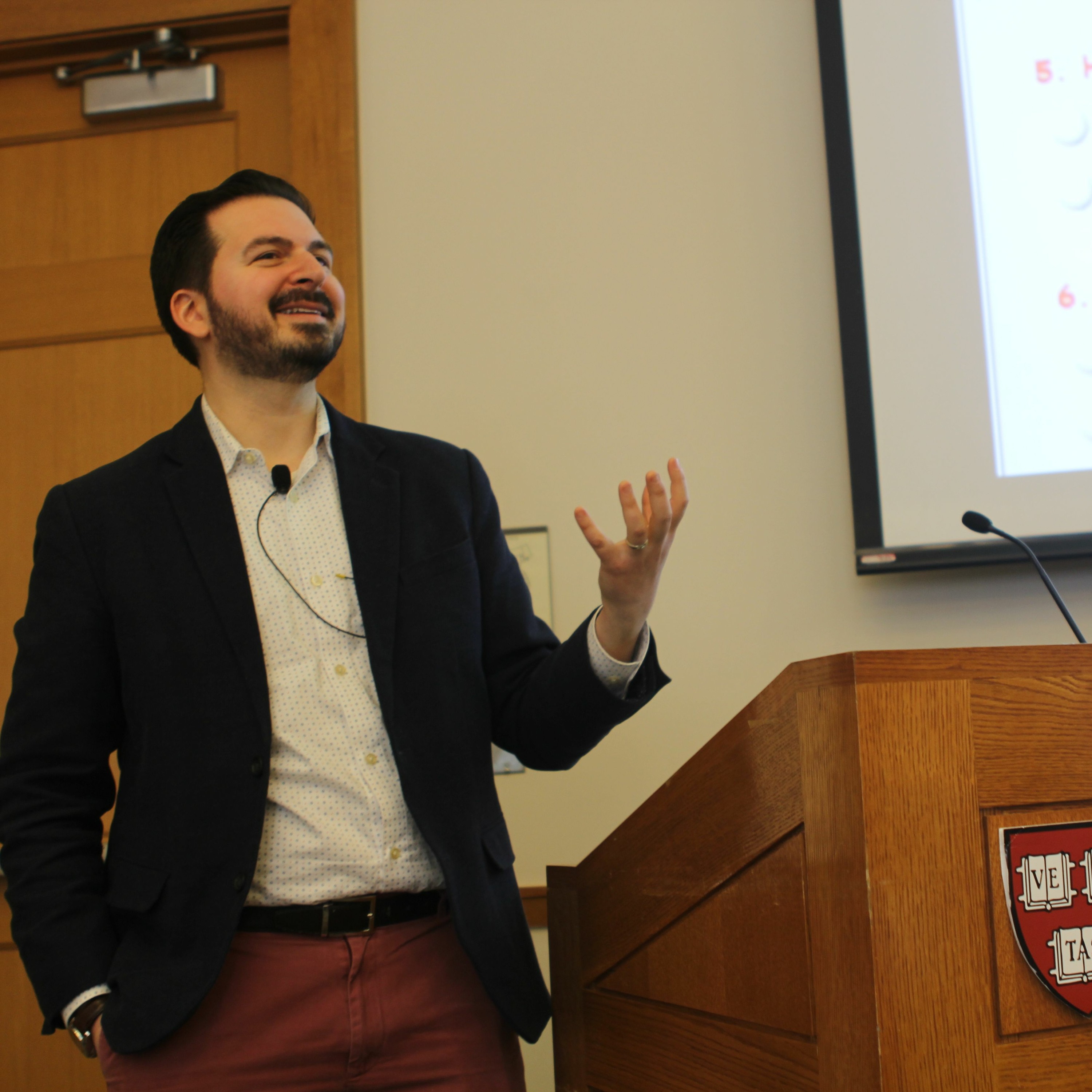 Berkman Klein Center for Internet & SocietyPrivacy’s Blueprint - The Battle to Control the Design of New TechnologiesIn this talk, Professor Woodrow Hartzog argues that the law should require software and hardware makers to respect privacy in the design of their products.
Against the often self-serving optimism of Silicon Valley and the inertia of tech evangelism, privacy gains will come from better rules for products, not users. The current model of regulating use fosters exploitation.
Hartzog speaks on the need to develop the theoretical underpinnings of a new kind of privacy law that is responsive to the way people actually perceive and use digital technologies. The law can demand encryption. It can prohibit malicious interfaces that deceive...2019-03-121h 05
Berkman Klein Center for Internet & SocietyPrivacy’s Blueprint - The Battle to Control the Design of New TechnologiesIn this talk, Professor Woodrow Hartzog argues that the law should require software and hardware makers to respect privacy in the design of their products.
Against the often self-serving optimism of Silicon Valley and the inertia of tech evangelism, privacy gains will come from better rules for products, not users. The current model of regulating use fosters exploitation.
Hartzog speaks on the need to develop the theoretical underpinnings of a new kind of privacy law that is responsive to the way people actually perceive and use digital technologies. The law can demand encryption. It can prohibit malicious interfaces that deceive...2019-03-121h 05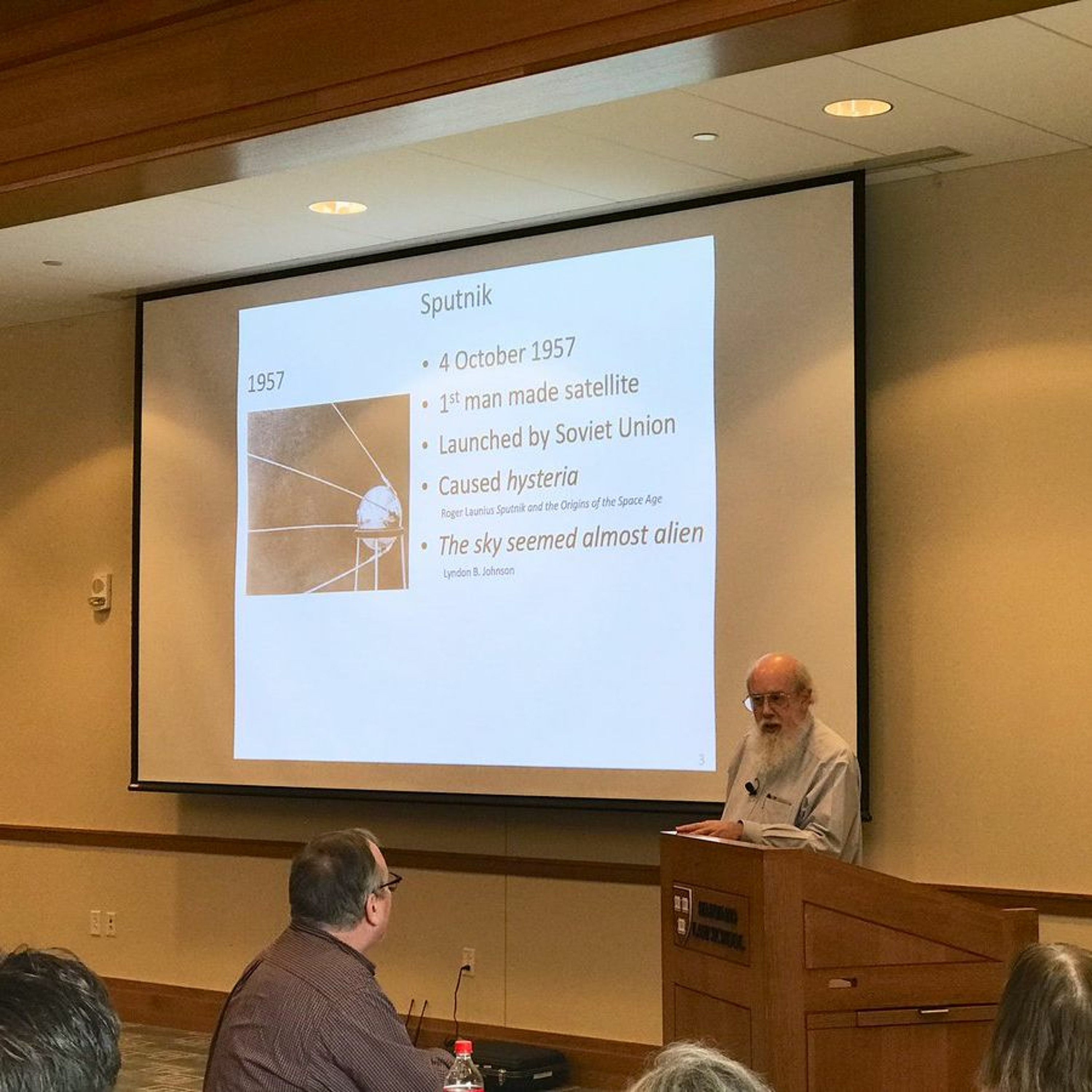 Berkman Klein Center for Internet & SocietyA History of the InternetWhy has the Internet had such a powerful impact? What are the challenges that may cause the Internet of tomorrow to be significantly less revolutionary than the Internet to date?
This talk provides a history of the reasons for and the technology of the Internet.
Scott Bradner has worked in the areas of computer programming, system management, networking, IT security, and identity management at Harvard for 50 years. He was involved in the design, operation and use of data networks at Harvard University since the early days of the ARPANET. He was involved in the design of the original Harvard data net...2019-03-1258 min
Berkman Klein Center for Internet & SocietyA History of the InternetWhy has the Internet had such a powerful impact? What are the challenges that may cause the Internet of tomorrow to be significantly less revolutionary than the Internet to date?
This talk provides a history of the reasons for and the technology of the Internet.
Scott Bradner has worked in the areas of computer programming, system management, networking, IT security, and identity management at Harvard for 50 years. He was involved in the design, operation and use of data networks at Harvard University since the early days of the ARPANET. He was involved in the design of the original Harvard data net...2019-03-1258 min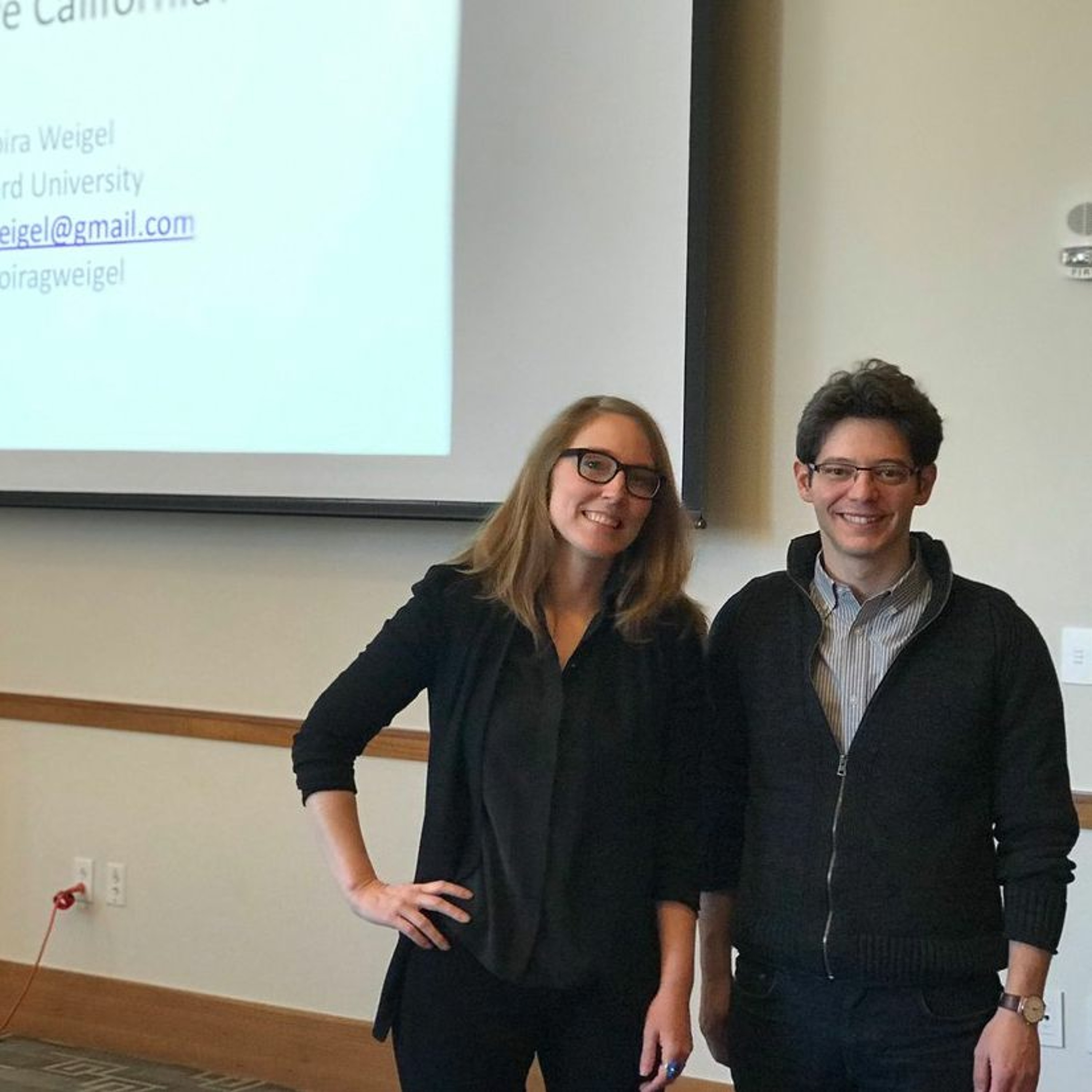 Berkman Klein Center for Internet & SocietyGoodbye California?: The New Tech Worker MovementA recent wave of worker actions at major tech firms have challenged company contracts with the Pentagon, ICE, and other government agencies; organized for safe and equitable workplaces, free from sexual harassment and discrimination; and demanded better wages, benefits, and working conditions for both white and blue collar contractors.
Scholar and a founding editor of Logic magazine Moira Weigel places these actions in context, drawing on several years of research and writing on the movement. She proposes that these actions point to the need for new frameworks for interpreting the culture or world view of the tech industry—frameworks beyond "Th...2019-03-051h 04
Berkman Klein Center for Internet & SocietyGoodbye California?: The New Tech Worker MovementA recent wave of worker actions at major tech firms have challenged company contracts with the Pentagon, ICE, and other government agencies; organized for safe and equitable workplaces, free from sexual harassment and discrimination; and demanded better wages, benefits, and working conditions for both white and blue collar contractors.
Scholar and a founding editor of Logic magazine Moira Weigel places these actions in context, drawing on several years of research and writing on the movement. She proposes that these actions point to the need for new frameworks for interpreting the culture or world view of the tech industry—frameworks beyond "Th...2019-03-051h 04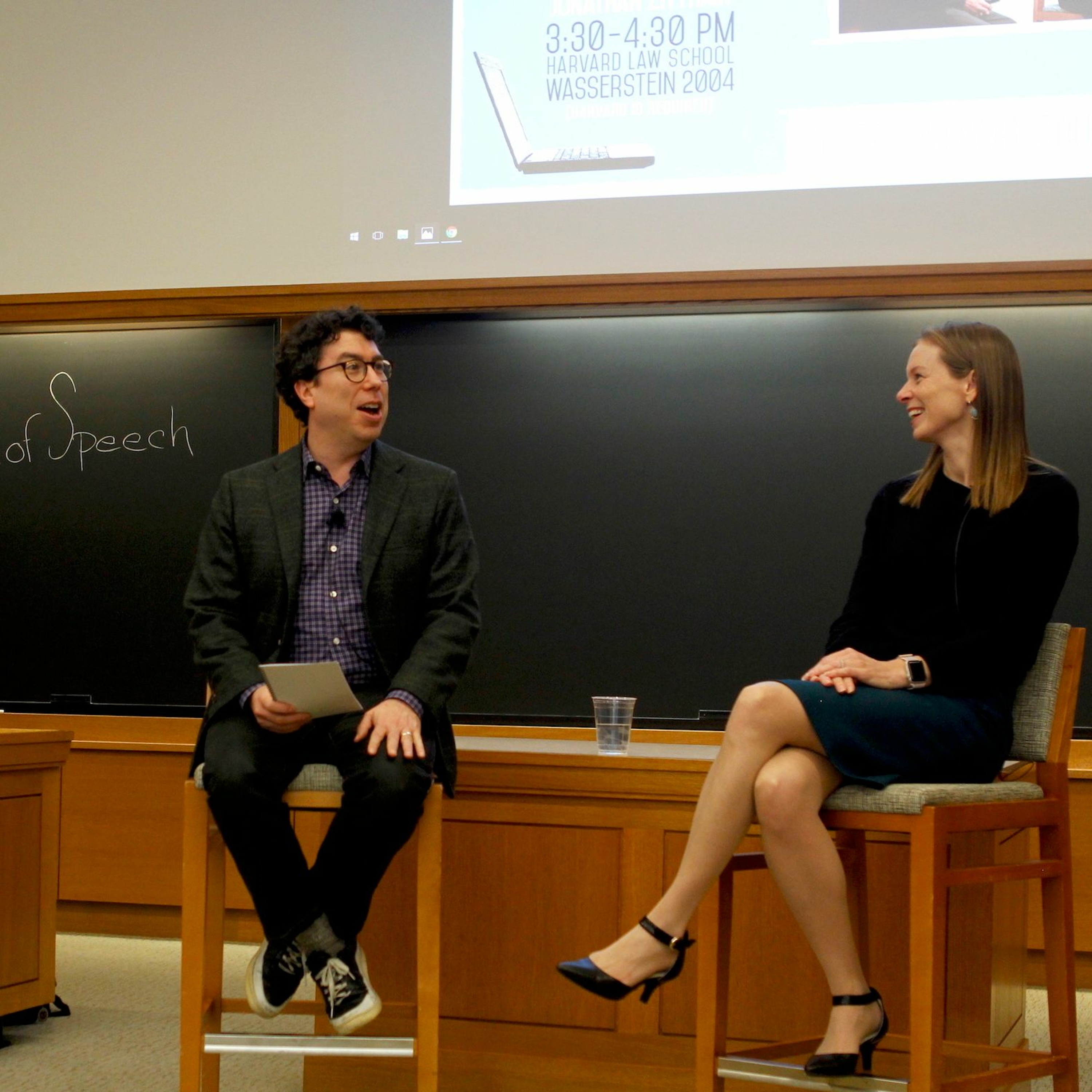 Berkman Klein Center for Internet & SocietyThe State of Online Speech and GovernanceProfessor Jonathan Zittrain discusses the social media giant’s ‘long year’ with Facebook's head of global policy management Monika Bickert. Citing his sense of the “pessimism and near-despair that permeate our feelings about social media,” Zittrain opens the conversation by recalling a September 2017 discussion in which he and Bickert looked at the rise of white nationalism and the first indications of how social media manipulation had been at play in the 2016 elections. Since then, of course, more information about fake accounts and online attacks has come to light.
Learn more about this event here:
https://cyber.harvard.edu/events/2018-12-03/state...2019-03-051h 04
Berkman Klein Center for Internet & SocietyThe State of Online Speech and GovernanceProfessor Jonathan Zittrain discusses the social media giant’s ‘long year’ with Facebook's head of global policy management Monika Bickert. Citing his sense of the “pessimism and near-despair that permeate our feelings about social media,” Zittrain opens the conversation by recalling a September 2017 discussion in which he and Bickert looked at the rise of white nationalism and the first indications of how social media manipulation had been at play in the 2016 elections. Since then, of course, more information about fake accounts and online attacks has come to light.
Learn more about this event here:
https://cyber.harvard.edu/events/2018-12-03/state...2019-03-051h 04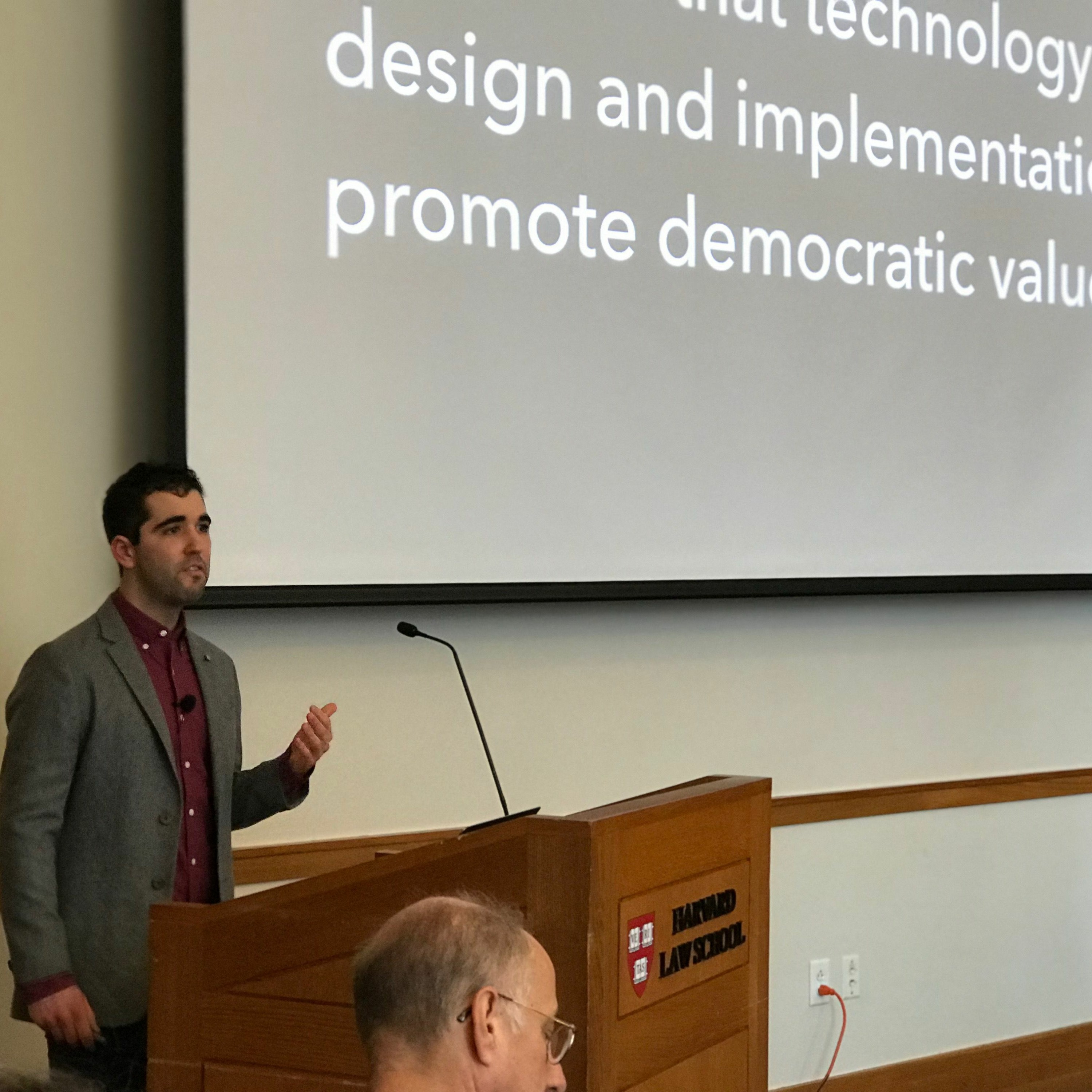 Berkman Klein Center for Internet & SocietyThe Smart Enough City: Putting Technology In Its Place To Reclaim Our Urban FutureSmart cities, where technology is used to solve every problem, are hailed as futuristic urban utopias. We are promised that apps, algorithms, and artificial intelligence will relieve congestion, restore democracy, prevent crime, and improve public services.
In "The Smart Enough City," Ben Green warns against seeing the city only through the lens of technology; taking an exclusively technical view of urban life will lead to cities that appear smart but under the surface are rife with injustice and inequality. He proposes instead that cities strive to be “smart enough”: to embrace technology as a powerful tool when used in conjunction with...2019-02-261h 06
Berkman Klein Center for Internet & SocietyThe Smart Enough City: Putting Technology In Its Place To Reclaim Our Urban FutureSmart cities, where technology is used to solve every problem, are hailed as futuristic urban utopias. We are promised that apps, algorithms, and artificial intelligence will relieve congestion, restore democracy, prevent crime, and improve public services.
In "The Smart Enough City," Ben Green warns against seeing the city only through the lens of technology; taking an exclusively technical view of urban life will lead to cities that appear smart but under the surface are rife with injustice and inequality. He proposes instead that cities strive to be “smart enough”: to embrace technology as a powerful tool when used in conjunction with...2019-02-261h 06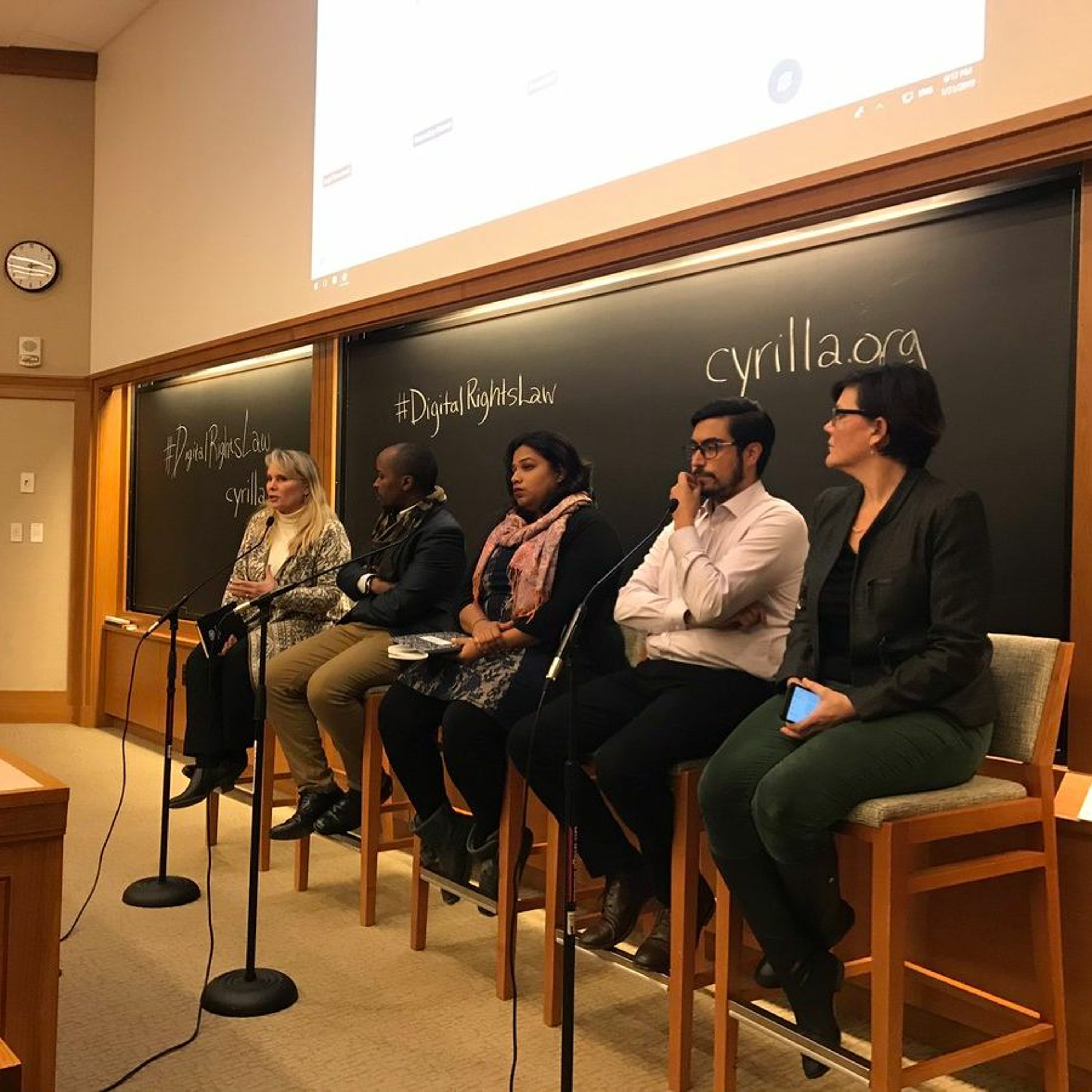 Berkman Klein Center for Internet & SocietyCyberlaw and Human Rights: Intersections In The Global SouthAfter two decades of little direct legislation of the internet, national laws and related court decisions meant to govern cyberspace are rapidly proliferating worldwide. They are becoming building blocks in new legal frameworks that will shape the evolution of Internet governance and policymaking for years to come.
In the Global South and particularly under repressive regimes, these frameworks can be imposed with little regard for human rights obligations and without a full understanding of the technologies and processes they regulate or their implications for the preservation of the core values of the internet: interoperability, universality, and free expression and the...2019-02-261h 30
Berkman Klein Center for Internet & SocietyCyberlaw and Human Rights: Intersections In The Global SouthAfter two decades of little direct legislation of the internet, national laws and related court decisions meant to govern cyberspace are rapidly proliferating worldwide. They are becoming building blocks in new legal frameworks that will shape the evolution of Internet governance and policymaking for years to come.
In the Global South and particularly under repressive regimes, these frameworks can be imposed with little regard for human rights obligations and without a full understanding of the technologies and processes they regulate or their implications for the preservation of the core values of the internet: interoperability, universality, and free expression and the...2019-02-261h 30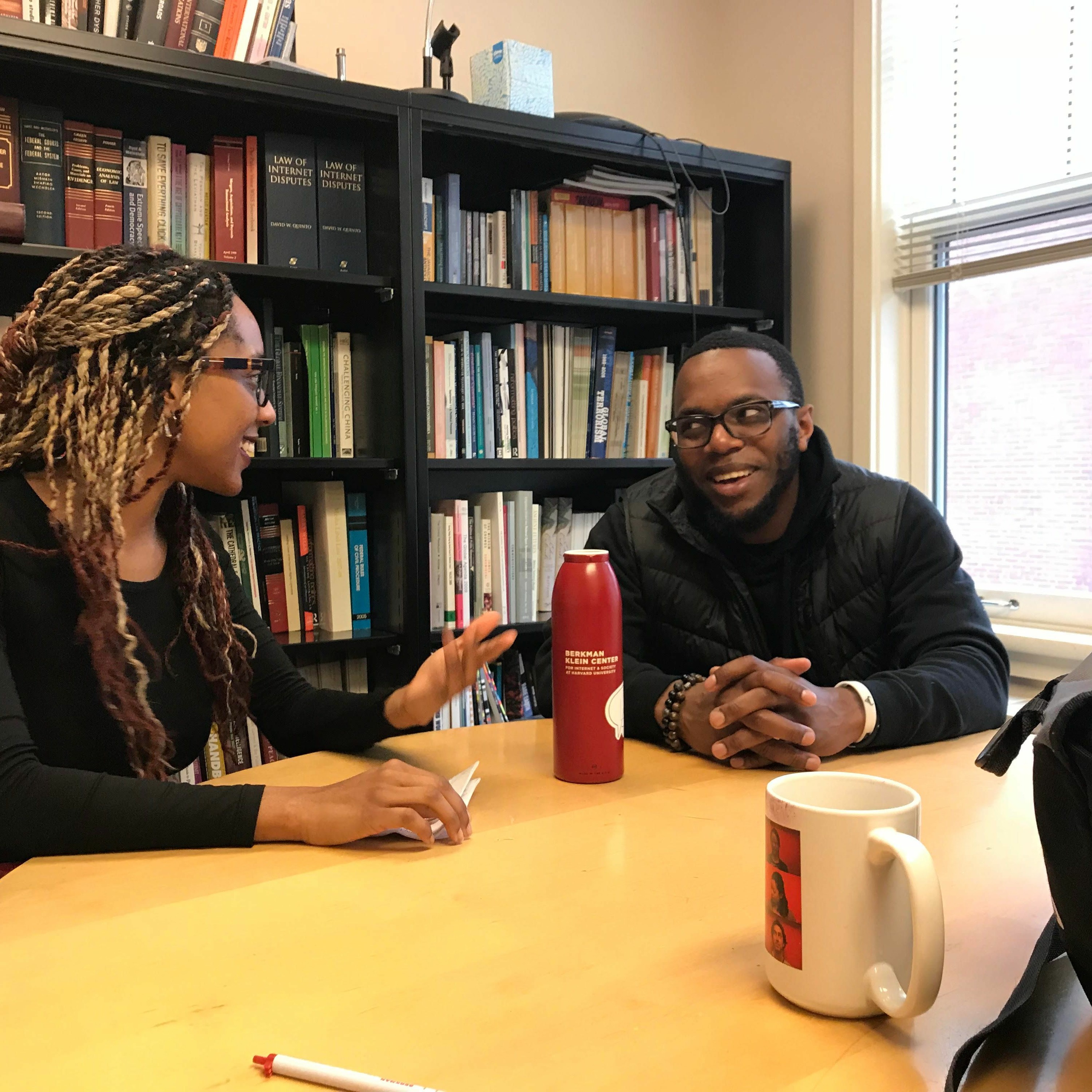 The PlatformA spotlight on Nieman-Berkman Klein Fellow Jonathan JacksonJonathan Jackson is a co-founder of Blavity Inc., a technology and media company for black millennials. Blavity’s mission is to "economically and creatively support Black millennials across the African diaspora, so they can pursue the work they love, and change the world in the process." Blavity has grown immensely since their founding in 2014 — among other things, spawning five unique sites, reaching over 7 million visitors a month, and organizing a number of technology, activism, and entrepreneurship conferences.
Jonathan Jackson is also a Joint Fellow with the Nieman Foundation and the Berkman Klein Center for Internet & Society for 2018-2019. During his time...2019-01-1123 min
The PlatformA spotlight on Nieman-Berkman Klein Fellow Jonathan JacksonJonathan Jackson is a co-founder of Blavity Inc., a technology and media company for black millennials. Blavity’s mission is to "economically and creatively support Black millennials across the African diaspora, so they can pursue the work they love, and change the world in the process." Blavity has grown immensely since their founding in 2014 — among other things, spawning five unique sites, reaching over 7 million visitors a month, and organizing a number of technology, activism, and entrepreneurship conferences.
Jonathan Jackson is also a Joint Fellow with the Nieman Foundation and the Berkman Klein Center for Internet & Society for 2018-2019. During his time...2019-01-1123 min Radio BerkmanA spotlight on Nieman-Berkman Klein Fellow Jonathan JacksonJonathan Jackson is a co-founder of Blavity Inc., a technology and media company for black millennials. Blavity’s mission is to "economically and creatively support Black millennials across the African diaspora, so they can pursue the work they love, and change the world in the process." Blavity has grown immensely since their founding in 2014 — among other things, spawning five unique sites, reaching over 7 million visitors a month, and organizing a number of technology, activism, and entrepreneurship conferences.
Jonathan Jackson is also a Joint Fellow with the Nieman Foundation and the Berkman Klein Center for Internet & Society for 2018-2019. During his time...2019-01-1123 min
Radio BerkmanA spotlight on Nieman-Berkman Klein Fellow Jonathan JacksonJonathan Jackson is a co-founder of Blavity Inc., a technology and media company for black millennials. Blavity’s mission is to "economically and creatively support Black millennials across the African diaspora, so they can pursue the work they love, and change the world in the process." Blavity has grown immensely since their founding in 2014 — among other things, spawning five unique sites, reaching over 7 million visitors a month, and organizing a number of technology, activism, and entrepreneurship conferences.
Jonathan Jackson is also a Joint Fellow with the Nieman Foundation and the Berkman Klein Center for Internet & Society for 2018-2019. During his time...2019-01-1123 min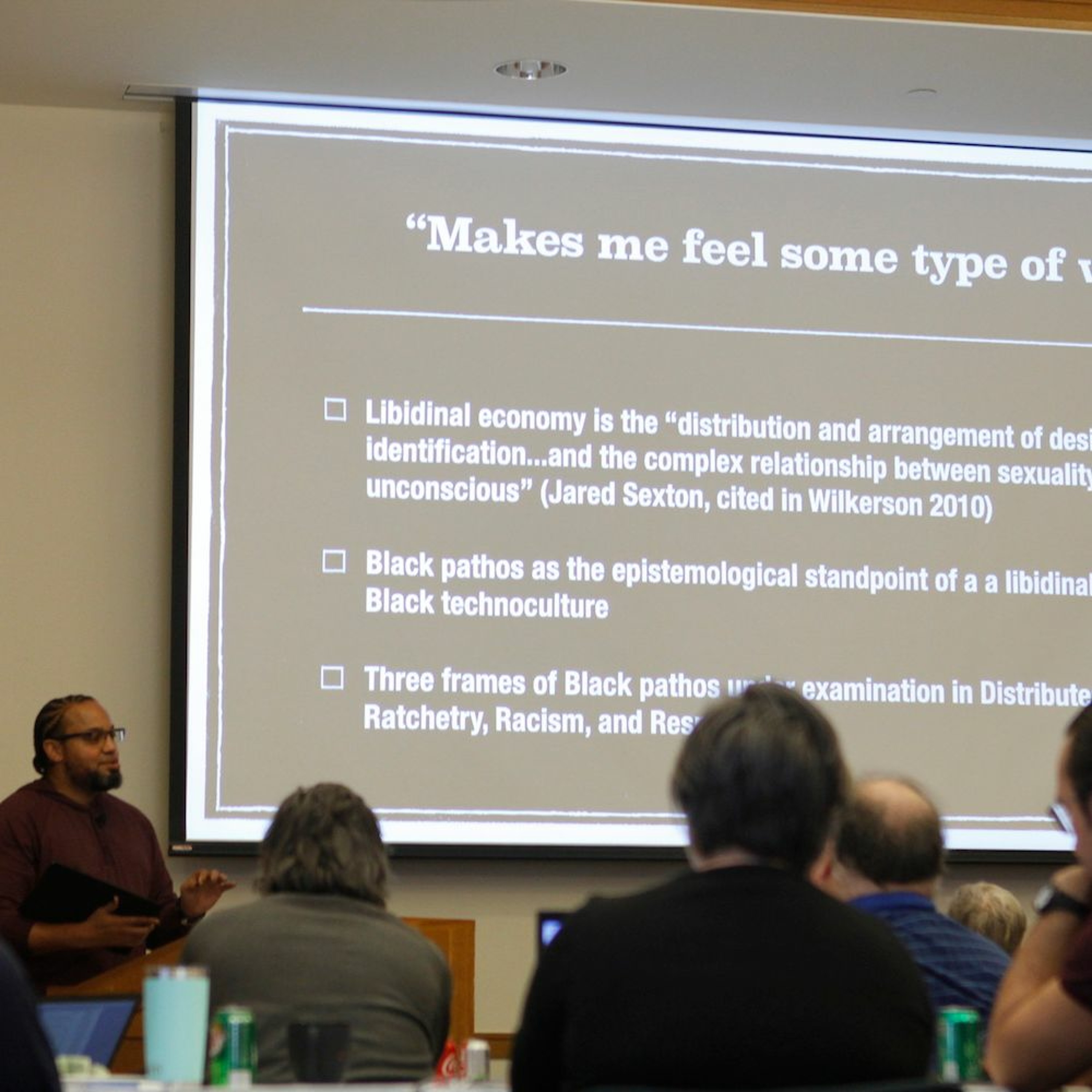 Berkman Klein Center for Internet & Society“My Constellation is Space”: Towards a Theory of Black CybercultureTechnology is the American mythos (Dinerstein 2006); a belief system powering the relations between—and politics of—culture and technology. In the Western context, technoculture incorporates Whiteness, White racial ideology, and modernist technological beliefs. This presentation is a critical intervention for internet research and science and technology studies (STS), reorienting “race-as-technology” (Chun 2009) to incorporate Blackness as technological subjects rather than as “things."
Utilizing critical technocultural discourse analysis (Brock 2018), Afro-optimism, and libidinal economic theory, this presentation employs Black Twitter as an exemplar of Black cyberculture: digital practice and artifacts informed by a Black aesthetic.
Learn more about this event here:
https://cyber.harvard.ed...2018-12-101h 00
Berkman Klein Center for Internet & Society“My Constellation is Space”: Towards a Theory of Black CybercultureTechnology is the American mythos (Dinerstein 2006); a belief system powering the relations between—and politics of—culture and technology. In the Western context, technoculture incorporates Whiteness, White racial ideology, and modernist technological beliefs. This presentation is a critical intervention for internet research and science and technology studies (STS), reorienting “race-as-technology” (Chun 2009) to incorporate Blackness as technological subjects rather than as “things."
Utilizing critical technocultural discourse analysis (Brock 2018), Afro-optimism, and libidinal economic theory, this presentation employs Black Twitter as an exemplar of Black cyberculture: digital practice and artifacts informed by a Black aesthetic.
Learn more about this event here:
https://cyber.harvard.ed...2018-12-101h 00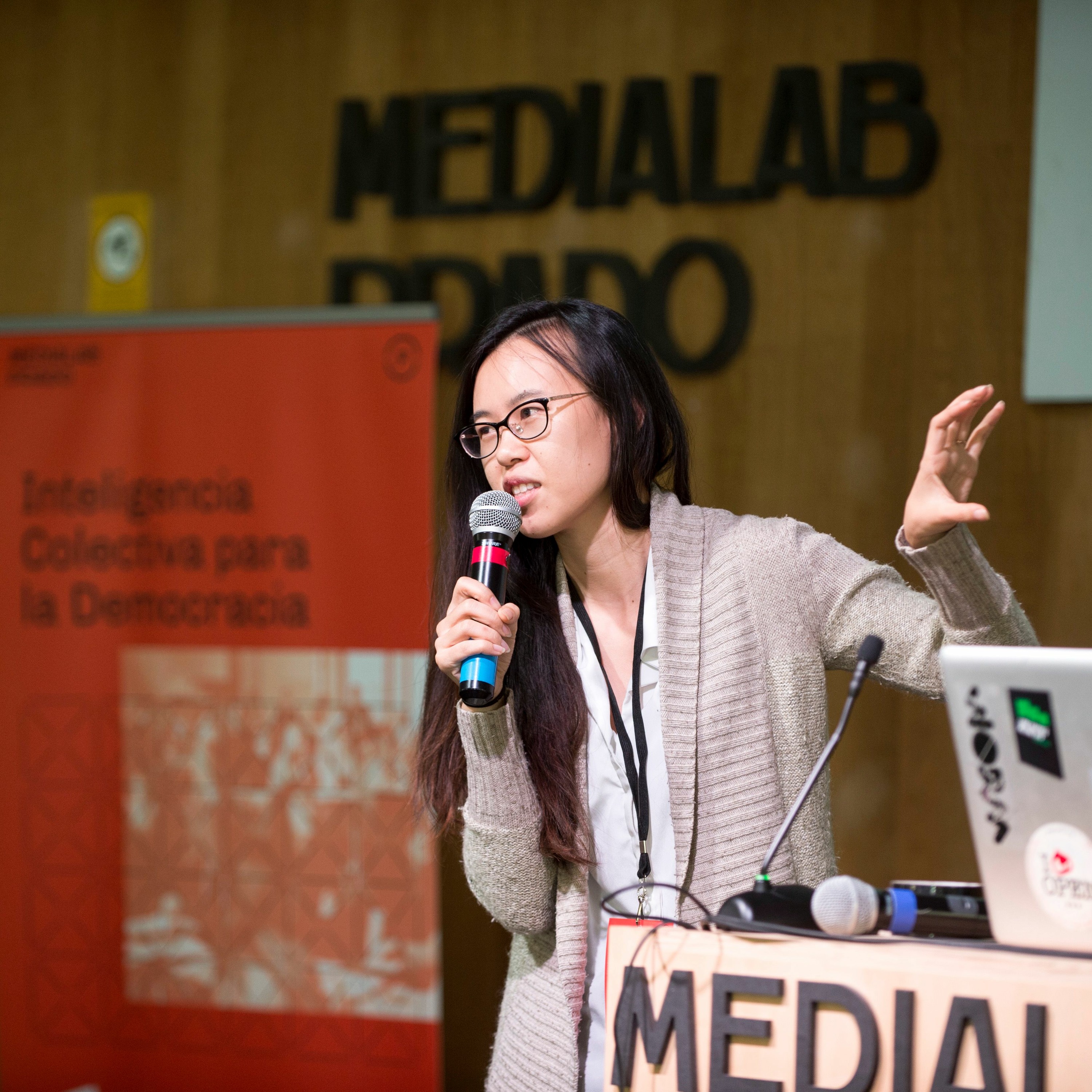 Radio BerkmanA spotlight on 2018 Berkman Klein Fellow Amy ZhangBerkman Klein Center interns sat down with 2018 Berkman Klein Center Fellow Amy Zhang, to discuss her work on combating online harassment and misinformation as well as her research as a Fellow.2018-12-0718 min
Radio BerkmanA spotlight on 2018 Berkman Klein Fellow Amy ZhangBerkman Klein Center interns sat down with 2018 Berkman Klein Center Fellow Amy Zhang, to discuss her work on combating online harassment and misinformation as well as her research as a Fellow.2018-12-0718 min The PlatformA spotlight on 2018 Berkman Klein Fellow Amy ZhangBerkman Klein Center interns sat down with 2018 Berkman Klein Center Fellow Amy Zhang, to discuss her work on combating online harassment and misinformation as well as her research as a Fellow.2018-12-0718 min
The PlatformA spotlight on 2018 Berkman Klein Fellow Amy ZhangBerkman Klein Center interns sat down with 2018 Berkman Klein Center Fellow Amy Zhang, to discuss her work on combating online harassment and misinformation as well as her research as a Fellow.2018-12-0718 min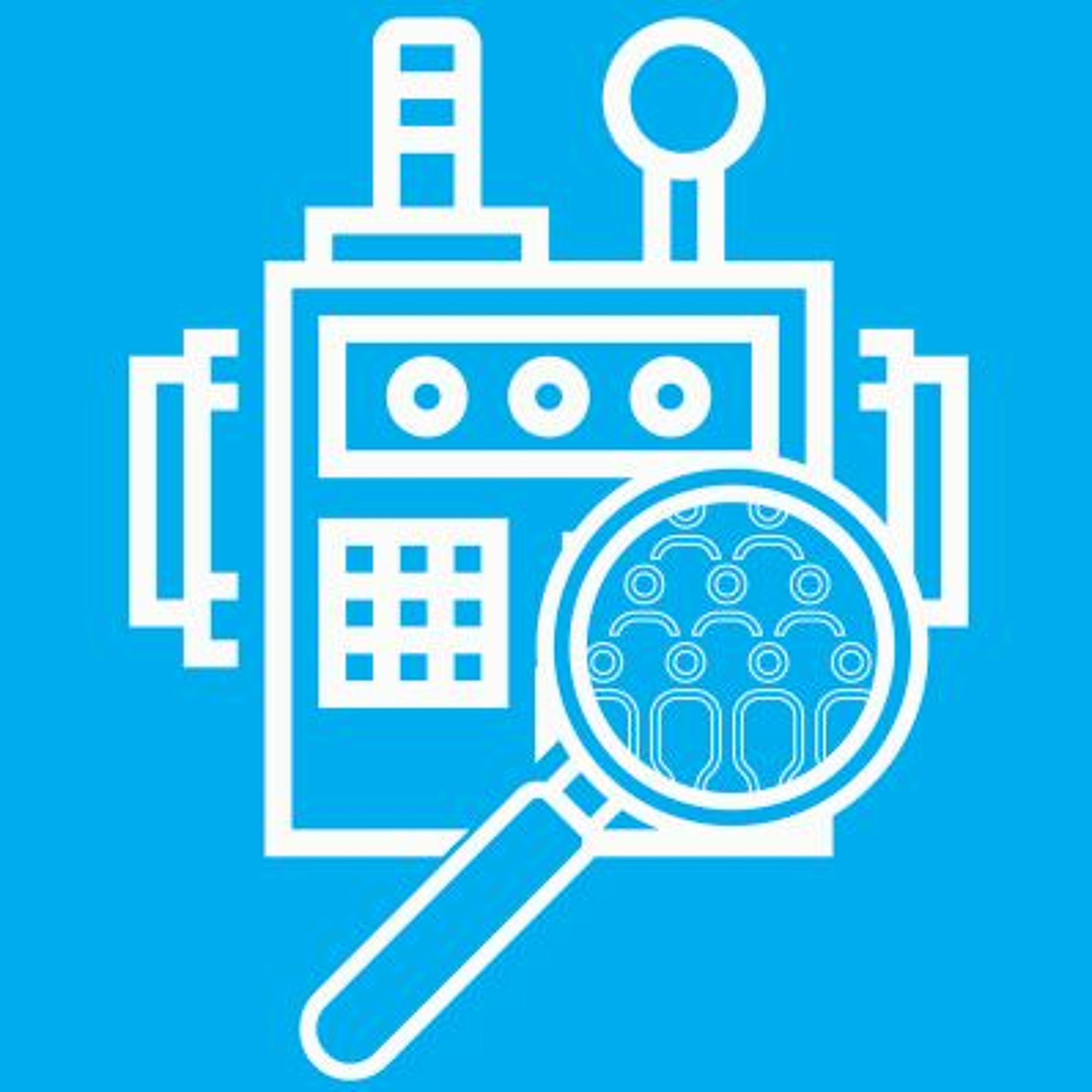 Berkman Klein Center for Internet & SocietyPromoting Fairness, Equity, and Human Rights in TechPerspectives from Europe and the US on a Law and Policy Agenda
Digital technologies affect the lives of billions of people around the world daily. The decisions of private platforms and tech developers — and the public institutions that regulate their conduct — can shape public discourse, with profound impacts on democracy, liberty, autonomy, and governance.
This panel provides a broad overview of the landscape for regulating cutting-edge digital technologies in Europe and the US. The discussion focuses on mechanisms for ensuring tech developers and platforms build and deploy their products and services in a manner that is consistent with fundamental human righ...2018-12-0454 min
Berkman Klein Center for Internet & SocietyPromoting Fairness, Equity, and Human Rights in TechPerspectives from Europe and the US on a Law and Policy Agenda
Digital technologies affect the lives of billions of people around the world daily. The decisions of private platforms and tech developers — and the public institutions that regulate their conduct — can shape public discourse, with profound impacts on democracy, liberty, autonomy, and governance.
This panel provides a broad overview of the landscape for regulating cutting-edge digital technologies in Europe and the US. The discussion focuses on mechanisms for ensuring tech developers and platforms build and deploy their products and services in a manner that is consistent with fundamental human righ...2018-12-0454 min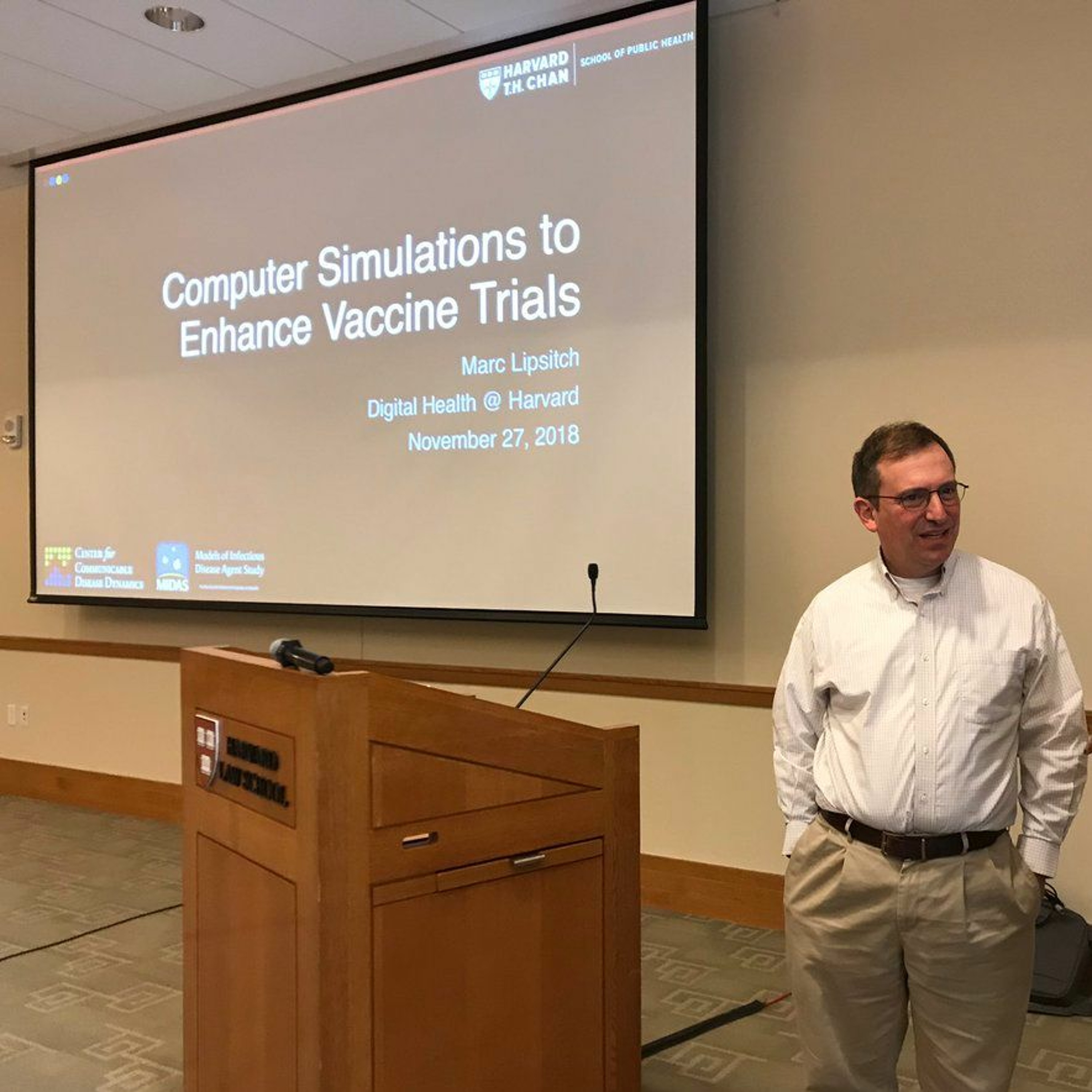 Berkman Klein Center for Internet & SocietyComputer Simulations to Enhance Vaccine TrialsInfectious disease emergencies are opportunities to test the efficacy of newly developed interventions — for example, drugs, vaccines, and treatment regimens. Yet they raise many intertwined challenges around politics, logistics, ethics, and study design.
In this talk — part of our Digital Health @ Harvard series — Professor Marc Lipsitch describes his work on computer simulation of vaccine trials during epidemics to assess options for trial design, as well as some of his recent work on the ethics of trials in emergencies, and stimulates discussion on the intersection of these two topics to help disentangle ethical from political and logistical concerns, as well as to red...2018-11-301h 01
Berkman Klein Center for Internet & SocietyComputer Simulations to Enhance Vaccine TrialsInfectious disease emergencies are opportunities to test the efficacy of newly developed interventions — for example, drugs, vaccines, and treatment regimens. Yet they raise many intertwined challenges around politics, logistics, ethics, and study design.
In this talk — part of our Digital Health @ Harvard series — Professor Marc Lipsitch describes his work on computer simulation of vaccine trials during epidemics to assess options for trial design, as well as some of his recent work on the ethics of trials in emergencies, and stimulates discussion on the intersection of these two topics to help disentangle ethical from political and logistical concerns, as well as to red...2018-11-301h 01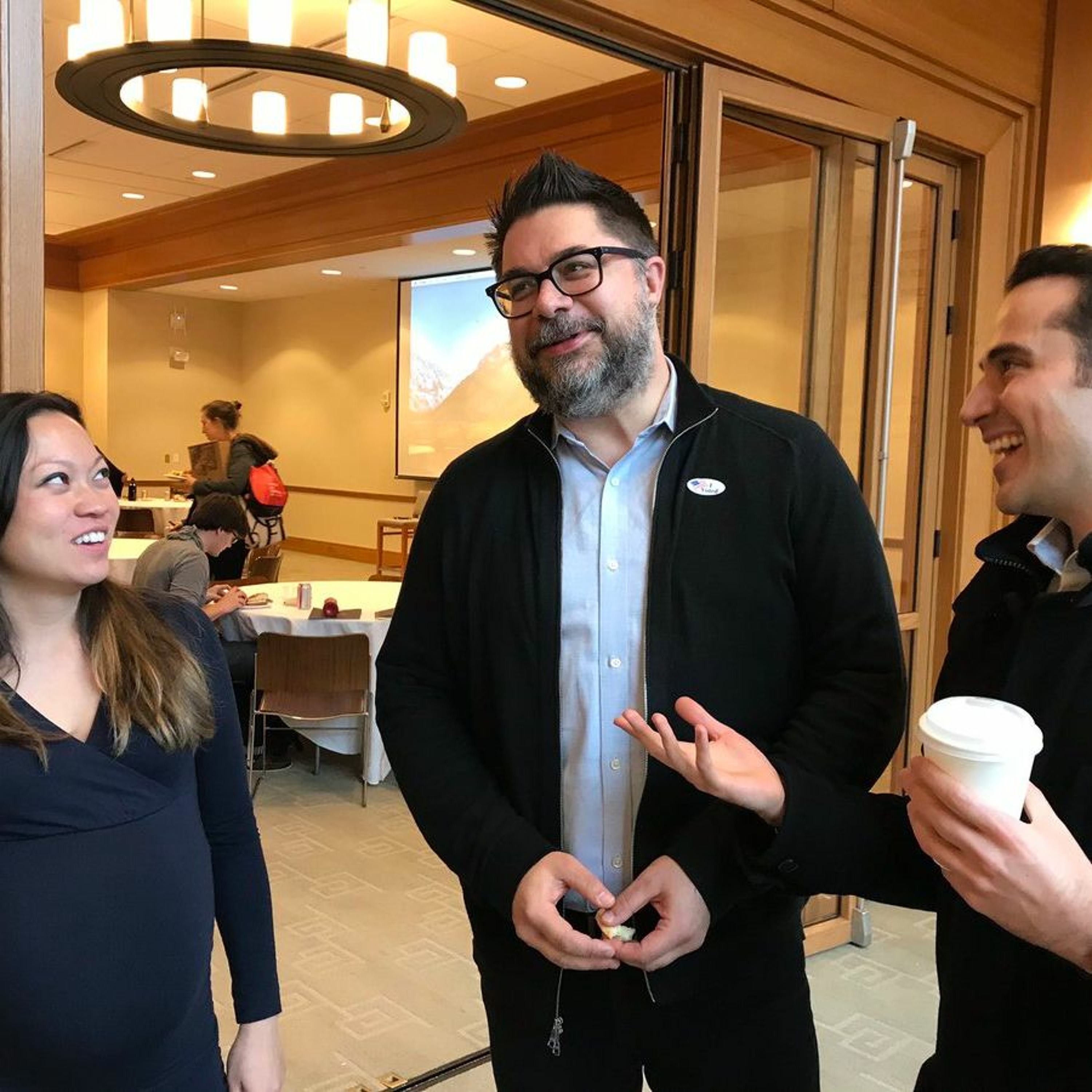 Berkman Klein Center for Internet & SocietyThe State of Government TechnologyAssessing Government Development, Deployment, & Use of Tech Tools
A close look at the inner workings of government, with a particular focus on the ways in which federal, state, and local government institutions leverage technology and technical resources to best serve citizens.
Alvand Salehi and Kathy Pham bring deep expertise in federal and state government deployment of technology and in establishing policies within government to foster and promote responsible tech development initiatives. They share stories from their time in government and offer thoughts on best practices for government institutions developing approaches to technology development and procurement that enhance the provision of g...2018-11-121h 08
Berkman Klein Center for Internet & SocietyThe State of Government TechnologyAssessing Government Development, Deployment, & Use of Tech Tools
A close look at the inner workings of government, with a particular focus on the ways in which federal, state, and local government institutions leverage technology and technical resources to best serve citizens.
Alvand Salehi and Kathy Pham bring deep expertise in federal and state government deployment of technology and in establishing policies within government to foster and promote responsible tech development initiatives. They share stories from their time in government and offer thoughts on best practices for government institutions developing approaches to technology development and procurement that enhance the provision of g...2018-11-121h 08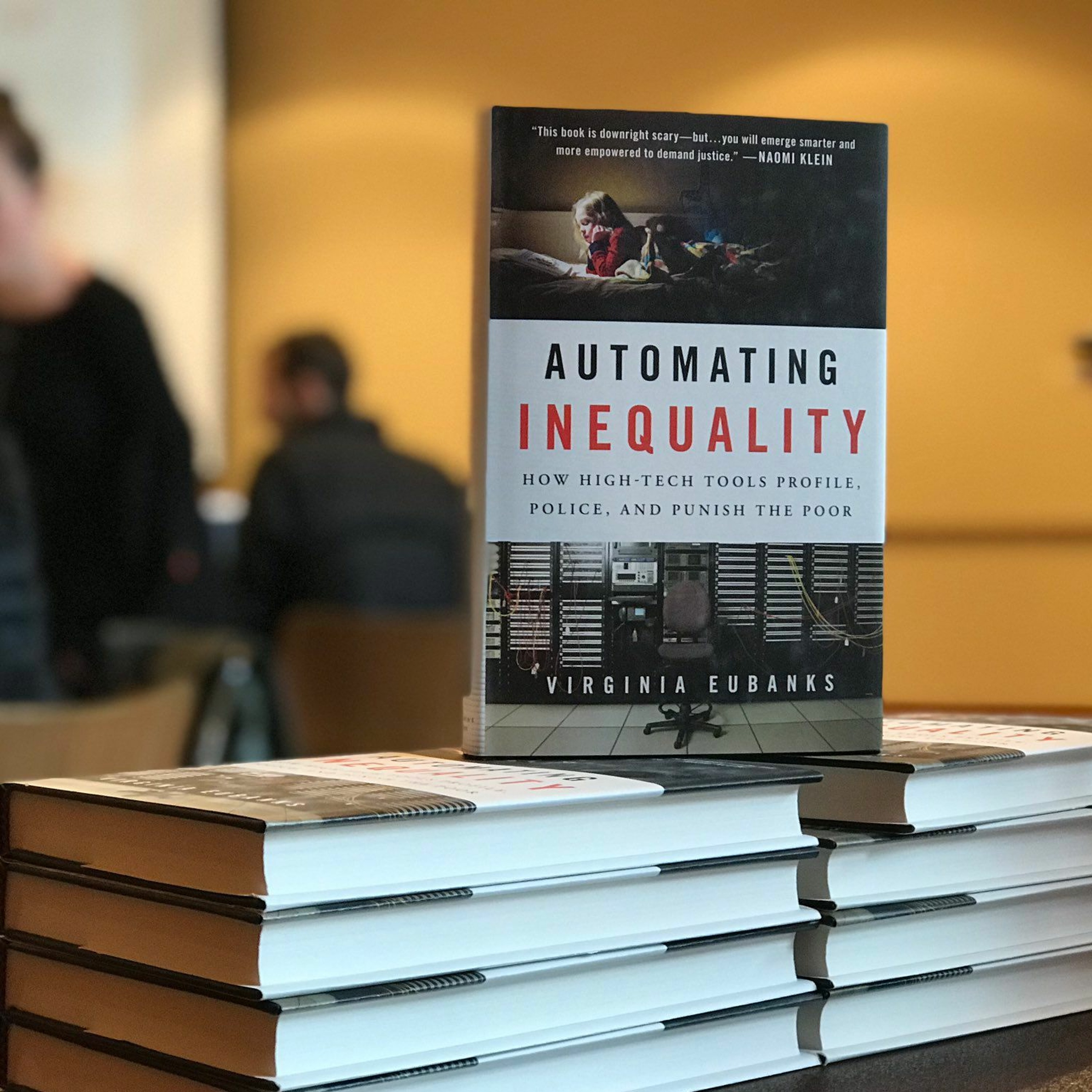 Berkman Klein Center for Internet & SocietyAutomating Inequality: How High-Tech Tools Profile, Police, and Punish the PoorVirginia Eubanks joins us for a rousing conversation about her timely and provocative book, Automating Inequality.
In Automating Inequality, Eubanks systematically investigates the impacts of data mining, policy algorithms, and predictive risk models on poor and working-class people in America. The book is full of heart-wrenching and eye-opening stories, from a woman in Indiana whose benefits are literally cut off as she lays dying to a family in Pennsylvania in daily fear of losing their daughter because they fit a certain statistical profile. "This book is downright scary,” says Naomi Klein, “but with its striking research and moving, indelible portraits of li...2018-10-251h 18
Berkman Klein Center for Internet & SocietyAutomating Inequality: How High-Tech Tools Profile, Police, and Punish the PoorVirginia Eubanks joins us for a rousing conversation about her timely and provocative book, Automating Inequality.
In Automating Inequality, Eubanks systematically investigates the impacts of data mining, policy algorithms, and predictive risk models on poor and working-class people in America. The book is full of heart-wrenching and eye-opening stories, from a woman in Indiana whose benefits are literally cut off as she lays dying to a family in Pennsylvania in daily fear of losing their daughter because they fit a certain statistical profile. "This book is downright scary,” says Naomi Klein, “but with its striking research and moving, indelible portraits of li...2018-10-251h 18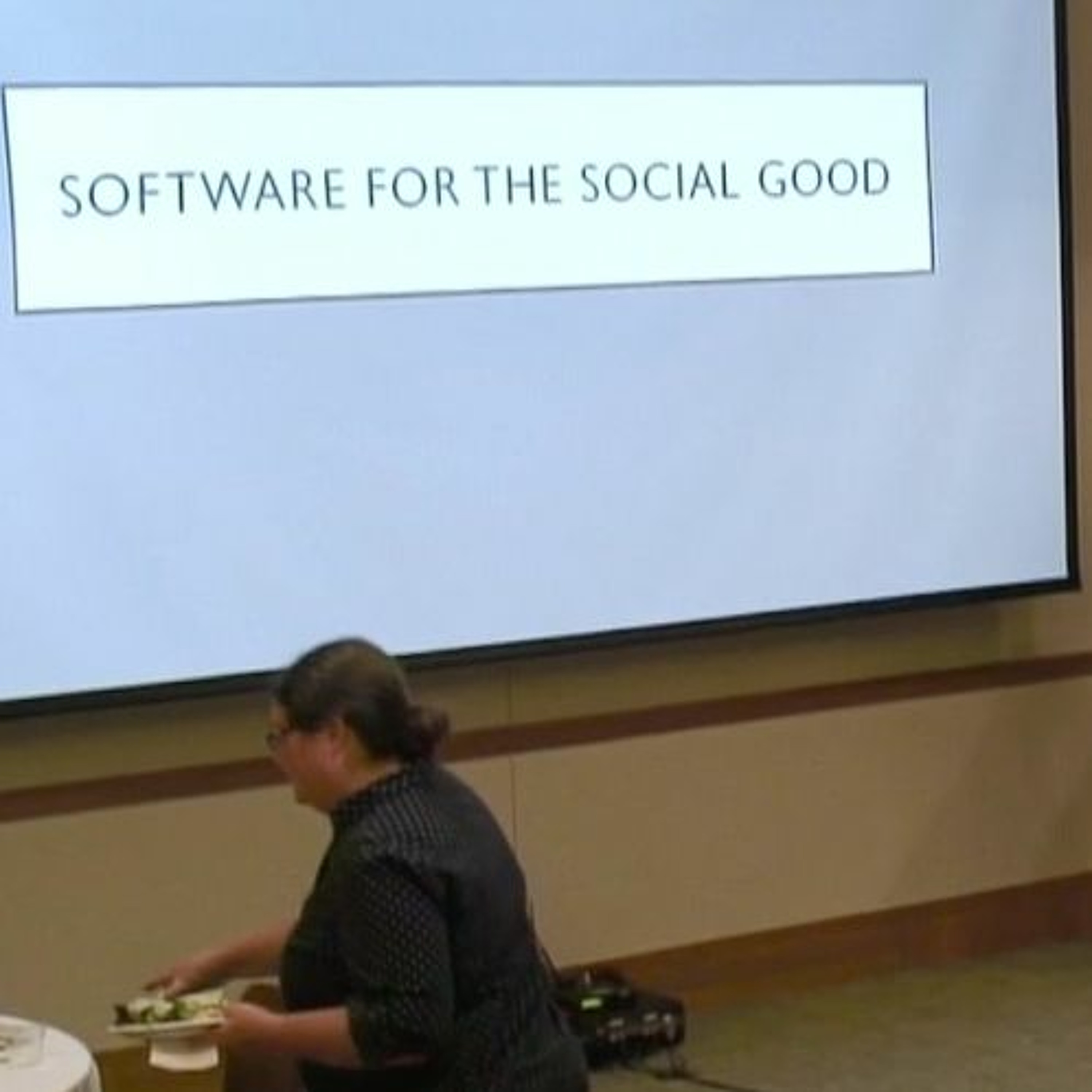 Berkman Klein Center for Internet & SocietySoftware for Social GoodThe Berkman Klein Center's geek team helps build amazing tools that help us study the Internet and advance the public interest.
In this talk they discuss and demo some of the tools we produce, including TagTeam and Media Cloud.
Learn more about this event:
https://cyber.harvard.edu/events/2018-10-02/software-social-good2018-10-0959 min
Berkman Klein Center for Internet & SocietySoftware for Social GoodThe Berkman Klein Center's geek team helps build amazing tools that help us study the Internet and advance the public interest.
In this talk they discuss and demo some of the tools we produce, including TagTeam and Media Cloud.
Learn more about this event:
https://cyber.harvard.edu/events/2018-10-02/software-social-good2018-10-0959 min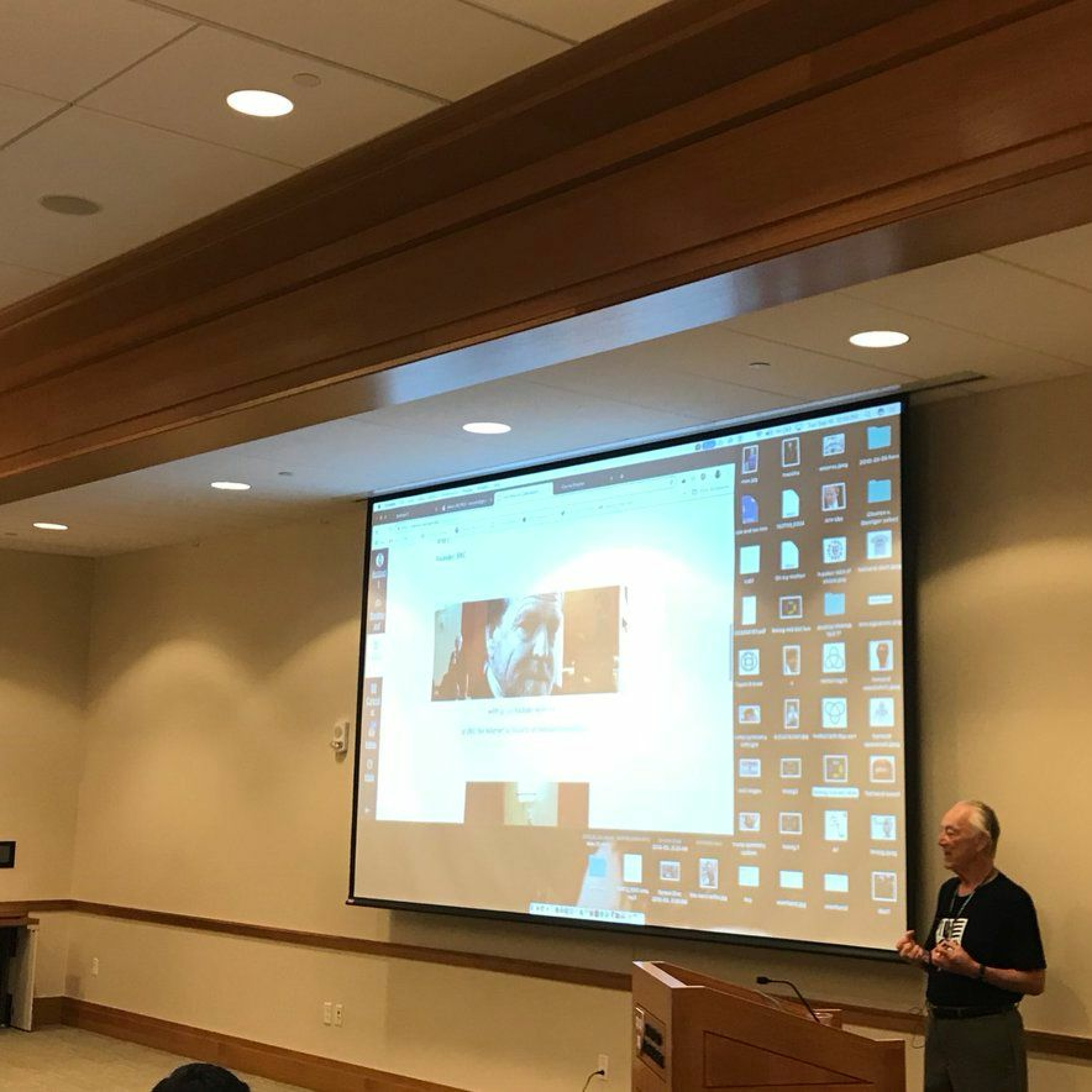 Berkman Klein Center for Internet & SocietyPlatforms, Politics, and Power: Understanding and Shaping the Internet in 2018Drawing from memes, magazine covers and legal documents from the past 60 years, Jonathan Zittrain gives a lively overview of the Internet since its inception, spanning the debates, concerns, and hopes in the years since, and how the Berkman Klein Center fits into—and contributes to—these conversations.
More info on this event here:
https://cyber.harvard.edu/events/2018-09-18/platforms-politics-and-power2018-09-271h 13
Berkman Klein Center for Internet & SocietyPlatforms, Politics, and Power: Understanding and Shaping the Internet in 2018Drawing from memes, magazine covers and legal documents from the past 60 years, Jonathan Zittrain gives a lively overview of the Internet since its inception, spanning the debates, concerns, and hopes in the years since, and how the Berkman Klein Center fits into—and contributes to—these conversations.
More info on this event here:
https://cyber.harvard.edu/events/2018-09-18/platforms-politics-and-power2018-09-271h 13 Berkman Klein Center for Internet & SocietyDividing Lines: Why Is Internet Access Still Considered a Luxury in America?The online world is no longer a distinct world. It is an extension of our social, economic, and political lives. Internet access, however, is still often considered a luxury good in the United States. Millions of Americans have been priced out of, or entirely excluded from, the reach of modern internet networks.
Maria Smith, an affiliate of Berkman Klein and the Cyberlaw Clinic, created a four-part documentary series to highlight these stark divides in connectivity, from Appalachia to San Francisco, and to uncover the complex web of political and economic forces behind them.
Learn more about this event here:
https...2018-03-301h 03
Berkman Klein Center for Internet & SocietyDividing Lines: Why Is Internet Access Still Considered a Luxury in America?The online world is no longer a distinct world. It is an extension of our social, economic, and political lives. Internet access, however, is still often considered a luxury good in the United States. Millions of Americans have been priced out of, or entirely excluded from, the reach of modern internet networks.
Maria Smith, an affiliate of Berkman Klein and the Cyberlaw Clinic, created a four-part documentary series to highlight these stark divides in connectivity, from Appalachia to San Francisco, and to uncover the complex web of political and economic forces behind them.
Learn more about this event here:
https...2018-03-301h 03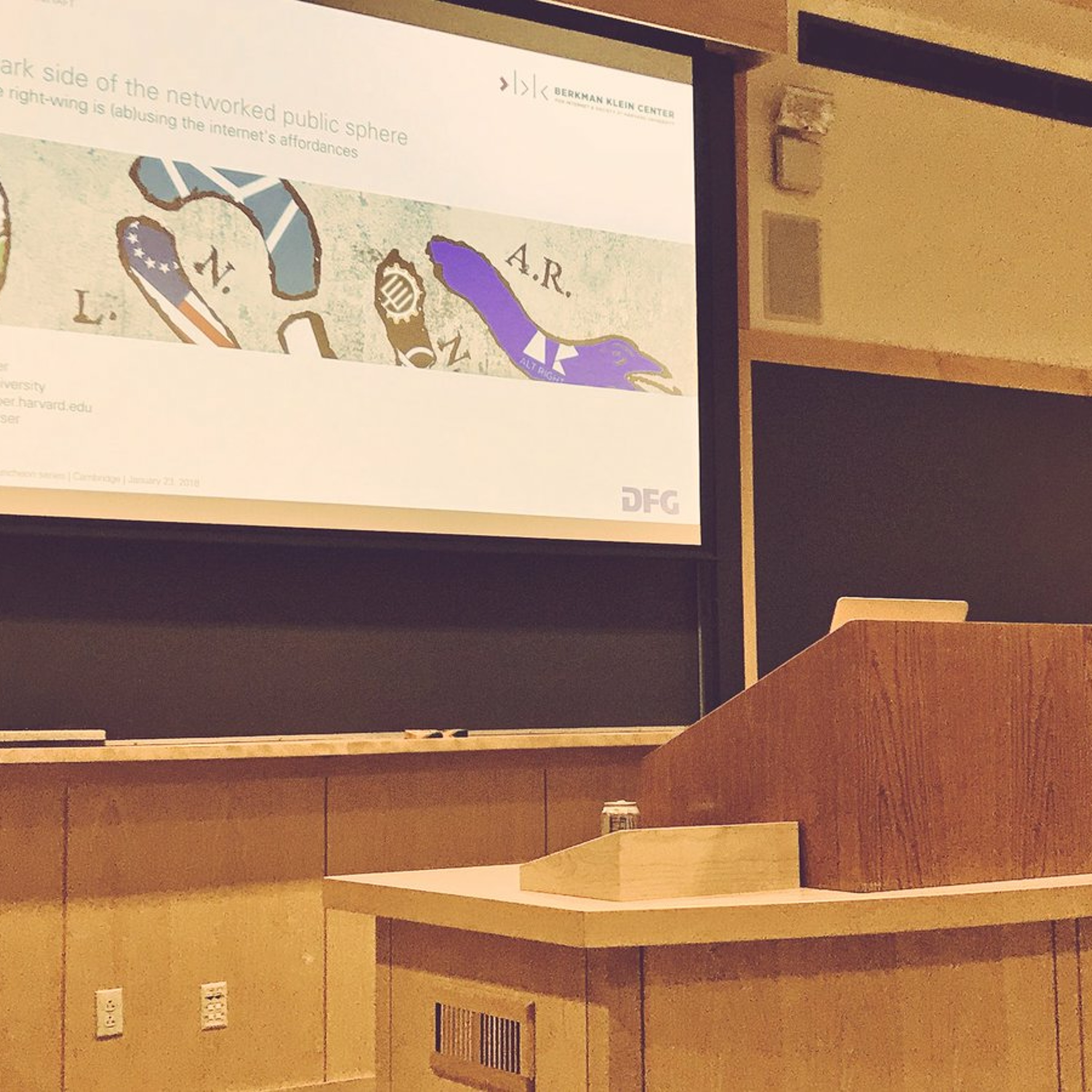 Berkman Klein Center for Internet & SocietyJonas Kaiser on The Dark Side of the Networked Public SphereIn this talk, Berkman Klein affiliate Jonas Kaiser shares some of his research on the networked public sphere. "The right-wing is rising. Not only in the United States but also in Germany and other European countries. And the internet helped," he writes. "Right-wing actors are active all over the internet, adapt to platforms, game the system, blur the lines between off- and online, and create their own virtual spaces. In addition, social media platforms like YouTube contribute involuntarily to the right-wing's reach and, perhaps, influence with their algorithms." In this talk Kaiser will explore these issues and potential ways forward.
...2018-02-0559 min
Berkman Klein Center for Internet & SocietyJonas Kaiser on The Dark Side of the Networked Public SphereIn this talk, Berkman Klein affiliate Jonas Kaiser shares some of his research on the networked public sphere. "The right-wing is rising. Not only in the United States but also in Germany and other European countries. And the internet helped," he writes. "Right-wing actors are active all over the internet, adapt to platforms, game the system, blur the lines between off- and online, and create their own virtual spaces. In addition, social media platforms like YouTube contribute involuntarily to the right-wing's reach and, perhaps, influence with their algorithms." In this talk Kaiser will explore these issues and potential ways forward.
...2018-02-0559 min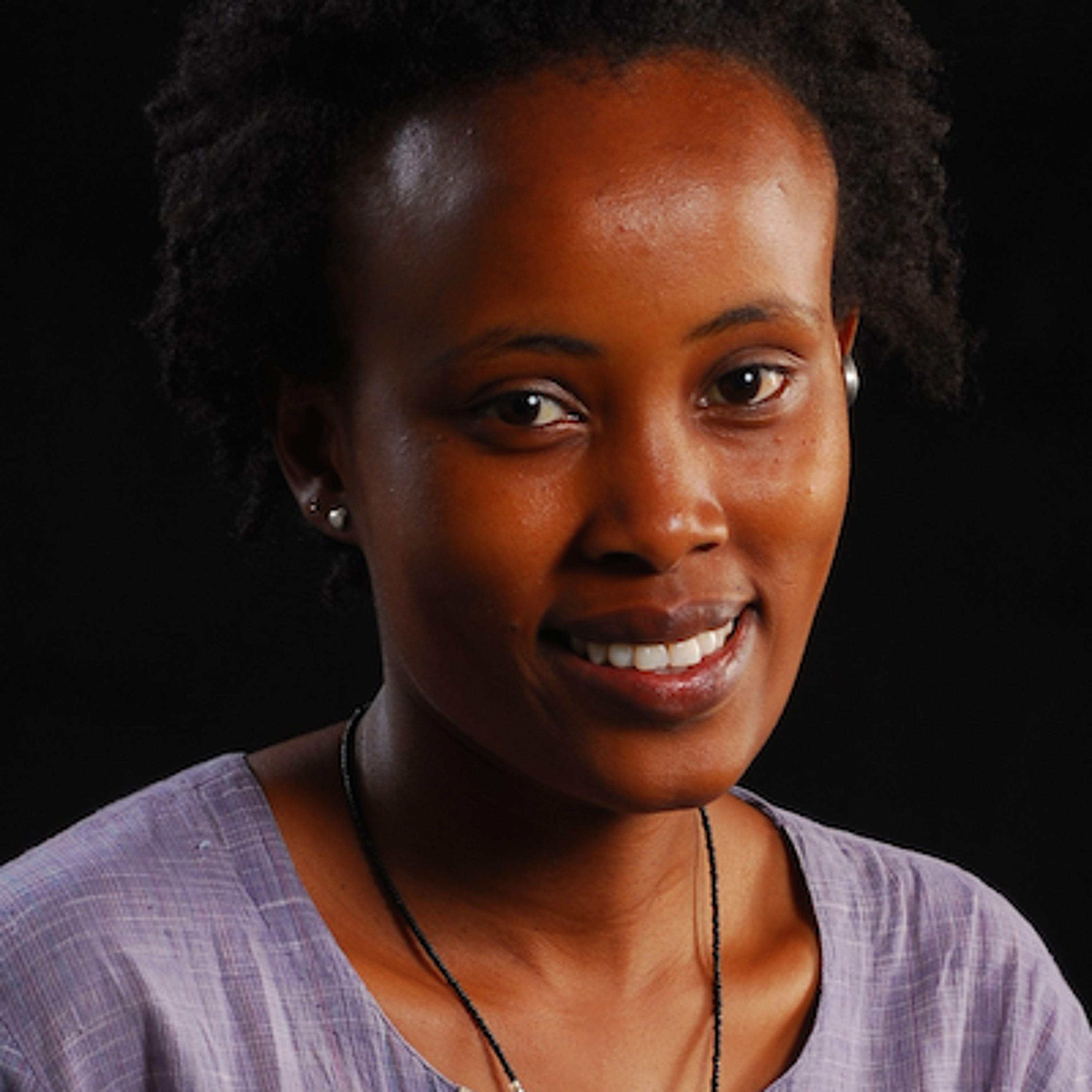 Berkman Klein Center for Internet & SocietyDid fake news save Kenya from an Internet shutdown? Emerging Trends in Tech and Elections in AfricaDid fake news save Kenya from an Internet shutdown?
Kenya held general elections on August 8, 2017. The presidential election was nullified due to irregularities and is set for a repeat on October 26, 2017. Technology played a key role in the polls at two levels - there was use of tech in aspects such as results transmission and social media was employed massively in political campaigns with propaganda and fake news flowing freely. The talk explores emerging trends in use of technology in elections and their effect on Internet freedom and what to expect as Kenya gears up for repeat elections.
About Grace
...2017-10-041h 04
Berkman Klein Center for Internet & SocietyDid fake news save Kenya from an Internet shutdown? Emerging Trends in Tech and Elections in AfricaDid fake news save Kenya from an Internet shutdown?
Kenya held general elections on August 8, 2017. The presidential election was nullified due to irregularities and is set for a repeat on October 26, 2017. Technology played a key role in the polls at two levels - there was use of tech in aspects such as results transmission and social media was employed massively in political campaigns with propaganda and fake news flowing freely. The talk explores emerging trends in use of technology in elections and their effect on Internet freedom and what to expect as Kenya gears up for repeat elections.
About Grace
...2017-10-041h 04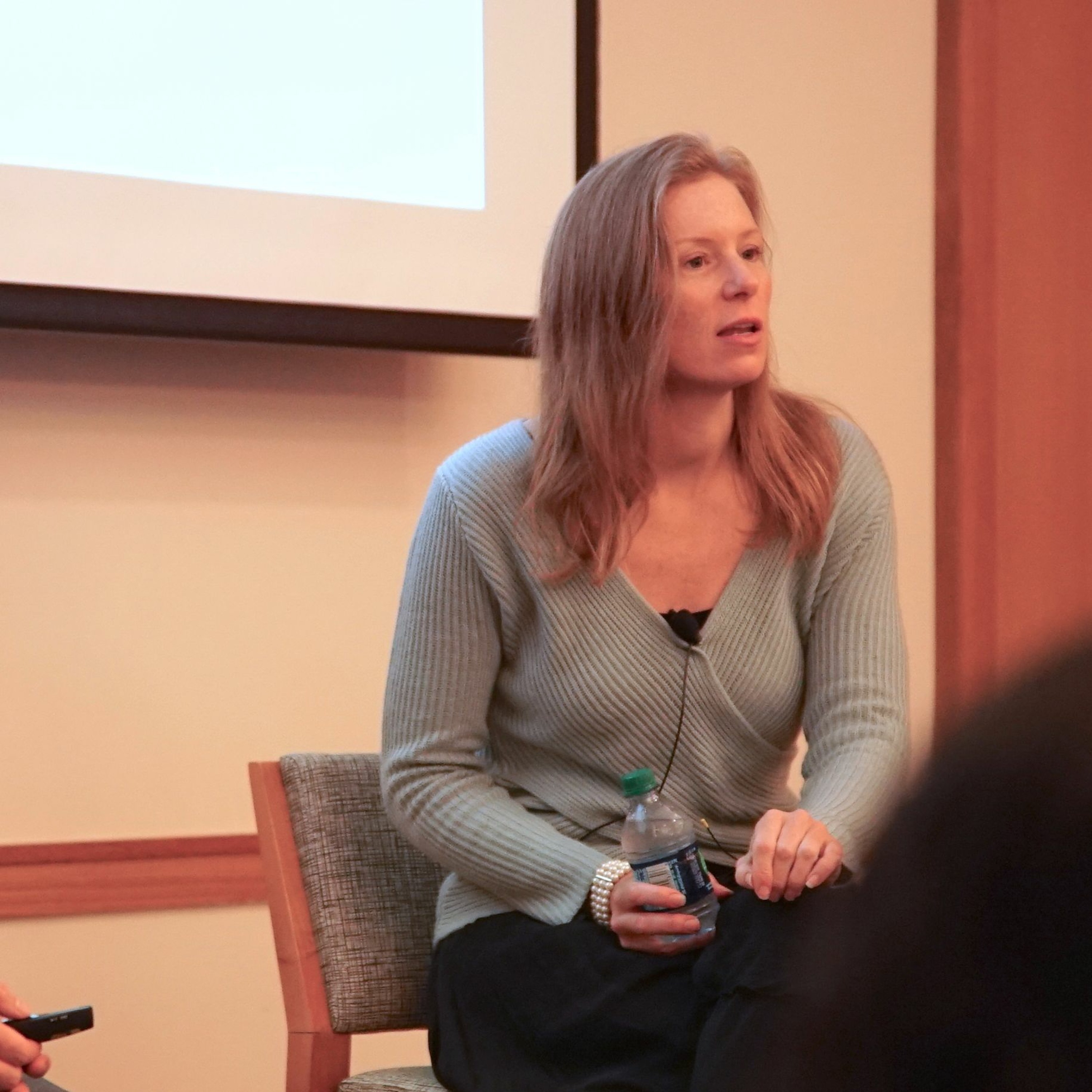 Berkman Klein Center for Internet & SocietyThe Line Between Hate and Debate on FacebookThe Internet has been billed as the great equalizer, breaking down barriers and increasing access to information and ideas. At the same time, it has allowed for the proliferation of abuse online – whether in the form of hate, harassment or offensive content. The freedom to express oneself is an important principle, but should it persist unfettered? How and where should we draw the line, and who – or what – should play a role in moderating online debate?
Monika Bickert, Facebook’s Head of Global Policy Management, and Jonathan Zittrain, Faculty Director of the Berkman Klein Center for Internet & Society and Harvard professo...2017-09-2254 min
Berkman Klein Center for Internet & SocietyThe Line Between Hate and Debate on FacebookThe Internet has been billed as the great equalizer, breaking down barriers and increasing access to information and ideas. At the same time, it has allowed for the proliferation of abuse online – whether in the form of hate, harassment or offensive content. The freedom to express oneself is an important principle, but should it persist unfettered? How and where should we draw the line, and who – or what – should play a role in moderating online debate?
Monika Bickert, Facebook’s Head of Global Policy Management, and Jonathan Zittrain, Faculty Director of the Berkman Klein Center for Internet & Society and Harvard professo...2017-09-2254 min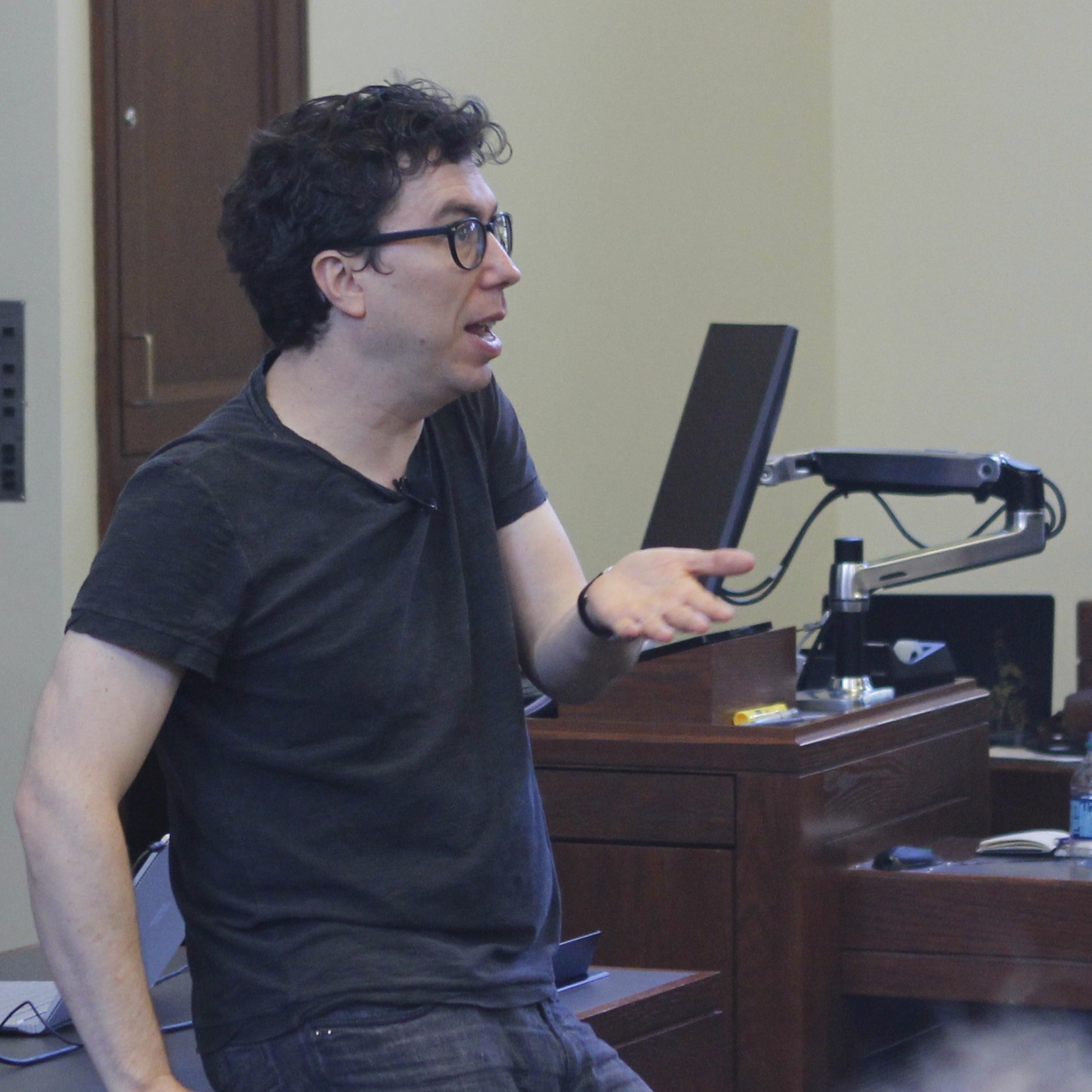 Berkman Klein Center for Internet & SocietyJonathan Zittrain on Technology for the Social GoodBerkman Klein Center Faculty Chair Jonathan Zittrain discusses the development of the Internet — from its earliest stages to its present manifestations — as a technology for good or harm, depending on the human forces that wield it.
Find out more about this event, and the Berkman Klein Center, here:
https://cyber.harvard.edu/events/2017/luncheon/09/Zittrain2017-09-181h 00
Berkman Klein Center for Internet & SocietyJonathan Zittrain on Technology for the Social GoodBerkman Klein Center Faculty Chair Jonathan Zittrain discusses the development of the Internet — from its earliest stages to its present manifestations — as a technology for good or harm, depending on the human forces that wield it.
Find out more about this event, and the Berkman Klein Center, here:
https://cyber.harvard.edu/events/2017/luncheon/09/Zittrain2017-09-181h 00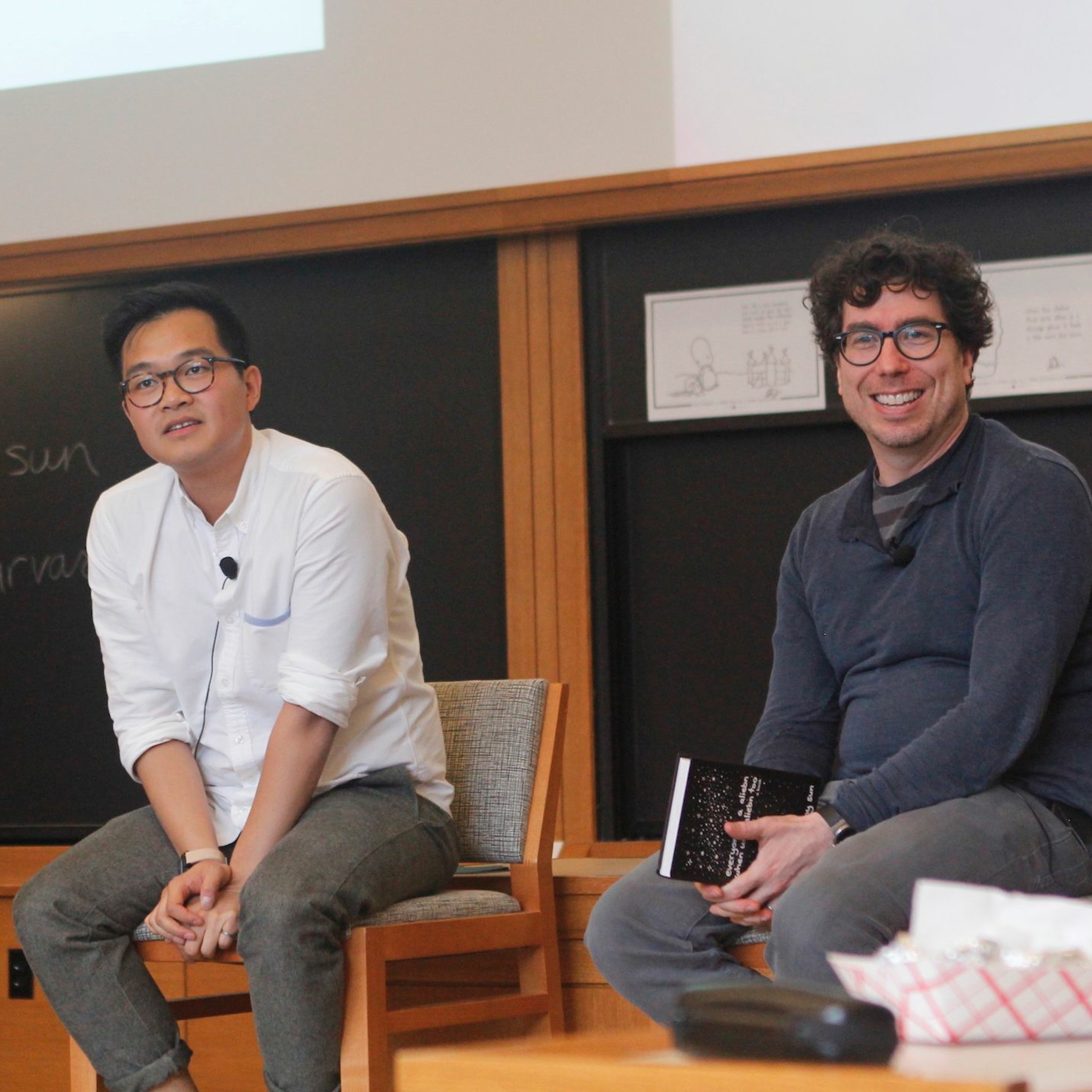 Berkman Klein Center for Internet & SocietyJonny Sun and Jonathan Zittrain on Joke Tweets, Memes, and Being an Alien OnlineJoin Jonny Sun, the author of the popular Twitter account @jonnysun, for a conversation in celebration of his new book “everyone’s a aliebn when ur a aliebn too” by jomny sun (the aliebn). This debut illustrated book is the unforgettable story of a lost, lonely, and confused alien finding friendship, acceptance, and love among the creatures of Earth. Constructed from many of Jonny’s re-contextualized tweets, the book is also a creative thesis on the narrative formats of social media, and a defense of the humanity-fulfilling aspects of social media born out of his experiences on Twitter.
About Jonny
Jonathan...2017-06-3051 min
Berkman Klein Center for Internet & SocietyJonny Sun and Jonathan Zittrain on Joke Tweets, Memes, and Being an Alien OnlineJoin Jonny Sun, the author of the popular Twitter account @jonnysun, for a conversation in celebration of his new book “everyone’s a aliebn when ur a aliebn too” by jomny sun (the aliebn). This debut illustrated book is the unforgettable story of a lost, lonely, and confused alien finding friendship, acceptance, and love among the creatures of Earth. Constructed from many of Jonny’s re-contextualized tweets, the book is also a creative thesis on the narrative formats of social media, and a defense of the humanity-fulfilling aspects of social media born out of his experiences on Twitter.
About Jonny
Jonathan...2017-06-3051 min Berkman Klein Center for Internet & SocietyTressie McMillan Cottom on the Troubling Rise of For-Profit Colleges in the New EconomyMore than two million students are enrolled in for-profit colleges, from the small family-run operations to the behemoths brandished on billboards, subway ads, and late-night commercials. These schools have been around just as long as their bucolic not-for-profit counterparts, yet shockingly little is known about why they have expanded so rapidly in recent years—during the so-called Wall Street era of for-profit colleges.
In Lower Ed Tressie McMillan Cottom—a bold and rising public scholar, herself once a recruiter at two for-profit colleges—expertly parses the fraught dynamics of this big-money industry to show precisely how it is part and parcel...2017-06-271h 14
Berkman Klein Center for Internet & SocietyTressie McMillan Cottom on the Troubling Rise of For-Profit Colleges in the New EconomyMore than two million students are enrolled in for-profit colleges, from the small family-run operations to the behemoths brandished on billboards, subway ads, and late-night commercials. These schools have been around just as long as their bucolic not-for-profit counterparts, yet shockingly little is known about why they have expanded so rapidly in recent years—during the so-called Wall Street era of for-profit colleges.
In Lower Ed Tressie McMillan Cottom—a bold and rising public scholar, herself once a recruiter at two for-profit colleges—expertly parses the fraught dynamics of this big-money industry to show precisely how it is part and parcel...2017-06-271h 14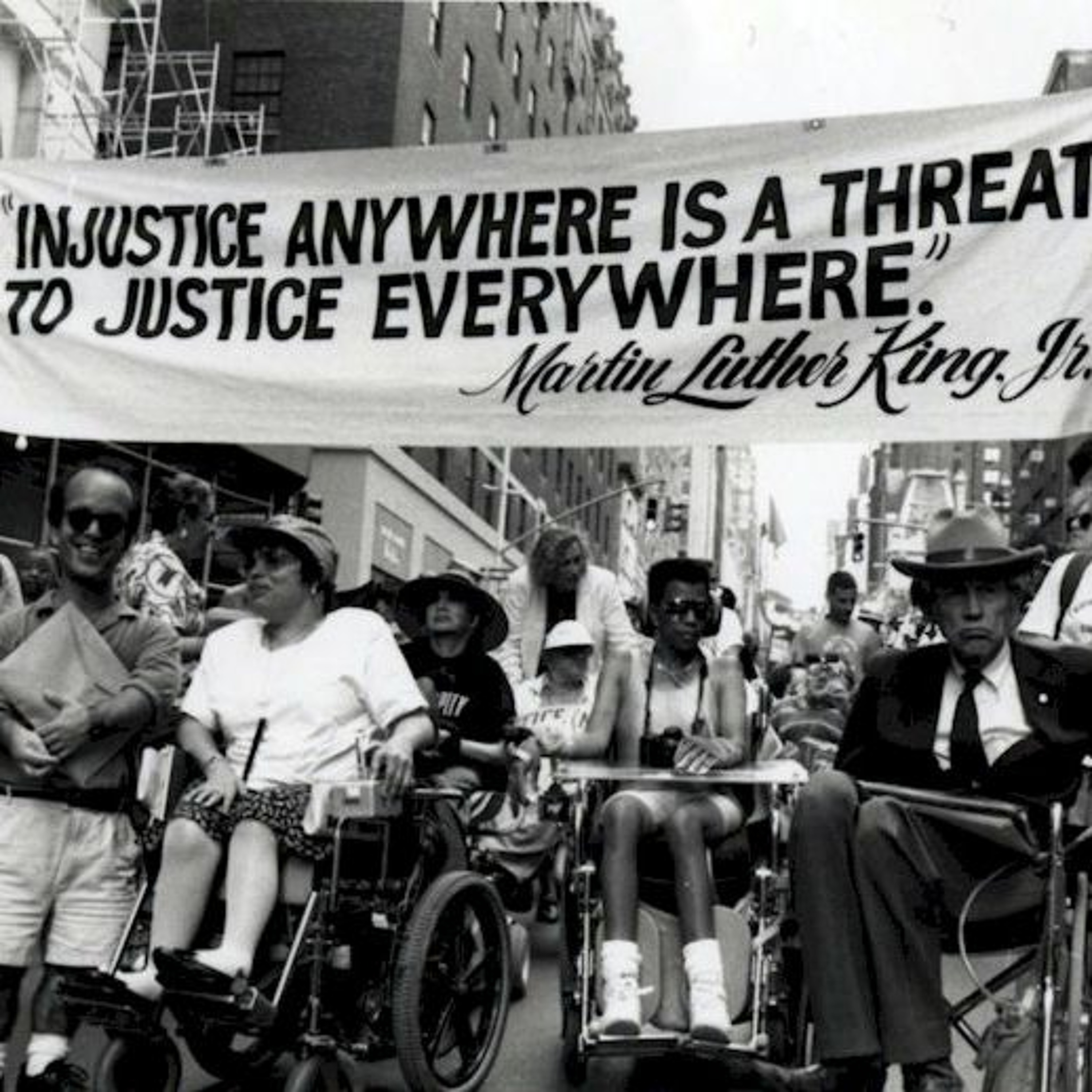 Berkman Klein Center for Internet & SocietyCan We Talk?: An Open Forum on Disability, Technology, and InclusionCan we talk? The question (a favorite prompt of the late comedian Joan Rivers) evokes a feeling of being intimately and sometimes uncomfortably open, frank, and honest, both with others and ourselves. This event, a conversation between Prof. Elizabeth Ellcessor (Indiana University) and Prof. Meryl Alper (Northeastern University, Berkman Klein Center), points the question at the topic of disability, technology, and inclusion in public and private, and in digital and digitally-mediated spaces. Ryan Budish (Berkman Klein Center) and Dylan Mulvin (Microsoft Research) will serve as discussants.
Can we talk?, with respect to different degrees of potential access (in its social, cu...2017-06-061h 08
Berkman Klein Center for Internet & SocietyCan We Talk?: An Open Forum on Disability, Technology, and InclusionCan we talk? The question (a favorite prompt of the late comedian Joan Rivers) evokes a feeling of being intimately and sometimes uncomfortably open, frank, and honest, both with others and ourselves. This event, a conversation between Prof. Elizabeth Ellcessor (Indiana University) and Prof. Meryl Alper (Northeastern University, Berkman Klein Center), points the question at the topic of disability, technology, and inclusion in public and private, and in digital and digitally-mediated spaces. Ryan Budish (Berkman Klein Center) and Dylan Mulvin (Microsoft Research) will serve as discussants.
Can we talk?, with respect to different degrees of potential access (in its social, cu...2017-06-061h 08 Berkman Klein Center for Internet & SocietyHow to regulate the future of financeUS market regulators offer perspectives on the benefits and risks of the financial technology revolution from distributed ledgers, p2p marketplaces and the use of AI in the financial system. Moderated by Patrick Murck -- Fellow at the Berkman Klein Center for Internet & Society -- the panel discusses the challenge of regulating through disruption and how federal agencies can modernize their approach to keep up with innovation.
John Schindler is an Economist for the Board of Governors of the Federal Reserve System.
Jeffrey Bandman is the FinTech Advisor at the U.S. Commodity Futures Trading Commission.
Valerie A. Szczepanik is...2017-05-221h 20
Berkman Klein Center for Internet & SocietyHow to regulate the future of financeUS market regulators offer perspectives on the benefits and risks of the financial technology revolution from distributed ledgers, p2p marketplaces and the use of AI in the financial system. Moderated by Patrick Murck -- Fellow at the Berkman Klein Center for Internet & Society -- the panel discusses the challenge of regulating through disruption and how federal agencies can modernize their approach to keep up with innovation.
John Schindler is an Economist for the Board of Governors of the Federal Reserve System.
Jeffrey Bandman is the FinTech Advisor at the U.S. Commodity Futures Trading Commission.
Valerie A. Szczepanik is...2017-05-221h 20 Berkman Klein Center for Internet & SocietyZeynep Tufekci on Twitter and Tear Gas: The Power and Fragility of Networked ProtestBerkman Klein Faculty Associate, Zeynep Tufekci joins us to talk about her new book, Twitter and Tear Gas: The Power and Fragility of Networked Protest.
To understand a thwarted Turkish coup, an anti–Wall Street encampment, and a packed Tahrir Square, we must first comprehend the power and the weaknesses of using new technologies to mobilize large numbers of people. An incisive observer, writer, and participant in today’s social movements, Zeynep Tufekci explains in this accessible and compelling book the nuanced trajectories of modern protests—how they form, how they operate differently from past protests, and why they have diffic...2017-05-121h 07
Berkman Klein Center for Internet & SocietyZeynep Tufekci on Twitter and Tear Gas: The Power and Fragility of Networked ProtestBerkman Klein Faculty Associate, Zeynep Tufekci joins us to talk about her new book, Twitter and Tear Gas: The Power and Fragility of Networked Protest.
To understand a thwarted Turkish coup, an anti–Wall Street encampment, and a packed Tahrir Square, we must first comprehend the power and the weaknesses of using new technologies to mobilize large numbers of people. An incisive observer, writer, and participant in today’s social movements, Zeynep Tufekci explains in this accessible and compelling book the nuanced trajectories of modern protests—how they form, how they operate differently from past protests, and why they have diffic...2017-05-121h 07 Berkman Klein Center for Internet & SocietyIfeoma Ajunwa on The Quantified WorkerWhat are the rights of the worker in a society that seems to privilege technological innovation over equality and privacy? How does the law protect worker privacy and dignity given technological advancements that allow for greater surveillance of workers? What can we expect for the future of work; should privacy be treated as merely an economic good that could be exchanged for the benefit of employment?
In this talk Berkman Klein fellow Ifeoma Ajunwa looks at how the law and private firms respond to job applicants or employees perceived as “risky,” and the organizational behavior in pursuit of risk reduction by p...2017-05-1153 min
Berkman Klein Center for Internet & SocietyIfeoma Ajunwa on The Quantified WorkerWhat are the rights of the worker in a society that seems to privilege technological innovation over equality and privacy? How does the law protect worker privacy and dignity given technological advancements that allow for greater surveillance of workers? What can we expect for the future of work; should privacy be treated as merely an economic good that could be exchanged for the benefit of employment?
In this talk Berkman Klein fellow Ifeoma Ajunwa looks at how the law and private firms respond to job applicants or employees perceived as “risky,” and the organizational behavior in pursuit of risk reduction by p...2017-05-1153 min Berkman Klein Center for Internet & SocietyDigital Rights and Online Harassment in the Global SouthNighat Dad discusses the state of freedom of expression, privacy, and online harassment in the global south, with a particular focus on Pakistan, where she is based. Dad is the Executive Director of the Digital Rights Foundation (DRF), a nonprofit that seeks to protect the freedom and security of all people online, with a particular focus on women and human rights defenders.
In late 2016, DRF launched a cyber harassment hotline, and Dad will present key findings from a recently released report [LINK: http://digitalrightsfoundation.pk/cyber-harassment-helpline-completes-its-four-months-of-operations/] on the first four months of its operation. The report affords up-to-the-moment insights on...2017-05-0356 min
Berkman Klein Center for Internet & SocietyDigital Rights and Online Harassment in the Global SouthNighat Dad discusses the state of freedom of expression, privacy, and online harassment in the global south, with a particular focus on Pakistan, where she is based. Dad is the Executive Director of the Digital Rights Foundation (DRF), a nonprofit that seeks to protect the freedom and security of all people online, with a particular focus on women and human rights defenders.
In late 2016, DRF launched a cyber harassment hotline, and Dad will present key findings from a recently released report [LINK: http://digitalrightsfoundation.pk/cyber-harassment-helpline-completes-its-four-months-of-operations/] on the first four months of its operation. The report affords up-to-the-moment insights on...2017-05-0356 min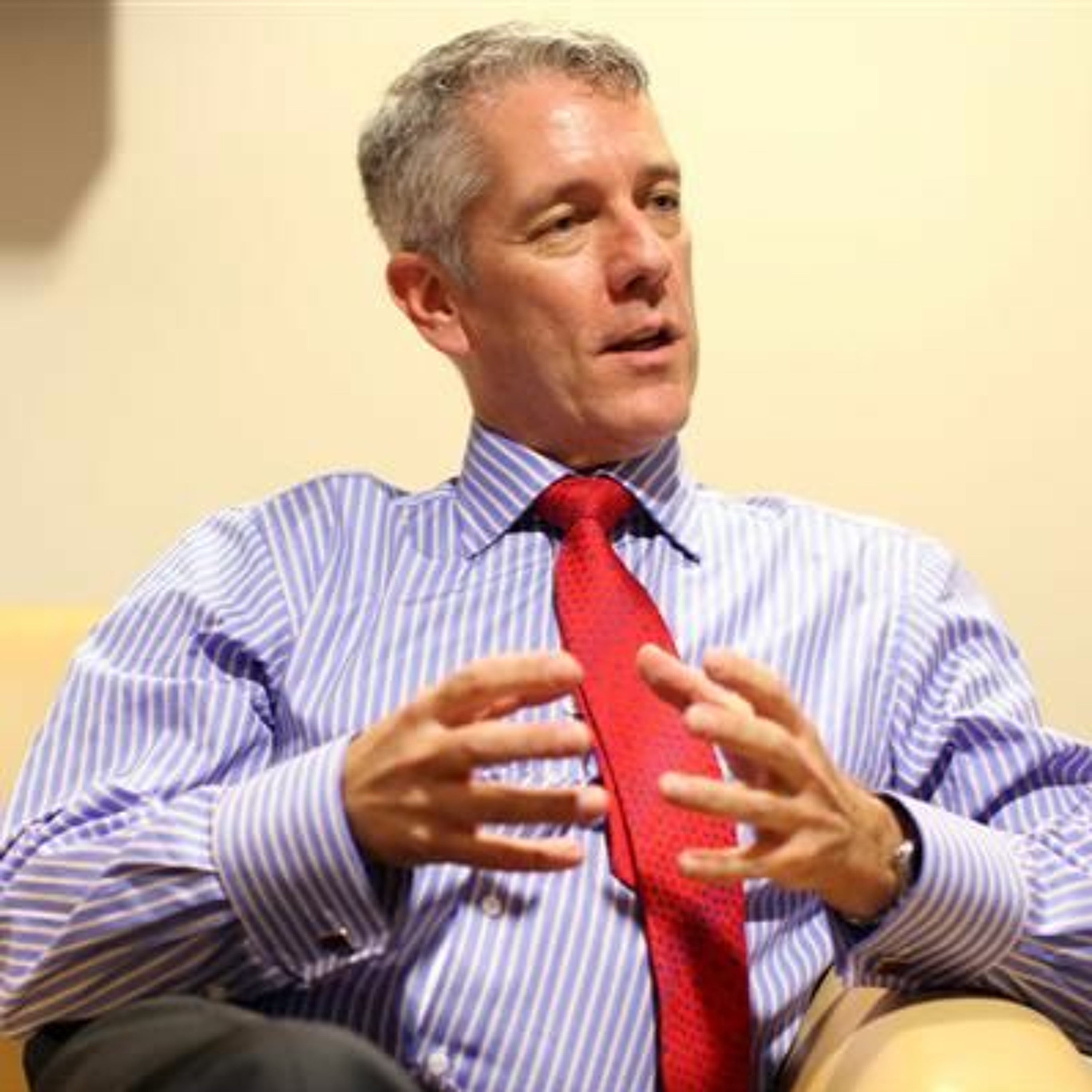 Berkman Klein Center for Internet & SocietyInternet Access as a Basic Service: Inspiration from our Canadian NeighborsDeemed the modern equivalent of building roads or railways, connecting every person and business to high-speed internet is on the minds of policymakers, advocates, and industry players. Under the leadership of Mr. Jean-Pierre Blais, the Canadian Radio-television and Telecommunications Commission (“CRTC”) ruled in December 2016 that broadband internet access is a basic and vital service, thus ensuring that broadband internet joins the ranks of local phone service. The CRTC’s announced reforms will impact over 2 million Canadian households, especially those in remote and isolated areas. The policy aims to ensure that internet download speeds of 50mbps and upload speeds of 10mbps are av...2017-05-031h 03
Berkman Klein Center for Internet & SocietyInternet Access as a Basic Service: Inspiration from our Canadian NeighborsDeemed the modern equivalent of building roads or railways, connecting every person and business to high-speed internet is on the minds of policymakers, advocates, and industry players. Under the leadership of Mr. Jean-Pierre Blais, the Canadian Radio-television and Telecommunications Commission (“CRTC”) ruled in December 2016 that broadband internet access is a basic and vital service, thus ensuring that broadband internet joins the ranks of local phone service. The CRTC’s announced reforms will impact over 2 million Canadian households, especially those in remote and isolated areas. The policy aims to ensure that internet download speeds of 50mbps and upload speeds of 10mbps are av...2017-05-031h 03 Berkman Klein Center for Internet & SocietyDigital Expungement: Rehabilitation in the Digital AgeThe concept of criminal rehabilitation in the digital age is intriguing. How can we ensure proper reintegration into society of individuals with a criminal history that was expunged by the state when their wrongdoings remain widely available through commercial vendors (data brokers) and online sources like mugshot websites, legal research websites, social media platforms, and media archives? What are constitutional and pragmatic challenges to ensure digital rehabilitation? Is there a viable solution to solve this conundrum?
About Eldar
Eldar Haber is an Associate Professor (Senior Lecturer) at the Faculty of Law, Haifa University and a Faculty Associate at the Berkman-Klein...2017-05-0351 min
Berkman Klein Center for Internet & SocietyDigital Expungement: Rehabilitation in the Digital AgeThe concept of criminal rehabilitation in the digital age is intriguing. How can we ensure proper reintegration into society of individuals with a criminal history that was expunged by the state when their wrongdoings remain widely available through commercial vendors (data brokers) and online sources like mugshot websites, legal research websites, social media platforms, and media archives? What are constitutional and pragmatic challenges to ensure digital rehabilitation? Is there a viable solution to solve this conundrum?
About Eldar
Eldar Haber is an Associate Professor (Senior Lecturer) at the Faculty of Law, Haifa University and a Faculty Associate at the Berkman-Klein...2017-05-0351 min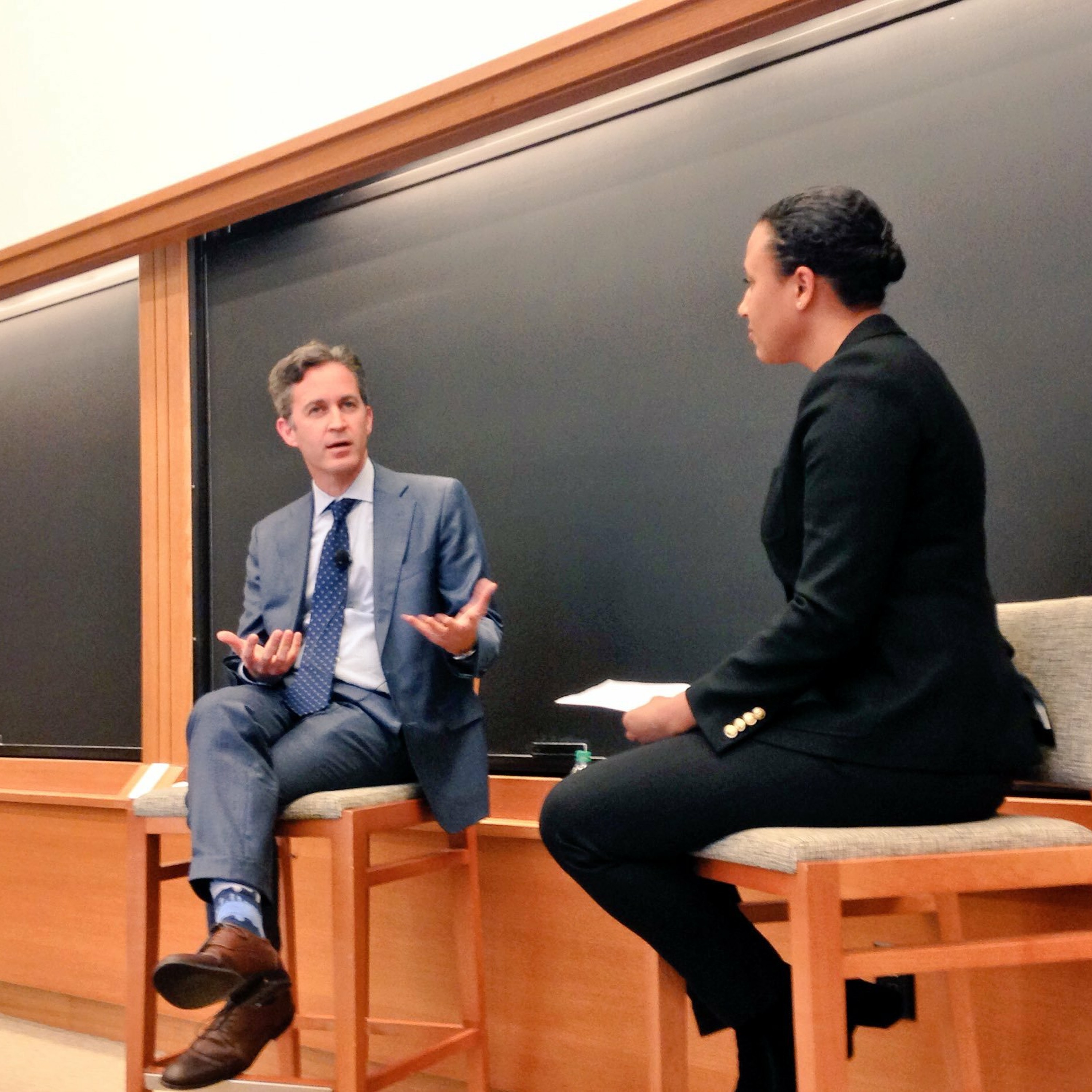 Berkman Klein Center for Internet & SocietyThe International State of Digital Rights, a Conversation with the UN Special RapporteurUN Special Rapporteur on the Right to Freedom of Opinion and Expression, David Kaye, is joined in conversation by Nani Jansen Reventlow, a Fellow at the Berkman Klein Center and Adviser to the Cyberlaw Clinic, about his upcoming thematic report on digital access and human rights, as well as the most burning issues regarding free speech online and digital rights including encryption, fake news, online gender-based abuse and the global epidemic of internet censorship.
More on this event here:
https://cyber.harvard.edu/events/2017/04/DavidKaye2017-04-281h 07
Berkman Klein Center for Internet & SocietyThe International State of Digital Rights, a Conversation with the UN Special RapporteurUN Special Rapporteur on the Right to Freedom of Opinion and Expression, David Kaye, is joined in conversation by Nani Jansen Reventlow, a Fellow at the Berkman Klein Center and Adviser to the Cyberlaw Clinic, about his upcoming thematic report on digital access and human rights, as well as the most burning issues regarding free speech online and digital rights including encryption, fake news, online gender-based abuse and the global epidemic of internet censorship.
More on this event here:
https://cyber.harvard.edu/events/2017/04/DavidKaye2017-04-281h 07 Berkman Klein Center for Internet & SocietyPublic Interest Data Science: The Data for Justice ProjectThe Data for Justice project is an initiative that aims to make (open) data actionable empowering lawyers, advocates, community organizers, journalists, activists and the general public by developing the tools and frameworks that digest complex databases without losing sight of the ultimate goal: to tell a story that can effect social change and justice.
This project is the product of the work of Paola Villarreal, a Berkman Klein Center Fellow as a Data Scientist at the ACLU of Massachusetts and as a 2015 Ford and Mozilla Foundations Open Web Fellow.
For more about this event, visit:
https://cyber.harvard.edu/events...2017-04-271h 01
Berkman Klein Center for Internet & SocietyPublic Interest Data Science: The Data for Justice ProjectThe Data for Justice project is an initiative that aims to make (open) data actionable empowering lawyers, advocates, community organizers, journalists, activists and the general public by developing the tools and frameworks that digest complex databases without losing sight of the ultimate goal: to tell a story that can effect social change and justice.
This project is the product of the work of Paola Villarreal, a Berkman Klein Center Fellow as a Data Scientist at the ACLU of Massachusetts and as a 2015 Ford and Mozilla Foundations Open Web Fellow.
For more about this event, visit:
https://cyber.harvard.edu/events...2017-04-271h 01 Berkman Klein Center for Internet & SocietyHolding Hospitals Hostage: From HIPAA to RansomwareIn 2016, more than a dozen hospitals and healthcare organizations were targeted by ransomware attacks that temporarily blocked crucial access to patient records and hospital systems until administrators agreed to make ransom payments to the perpetrators. Emerging online threats such as ransomware are forcing hospitals and healthcare providers to revisit and re-evaluate the existing patient data protection standards, codified in the Health Insurance Portability and Accountability Act, that have dictated most healthcare security measures for more than two decades. This talk looks at how hospitals are grappling with these new security threats, as well as the ways that the focus on...2017-04-271h 00
Berkman Klein Center for Internet & SocietyHolding Hospitals Hostage: From HIPAA to RansomwareIn 2016, more than a dozen hospitals and healthcare organizations were targeted by ransomware attacks that temporarily blocked crucial access to patient records and hospital systems until administrators agreed to make ransom payments to the perpetrators. Emerging online threats such as ransomware are forcing hospitals and healthcare providers to revisit and re-evaluate the existing patient data protection standards, codified in the Health Insurance Portability and Accountability Act, that have dictated most healthcare security measures for more than two decades. This talk looks at how hospitals are grappling with these new security threats, as well as the ways that the focus on...2017-04-271h 00 Berkman Klein Center for Internet & SocietyLitigating Free Speech Cases in the African Regional CourtsPlease join us for a discussion with Nani Jansen Reventlow, Fellow at the Berkman Klein Center for Internet & Society and Associate Tenant at Doughty Street Chambers, on the topic of regional courts in Africa and freedom of expression cases in particular. As the head of the Media Legal Defence Initiative’s global litigation practice, Reventlow led litigation that resulted in the first freedom of expression judgments at the African Court on Human and Peoples’ Rights and the East African Court of Justice. She has also led cases before the European Court of Human Rights, the UN Human Rights Committee, the UN W...2017-04-2758 min
Berkman Klein Center for Internet & SocietyLitigating Free Speech Cases in the African Regional CourtsPlease join us for a discussion with Nani Jansen Reventlow, Fellow at the Berkman Klein Center for Internet & Society and Associate Tenant at Doughty Street Chambers, on the topic of regional courts in Africa and freedom of expression cases in particular. As the head of the Media Legal Defence Initiative’s global litigation practice, Reventlow led litigation that resulted in the first freedom of expression judgments at the African Court on Human and Peoples’ Rights and the East African Court of Justice. She has also led cases before the European Court of Human Rights, the UN Human Rights Committee, the UN W...2017-04-2758 min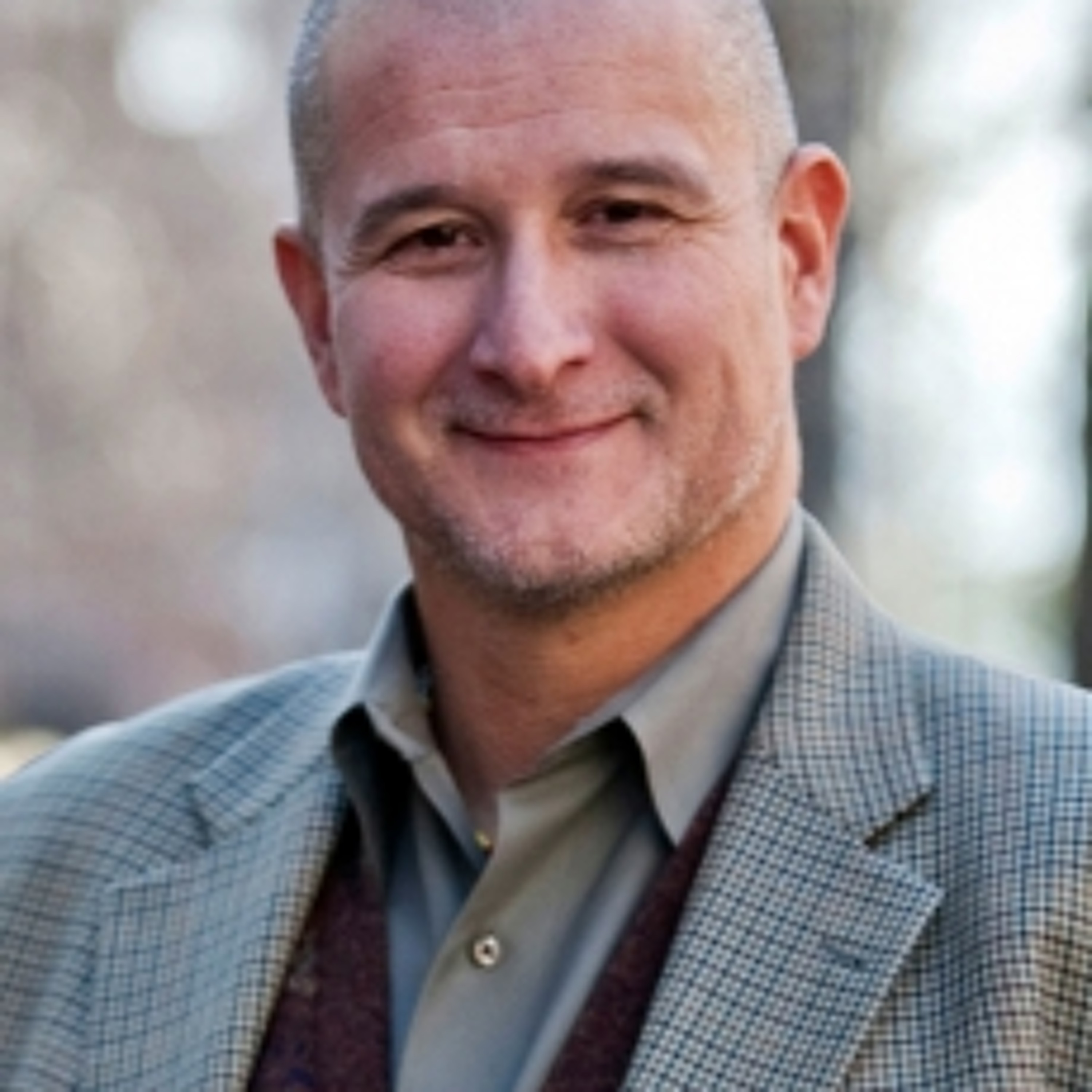 Berkman Klein Center for Internet & SocietyA More Perfect Internet: Promoting Digital Civility and Combating Cyber-ViolenceThis event is co-sponsored by the Human Rights Program at Harvard Law School and the Berkman Klein Center for Internet & Society at Harvard University.
This talk addresses a range of issues relating to digital incivility with en emphasis on cyber-violence. What are the most common negative behaviors online? How are these perceived and experienced by users? What is cyber-violence? Who does it target? What steps can be taken to prevent such behaviors? How should they be addressed once they've occurred? What challenges does the legal system face when dealing with cyber-violence related offenses? Professor Carrillo draws from the Cyber-Violence Project...2017-04-2657 min
Berkman Klein Center for Internet & SocietyA More Perfect Internet: Promoting Digital Civility and Combating Cyber-ViolenceThis event is co-sponsored by the Human Rights Program at Harvard Law School and the Berkman Klein Center for Internet & Society at Harvard University.
This talk addresses a range of issues relating to digital incivility with en emphasis on cyber-violence. What are the most common negative behaviors online? How are these perceived and experienced by users? What is cyber-violence? Who does it target? What steps can be taken to prevent such behaviors? How should they be addressed once they've occurred? What challenges does the legal system face when dealing with cyber-violence related offenses? Professor Carrillo draws from the Cyber-Violence Project...2017-04-2657 min Berkman Klein Center for Internet & SocietyThe KINGS of Africa’s Digital EconomyEric Osiakwan is an Entrepreneur and Investor with 15 years of ICT industry leadership across Africa and the world. He has worked in 32 African countries setting up ISPs, ISPAs, IXPs and high-tech startups. Some of these companies and organizations are Angel Africa, Angel Fair Africa , Ghana Cyber City, PenPlusBytes, African Elections Portal, FOSSFA, WABco, GISPA, AfrISPA, GNVC, Internet Research, InHand, Ghana Connect. He serves on the board of Farmerline, Forhey, Teranga Solutions, Siqueries, Amp.it, SameLogic, eCampus, Bisa App and Wanjo Foods, - some of which are his investments.
He was part of the team that built the TEAMS submarine cable...2017-04-2455 min
Berkman Klein Center for Internet & SocietyThe KINGS of Africa’s Digital EconomyEric Osiakwan is an Entrepreneur and Investor with 15 years of ICT industry leadership across Africa and the world. He has worked in 32 African countries setting up ISPs, ISPAs, IXPs and high-tech startups. Some of these companies and organizations are Angel Africa, Angel Fair Africa , Ghana Cyber City, PenPlusBytes, African Elections Portal, FOSSFA, WABco, GISPA, AfrISPA, GNVC, Internet Research, InHand, Ghana Connect. He serves on the board of Farmerline, Forhey, Teranga Solutions, Siqueries, Amp.it, SameLogic, eCampus, Bisa App and Wanjo Foods, - some of which are his investments.
He was part of the team that built the TEAMS submarine cable...2017-04-2455 min Berkman Klein Center for Internet & SocietyThe Responsive Communities Initiative - Boston HUBweekThe Responsive Communities Initiative led by Susan Crawford at the Berkman Klein Center for Internet & Society at Harvard University addresses some of the most important issues of economic development, social justice, and civil liberties of our time – those prompted by Internet access. The program has three areas of research involving the Internet, data, and government: Internet Access Infrastructure, Data Governance, and Responsive Communities Leaders. Come learn about the current state of the program's research, what they hope to achieve, and how Internet access could be regulated as a utility and open government data can improve our communities.
For more about th...2017-04-221h 00
Berkman Klein Center for Internet & SocietyThe Responsive Communities Initiative - Boston HUBweekThe Responsive Communities Initiative led by Susan Crawford at the Berkman Klein Center for Internet & Society at Harvard University addresses some of the most important issues of economic development, social justice, and civil liberties of our time – those prompted by Internet access. The program has three areas of research involving the Internet, data, and government: Internet Access Infrastructure, Data Governance, and Responsive Communities Leaders. Come learn about the current state of the program's research, what they hope to achieve, and how Internet access could be regulated as a utility and open government data can improve our communities.
For more about th...2017-04-221h 00 Radio BerkmanFake News & How To Stop ItEven before Election Day, 2016, observers of technology & journalism were delivering warnings about the spread of fake news. Headlines like “Pope Francis Shocks World, Endorses Donald Trump For President” and “Donald Trump Protestor Speaks Out, Was Paid $3500 To Protest” would pop up, seemingly out of nowhere, and spread like wildfire.
Both of those headlines, and hundreds more like them, racked up millions of views and shares on social networks, gaining enough traction to earn mentions in the mainstream press. Fact checkers only had to dig one layer deeper to find that the original publishers of these stories were entirely fake, clickbait news sit...2016-12-1526 min
Radio BerkmanFake News & How To Stop ItEven before Election Day, 2016, observers of technology & journalism were delivering warnings about the spread of fake news. Headlines like “Pope Francis Shocks World, Endorses Donald Trump For President” and “Donald Trump Protestor Speaks Out, Was Paid $3500 To Protest” would pop up, seemingly out of nowhere, and spread like wildfire.
Both of those headlines, and hundreds more like them, racked up millions of views and shares on social networks, gaining enough traction to earn mentions in the mainstream press. Fact checkers only had to dig one layer deeper to find that the original publishers of these stories were entirely fake, clickbait news sit...2016-12-1526 min Radio BerkmanStar Wars vs Copyright"George Lucas built a whole new industry with Star Wars." says Peter S. Menell, devoted science fiction fan and a professor at the UC Berkeley School of Law, who studies copyright and intellectual property law. "But what funds that remarkable company is their ways of using copyright."
And he's right. A third of the profits LucasFilm pulls in from Star Wars has come from merchandising alone (http://www.forbes.com/sites/aswathdamodaran/2016/01/06/intergalactic-finance-how-much-is-the-star-wars-franchise-worth-to-disney/#74c6181b2d79). Not ticket sales, not DVDs, not video games or books. Toys, clothes, and weird tie-ins like tauntaun sleeping bags and wookie hair conditioner.
But...2016-05-0212 min
Radio BerkmanStar Wars vs Copyright"George Lucas built a whole new industry with Star Wars." says Peter S. Menell, devoted science fiction fan and a professor at the UC Berkeley School of Law, who studies copyright and intellectual property law. "But what funds that remarkable company is their ways of using copyright."
And he's right. A third of the profits LucasFilm pulls in from Star Wars has come from merchandising alone (http://www.forbes.com/sites/aswathdamodaran/2016/01/06/intergalactic-finance-how-much-is-the-star-wars-franchise-worth-to-disney/#74c6181b2d79). Not ticket sales, not DVDs, not video games or books. Toys, clothes, and weird tie-ins like tauntaun sleeping bags and wookie hair conditioner.
But...2016-05-0212 min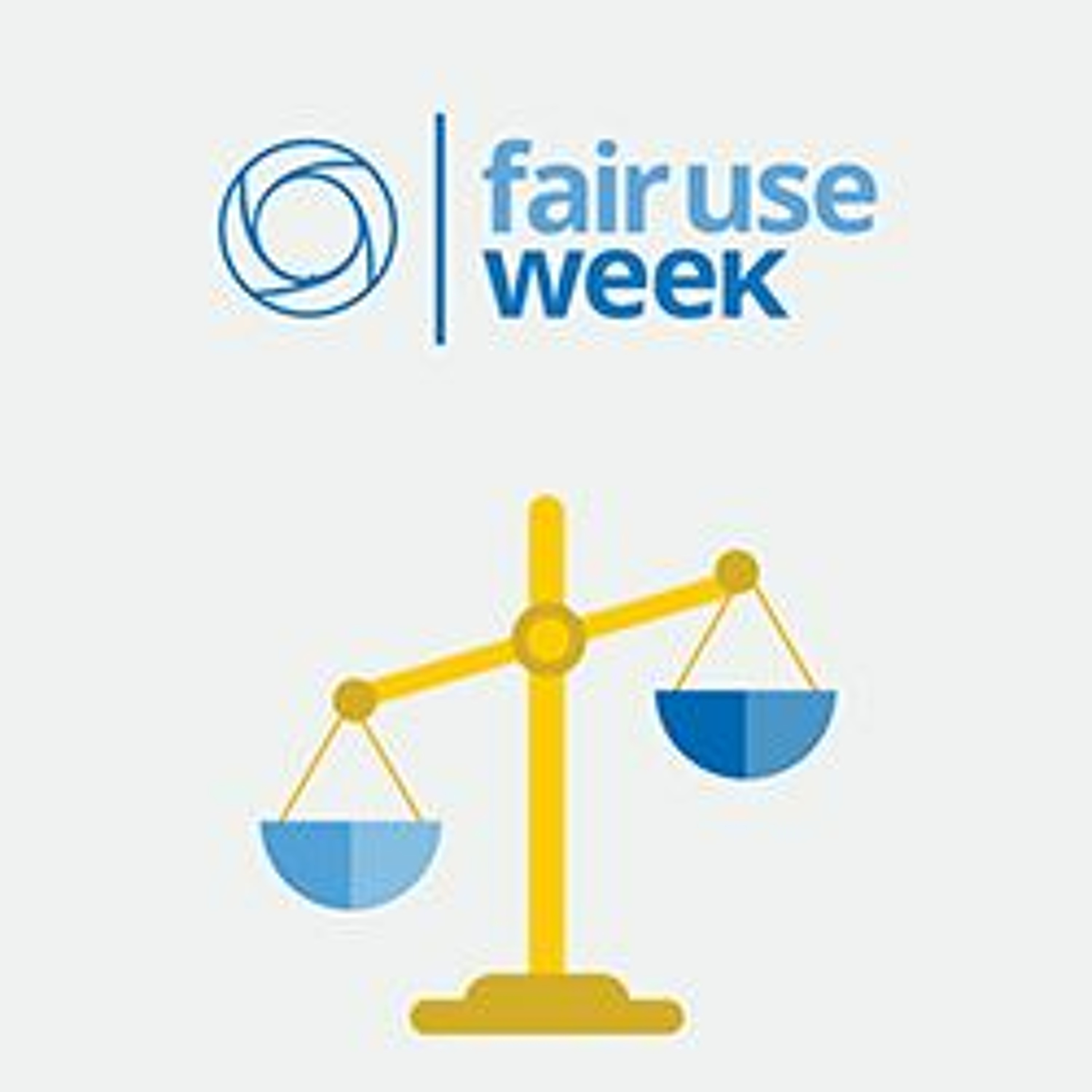 Radio BerkmanHow Fair Use Works, in Six Minutes or LessAn artist, musician, or writer can’t just take another person's creation and claim it as their own. Federal law outlines how creators can and can’t borrow from each other. These rules are collectively called "copyright law," and essentially they give creators the exclusive right to copy, modify, distribute, perform, and display their creative works.
Copyright law was originally created as an incentive. If creators aren’t worrying about whether someone might steal their work, they’re more likely to share their ideas with the public. This kind of sharing in turn helps to create more ideas, products, jobs, art, and...2016-02-2506 min
Radio BerkmanHow Fair Use Works, in Six Minutes or LessAn artist, musician, or writer can’t just take another person's creation and claim it as their own. Federal law outlines how creators can and can’t borrow from each other. These rules are collectively called "copyright law," and essentially they give creators the exclusive right to copy, modify, distribute, perform, and display their creative works.
Copyright law was originally created as an incentive. If creators aren’t worrying about whether someone might steal their work, they’re more likely to share their ideas with the public. This kind of sharing in turn helps to create more ideas, products, jobs, art, and...2016-02-2506 min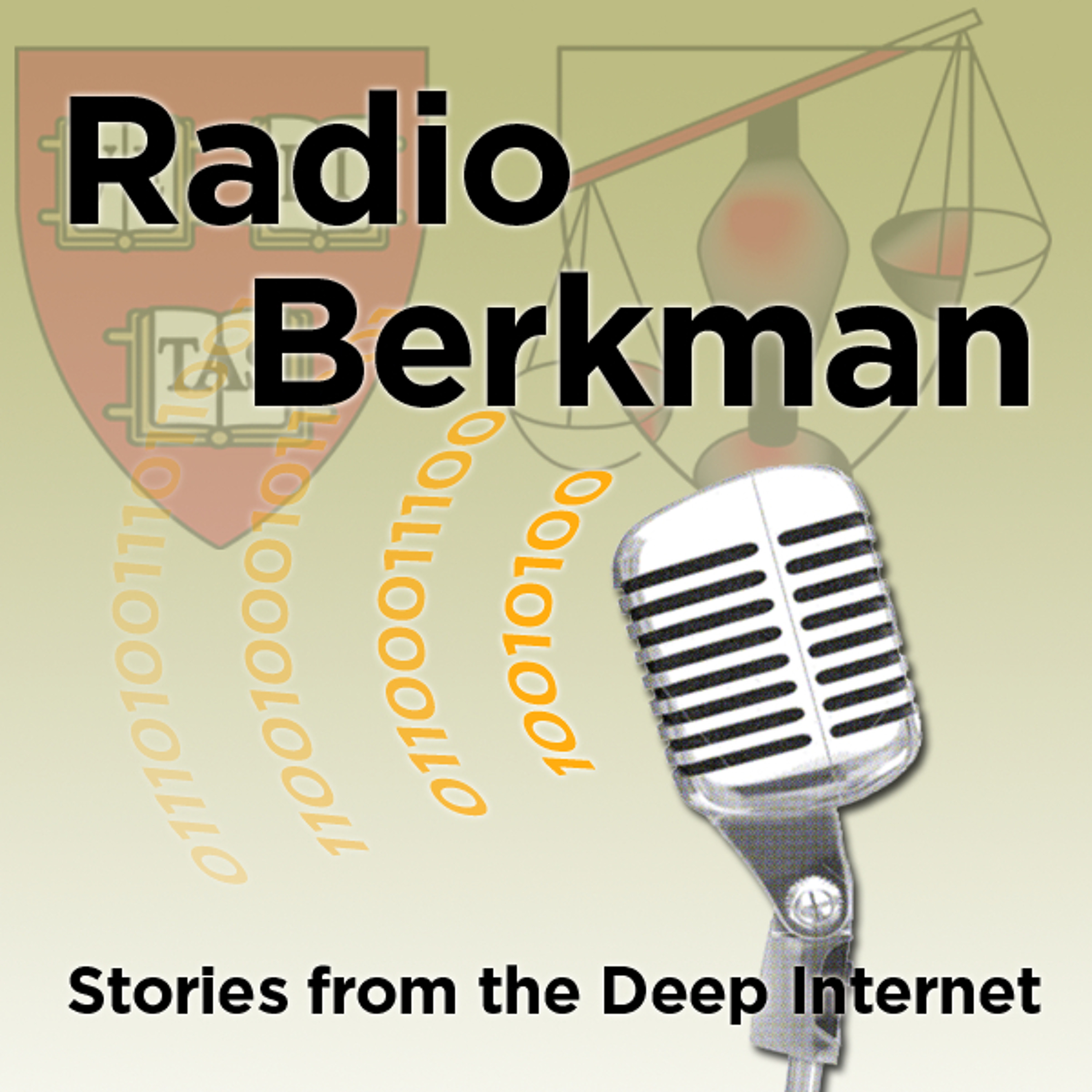 Radio BerkmanRadio Berkman: Urs GasserFrom February 4th, 2009
A first glimpse into the challenges and opportunities the Berkman Center faces in 2009, with the Center’s new Executive Director, Urs Gasser.
CC-licensed music this week:
Brad Sucks – “Gasoline”
Greg Williams – “Teagarden Blues and Rain”2009-02-0409 min
Radio BerkmanRadio Berkman: Urs GasserFrom February 4th, 2009
A first glimpse into the challenges and opportunities the Berkman Center faces in 2009, with the Center’s new Executive Director, Urs Gasser.
CC-licensed music this week:
Brad Sucks – “Gasoline”
Greg Williams – “Teagarden Blues and Rain”2009-02-0409 min